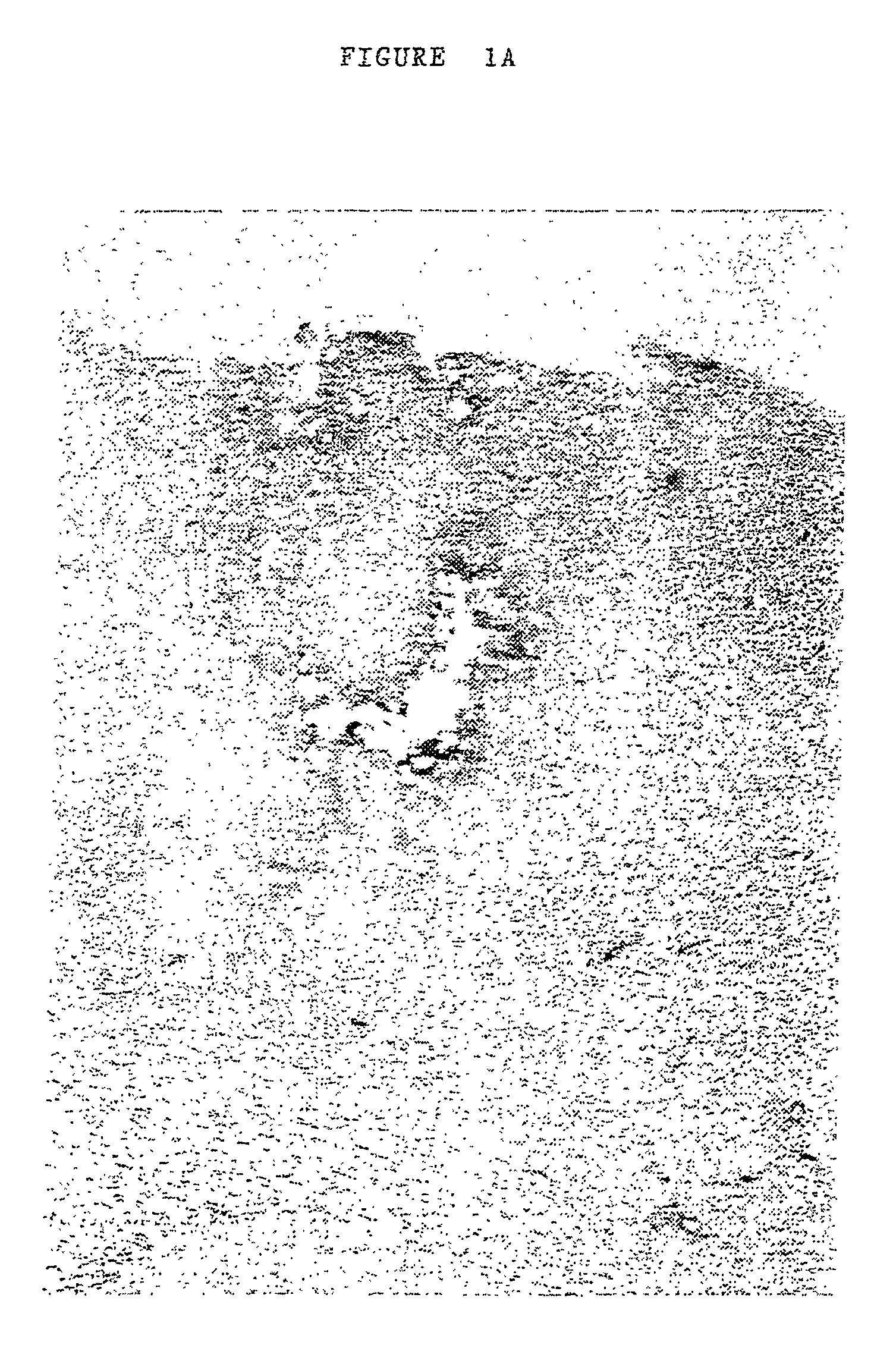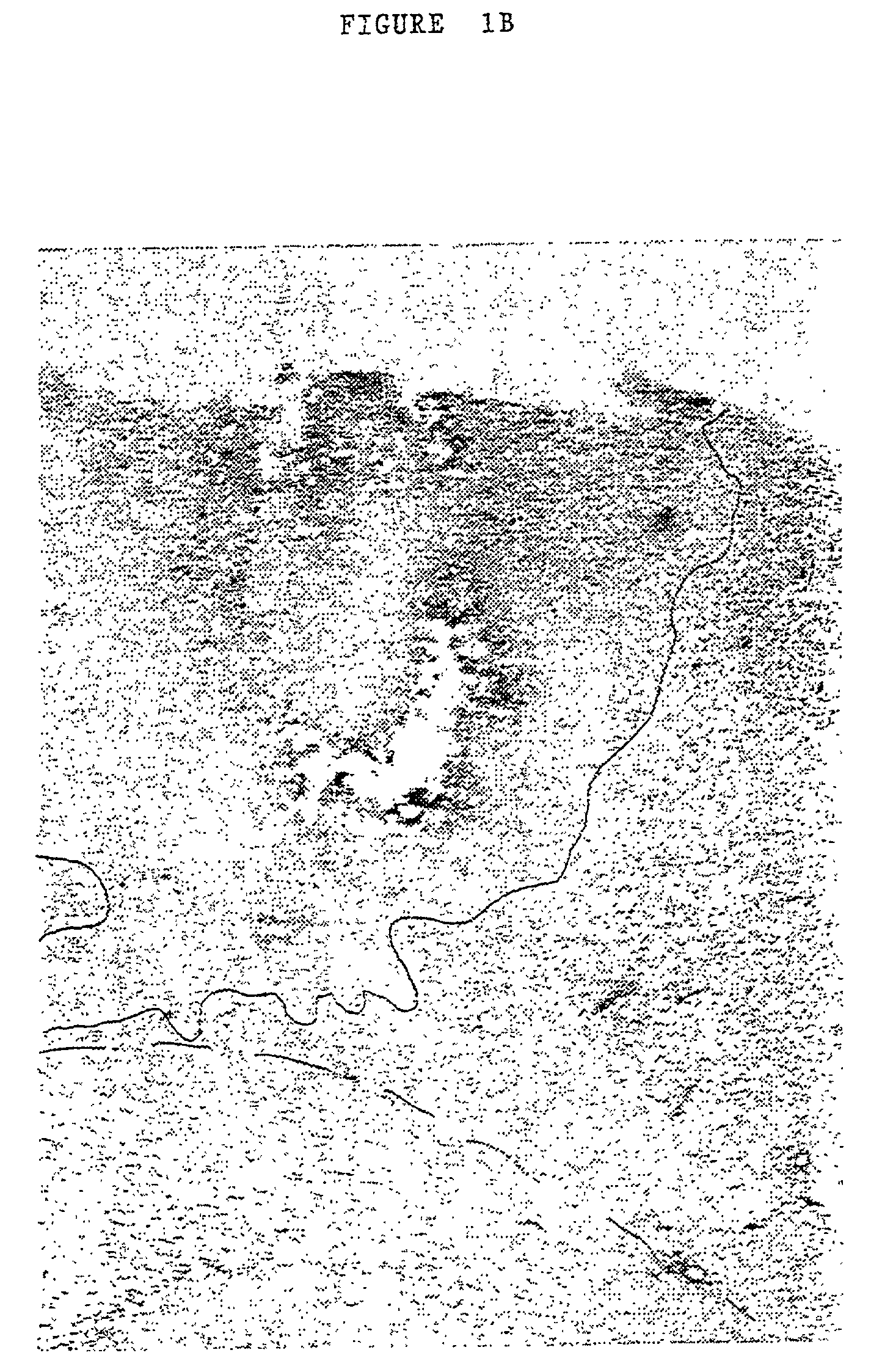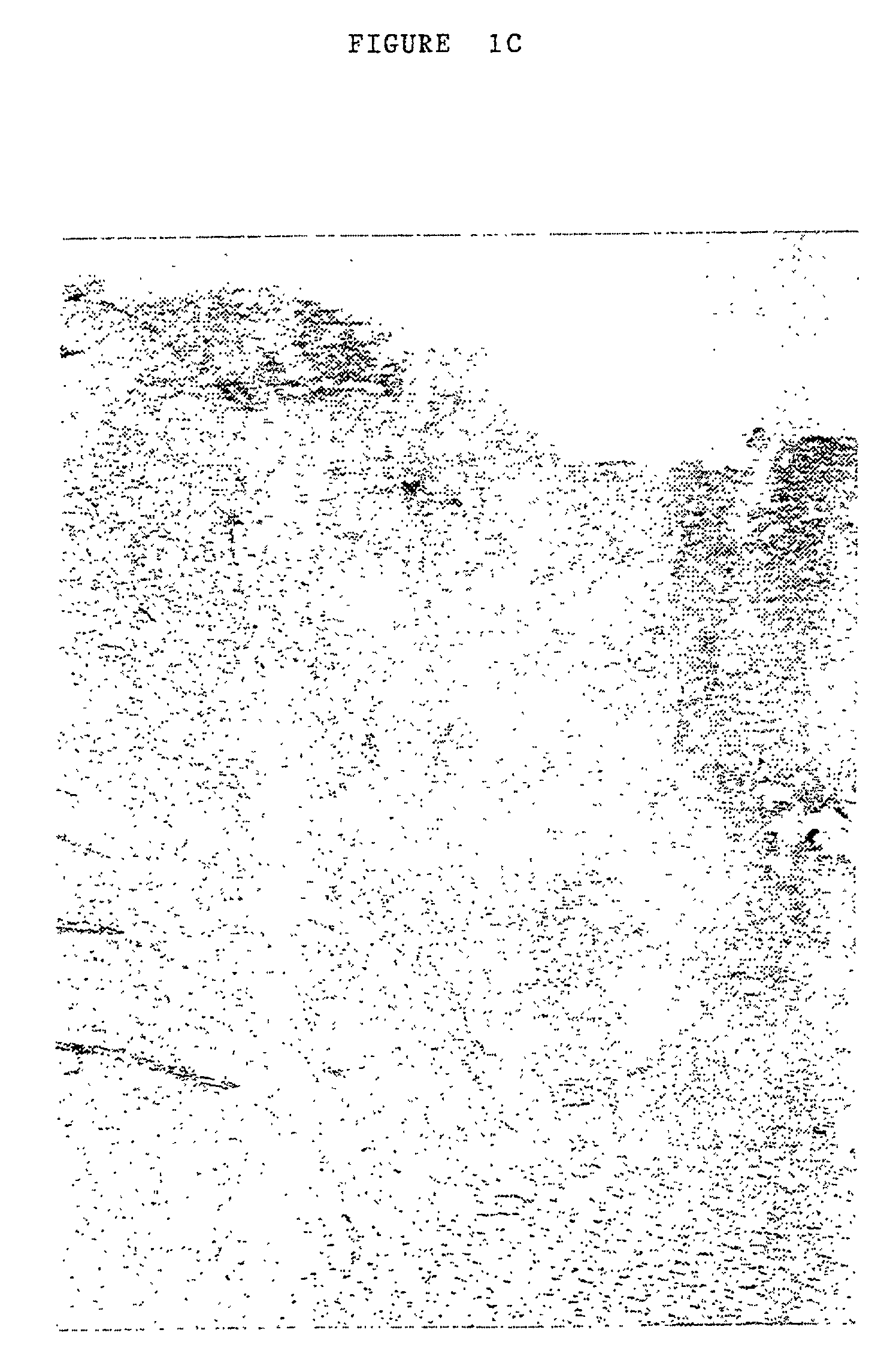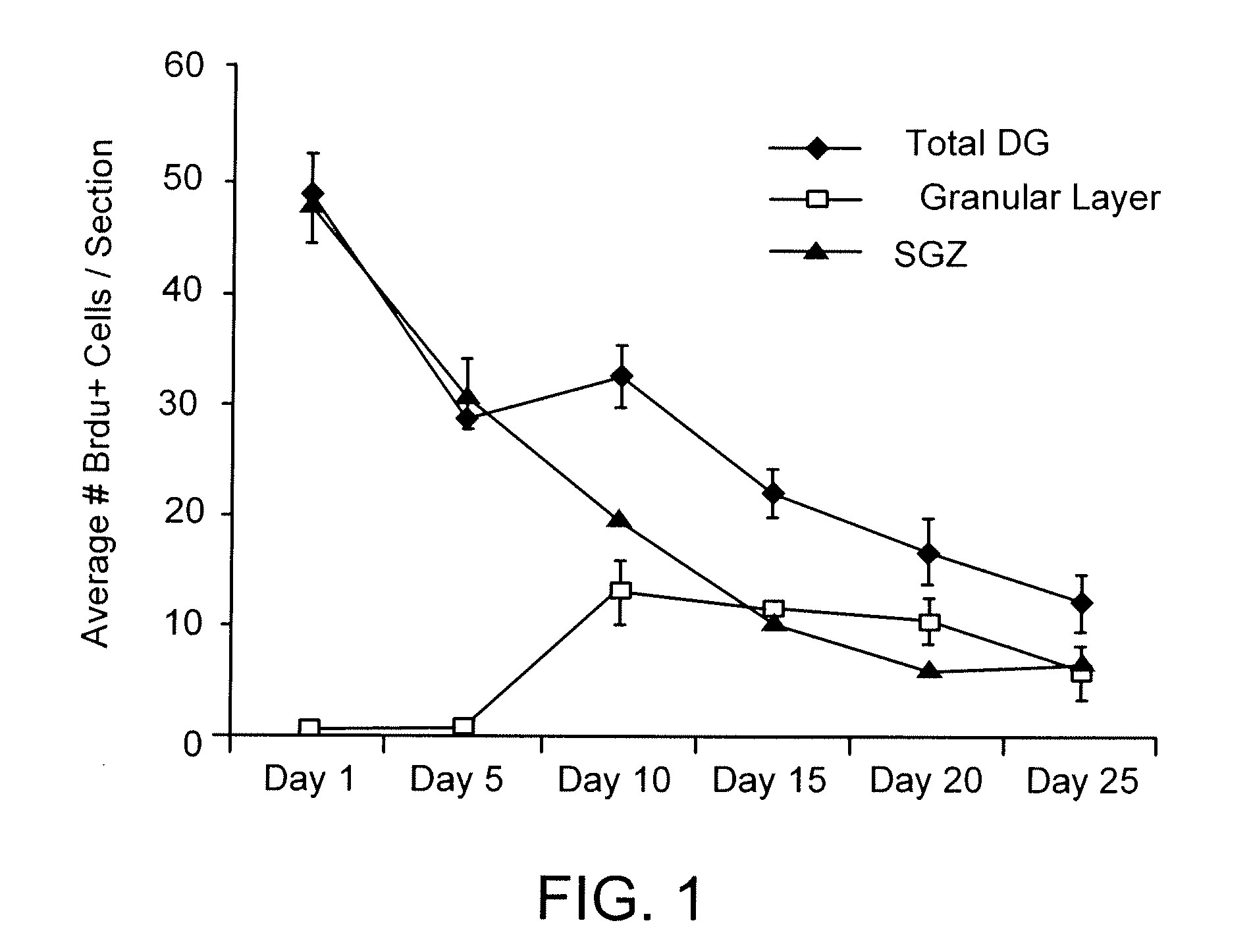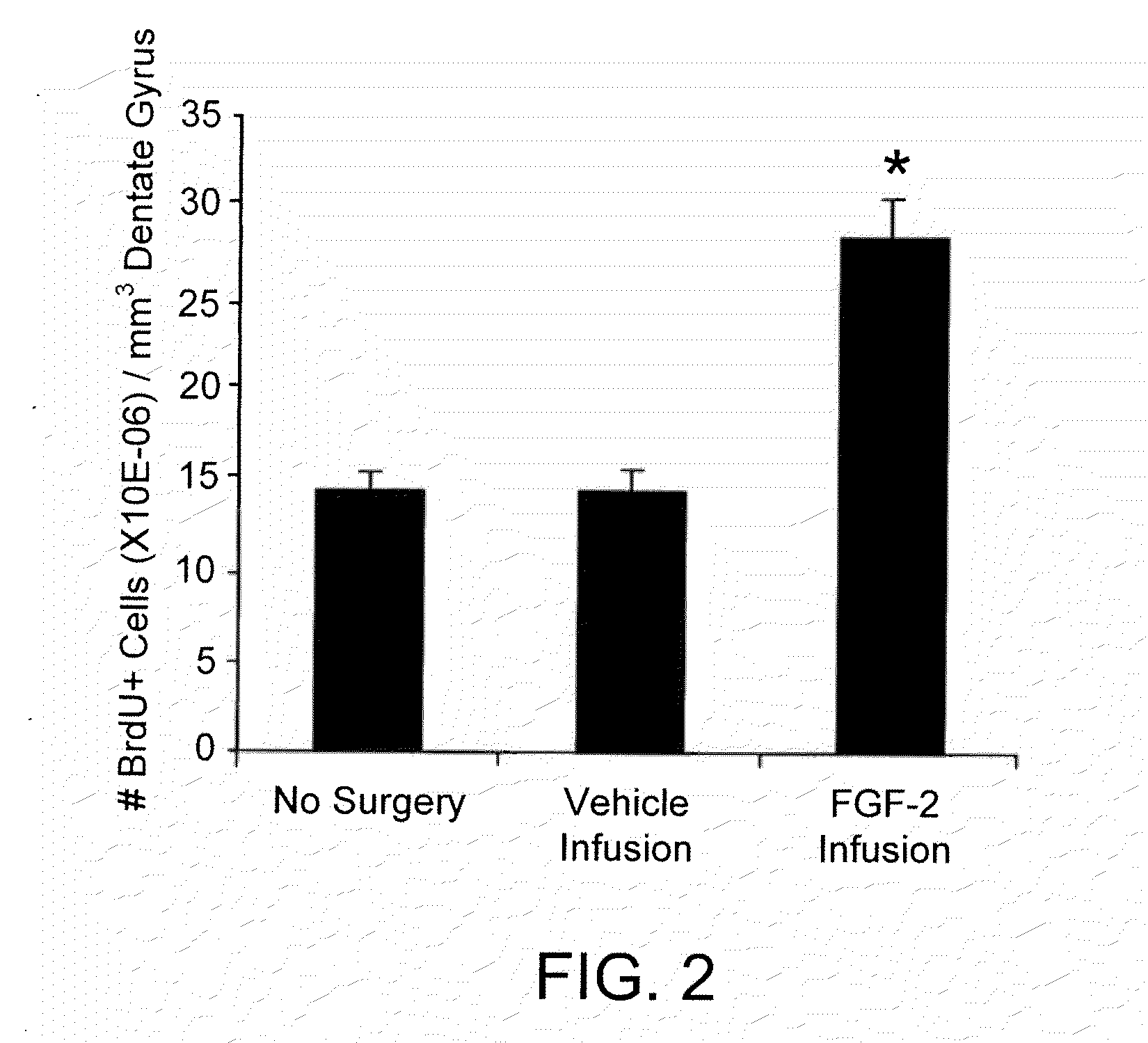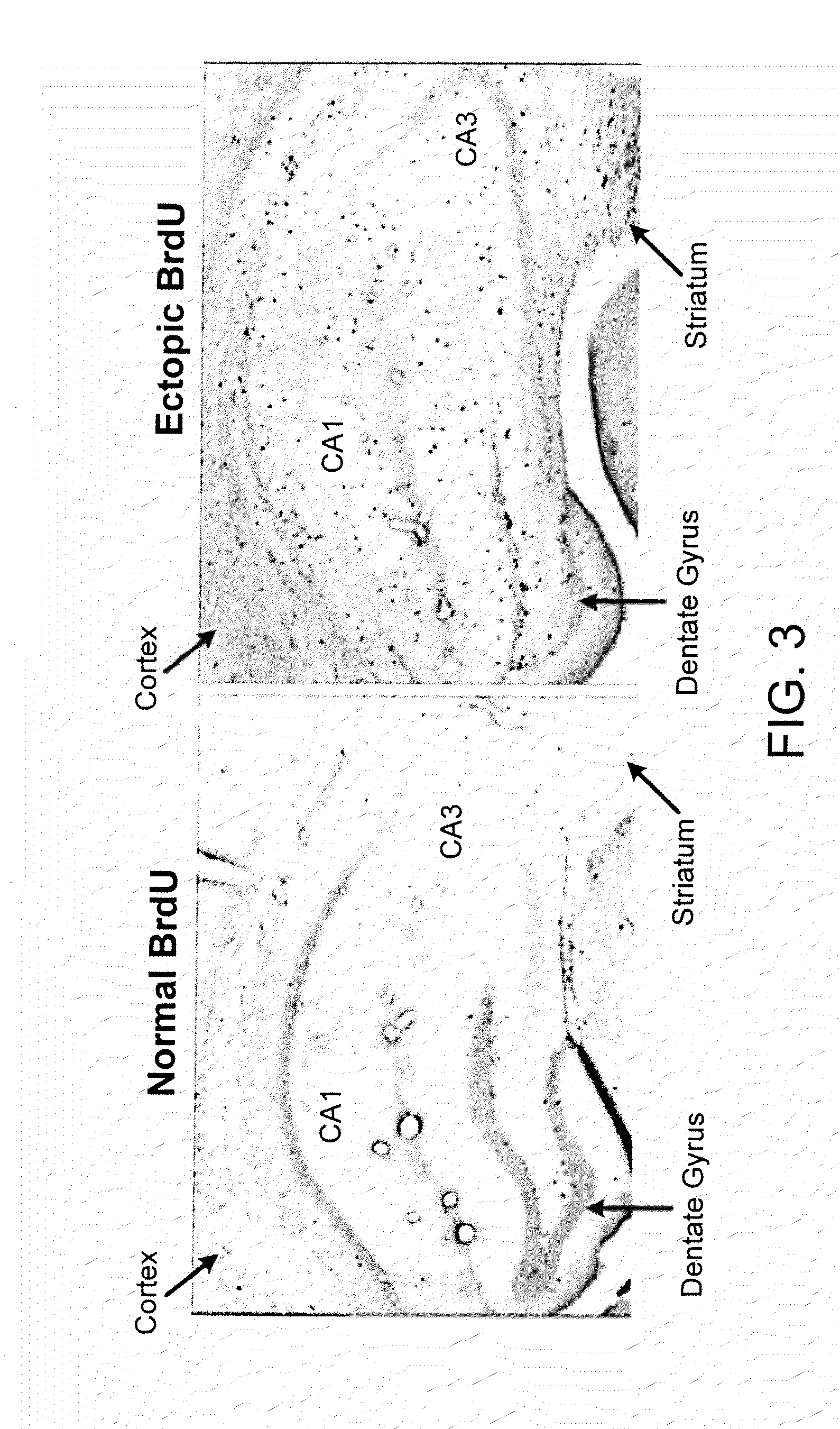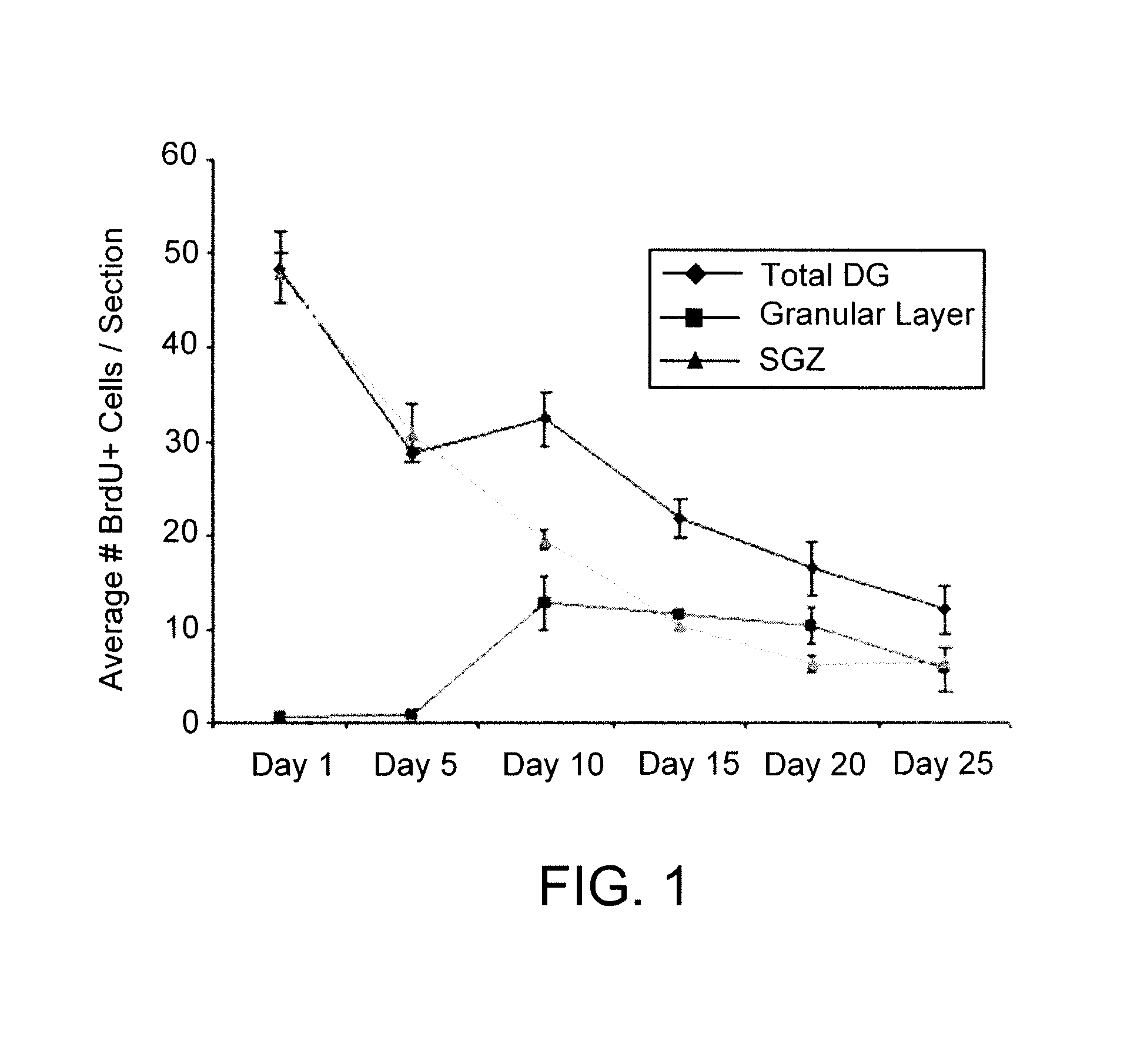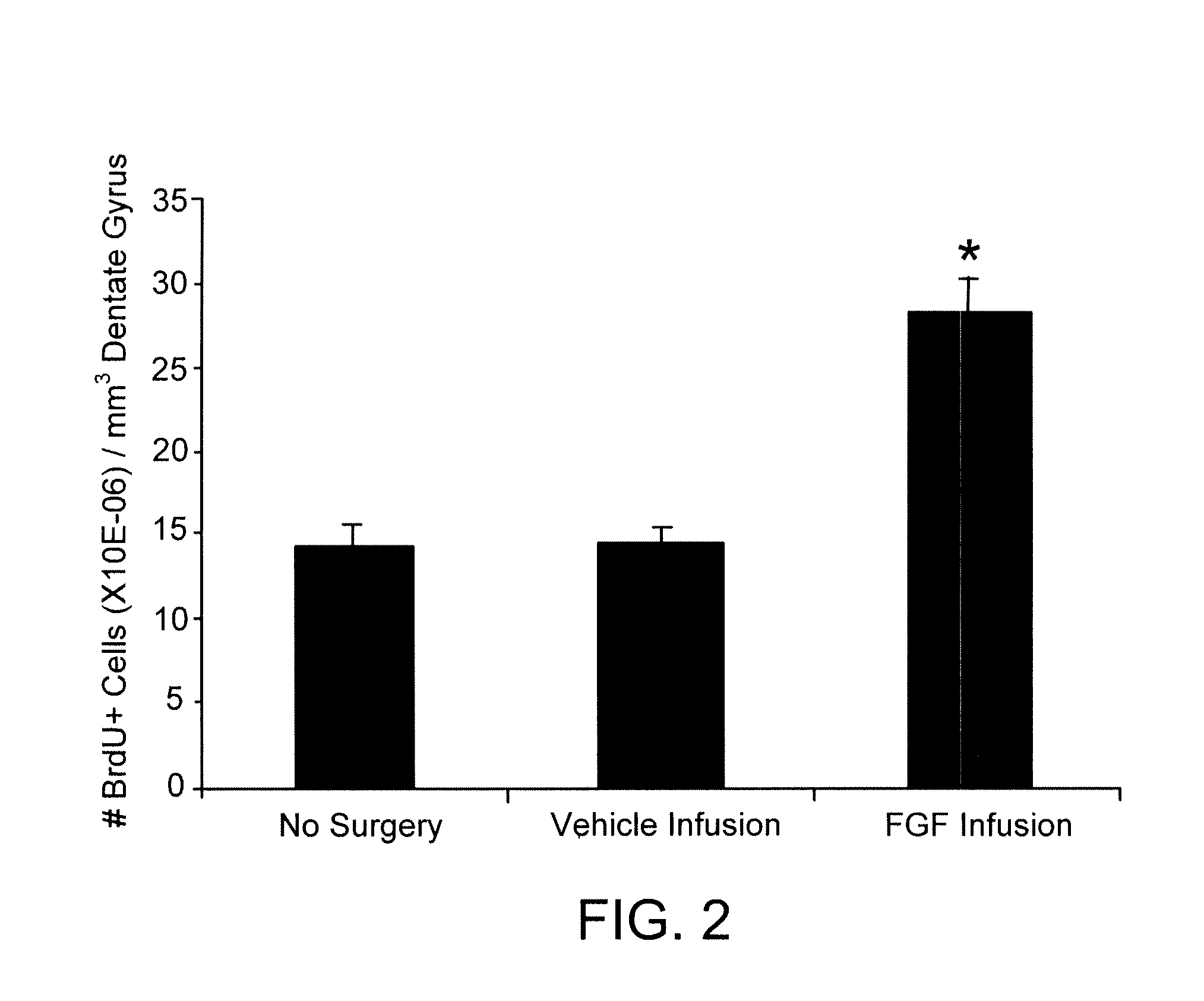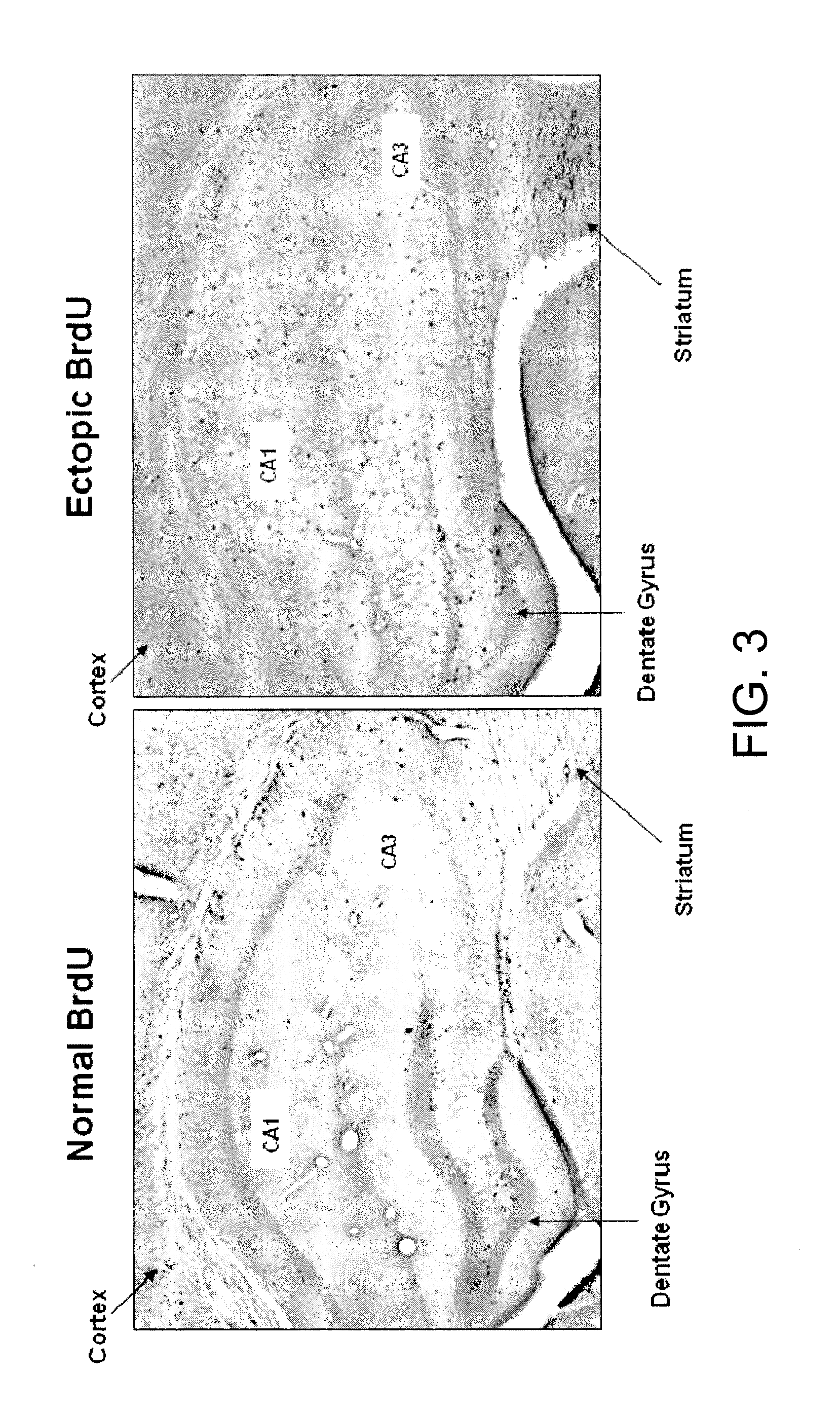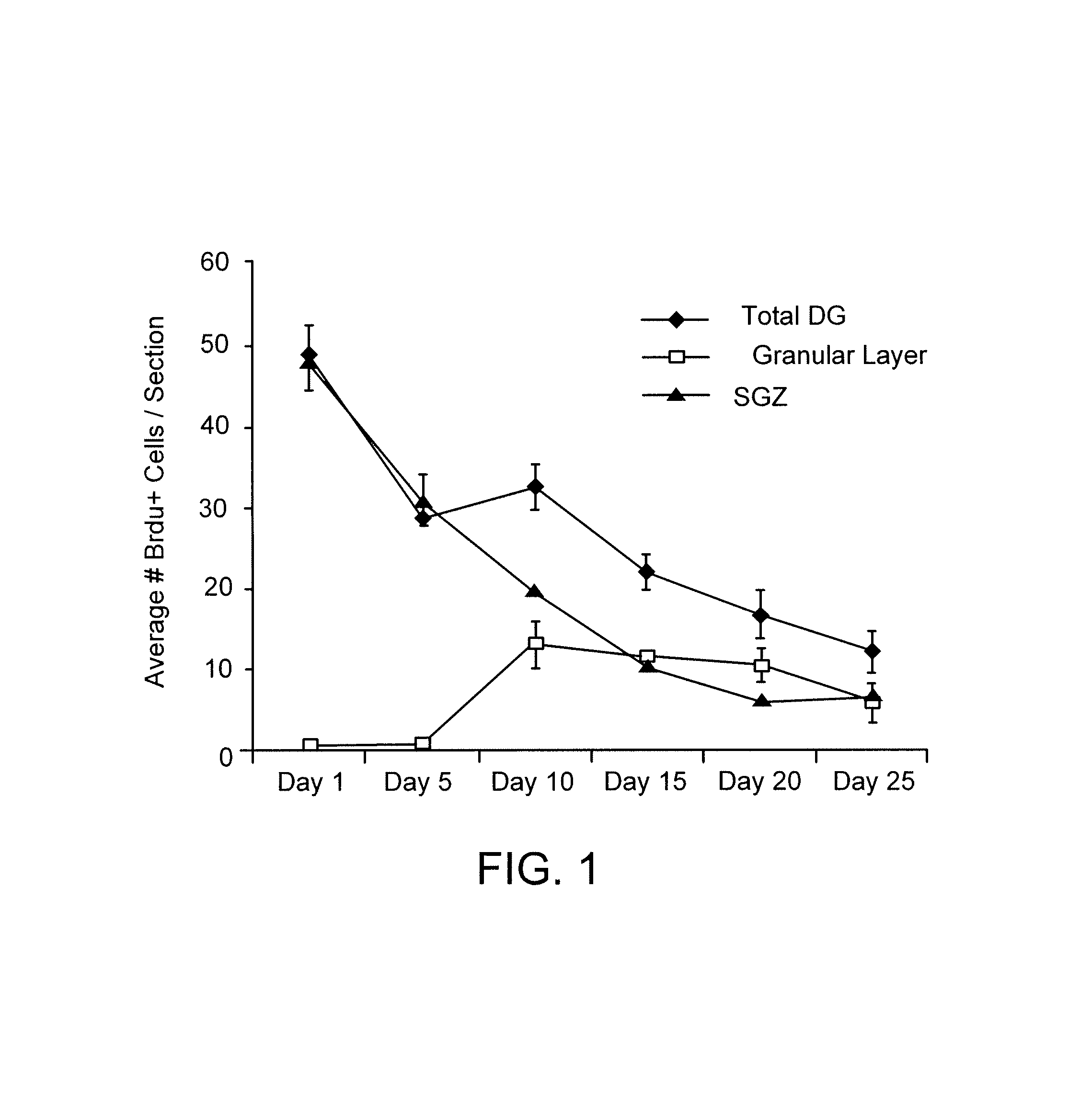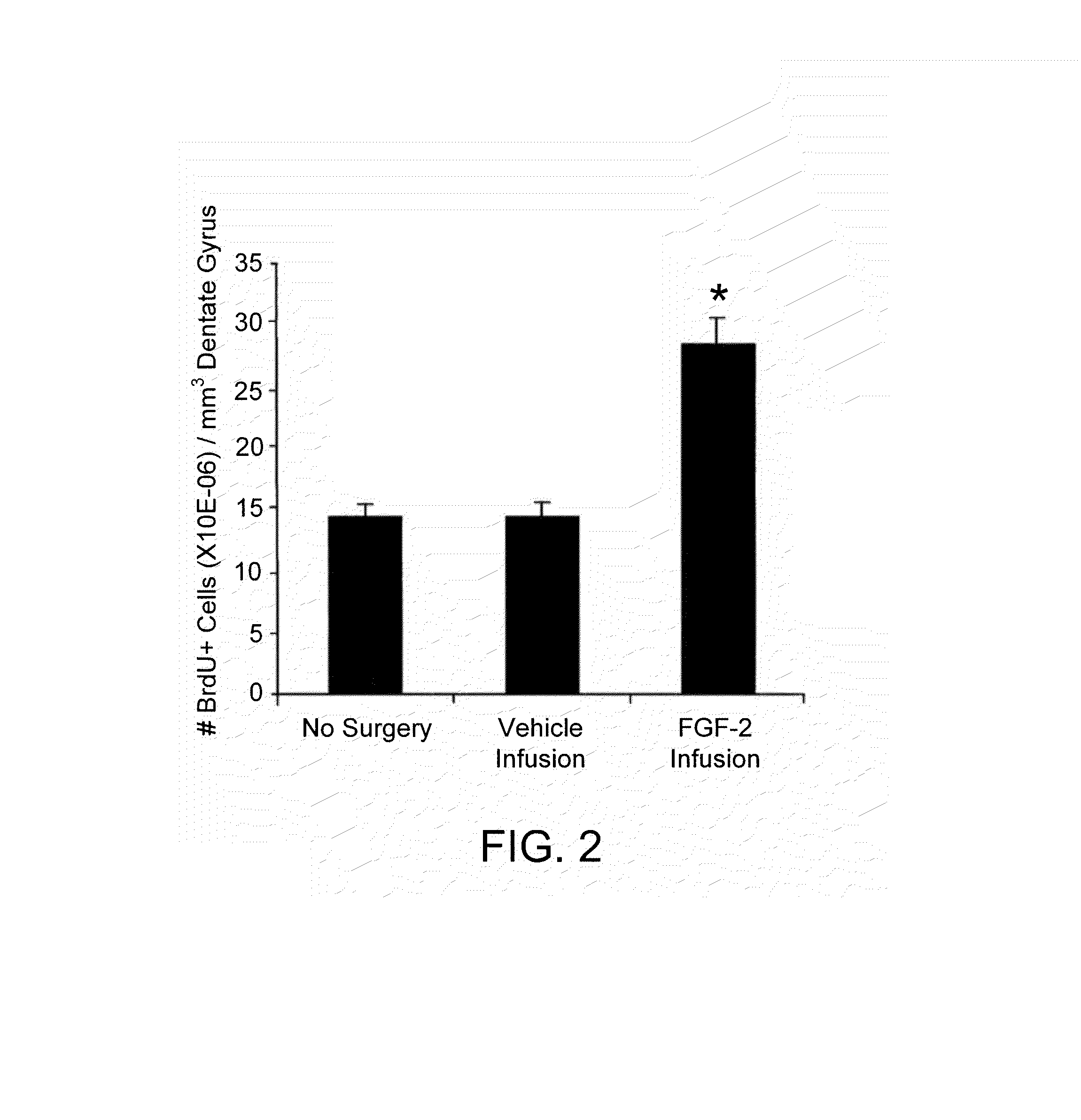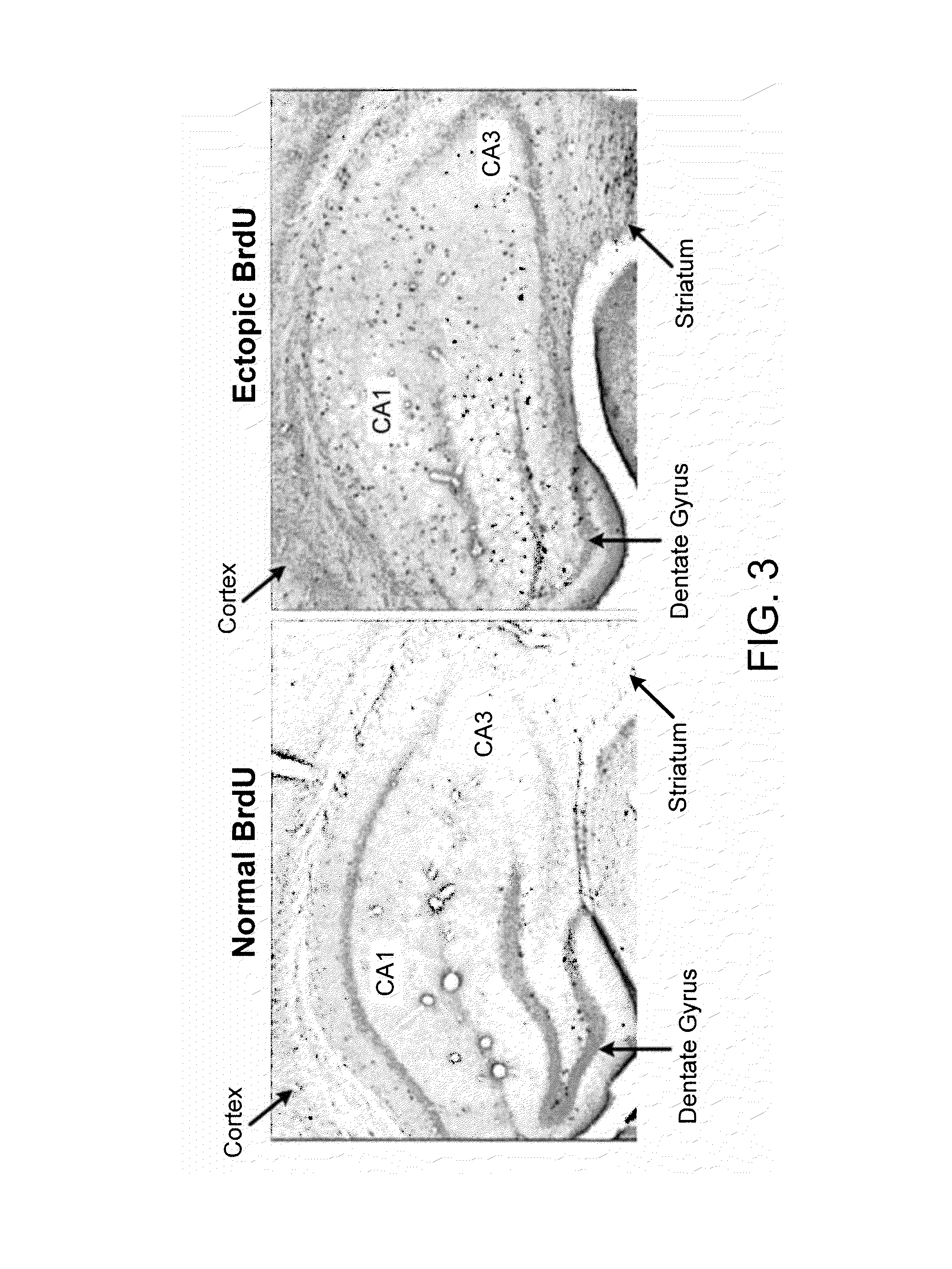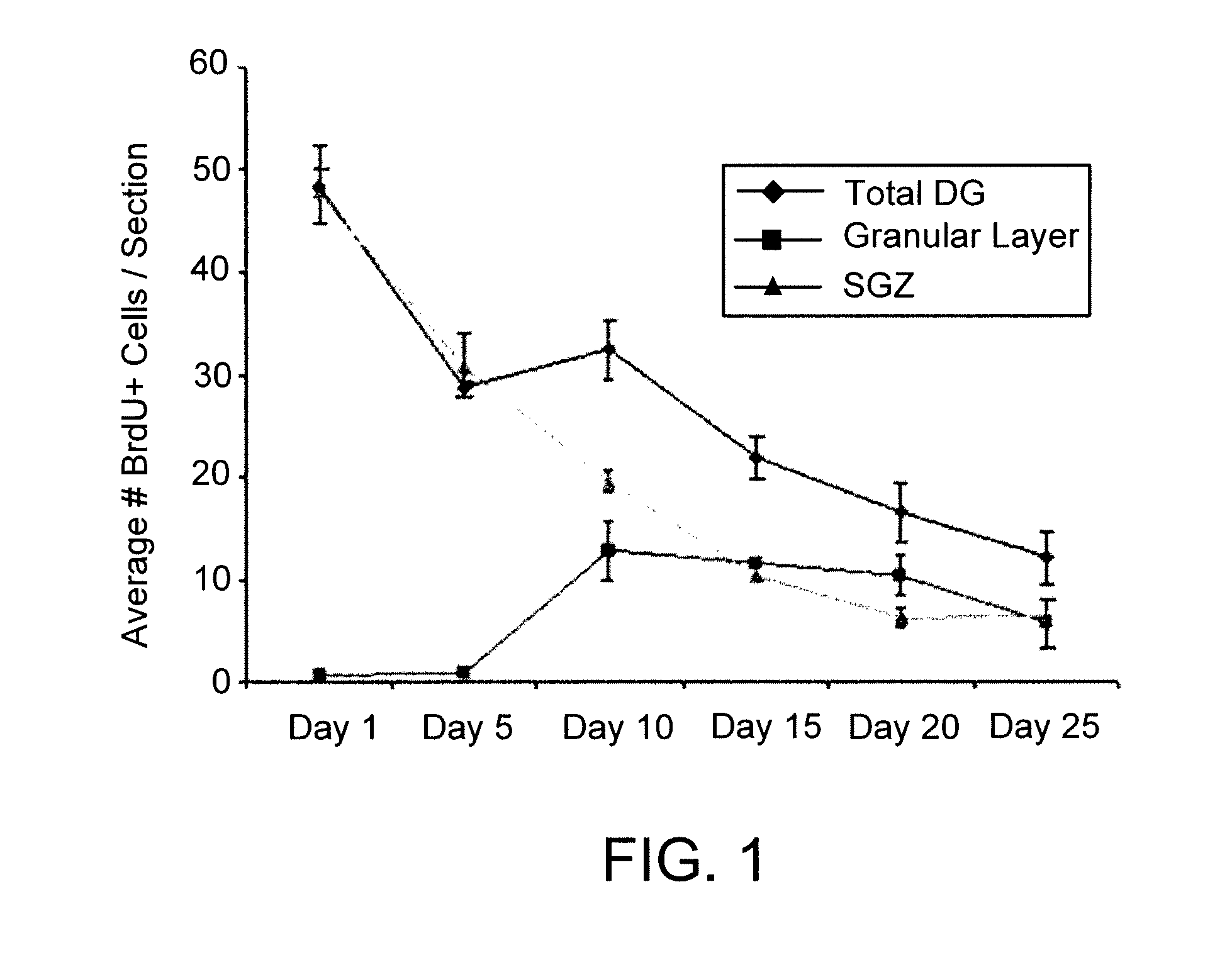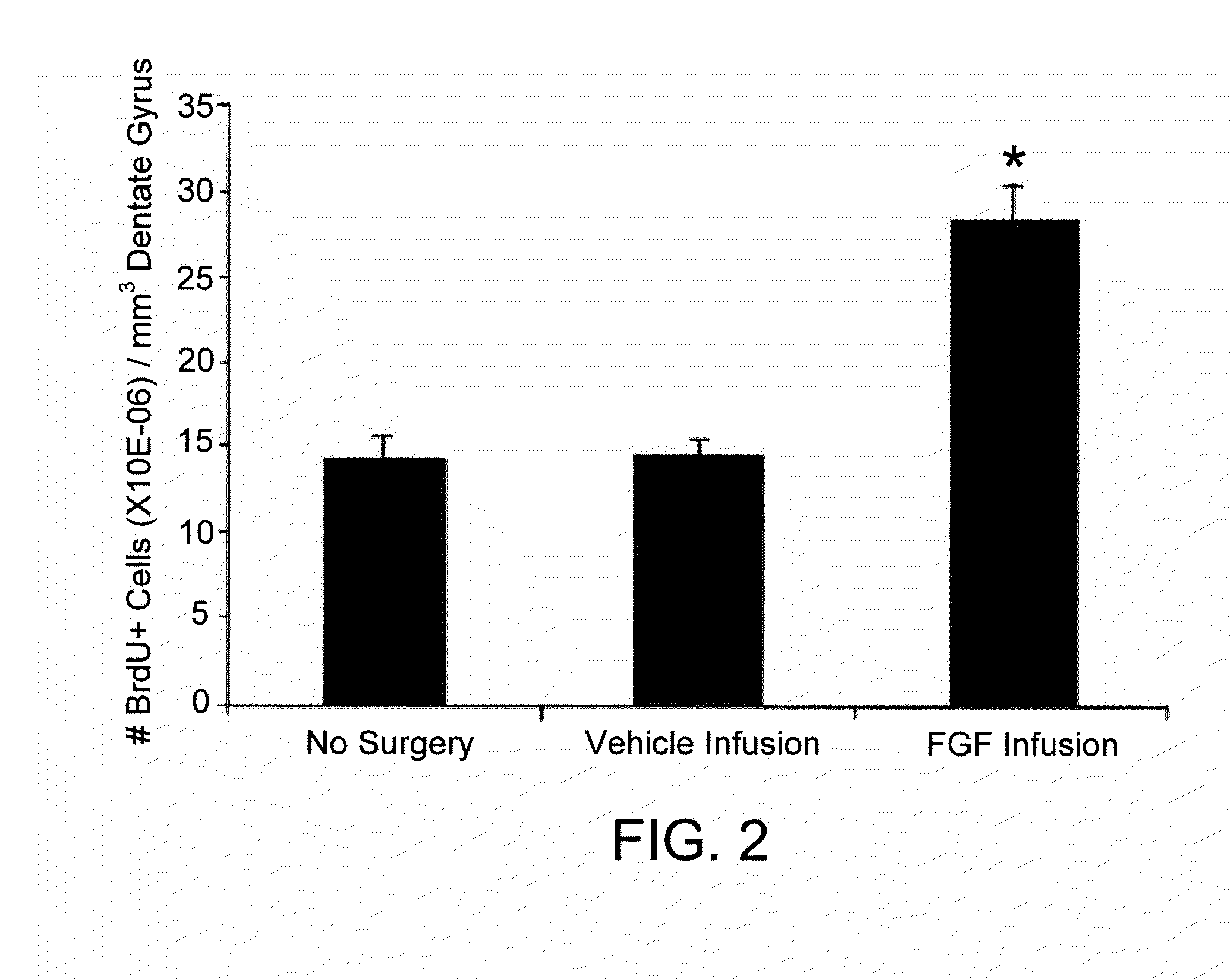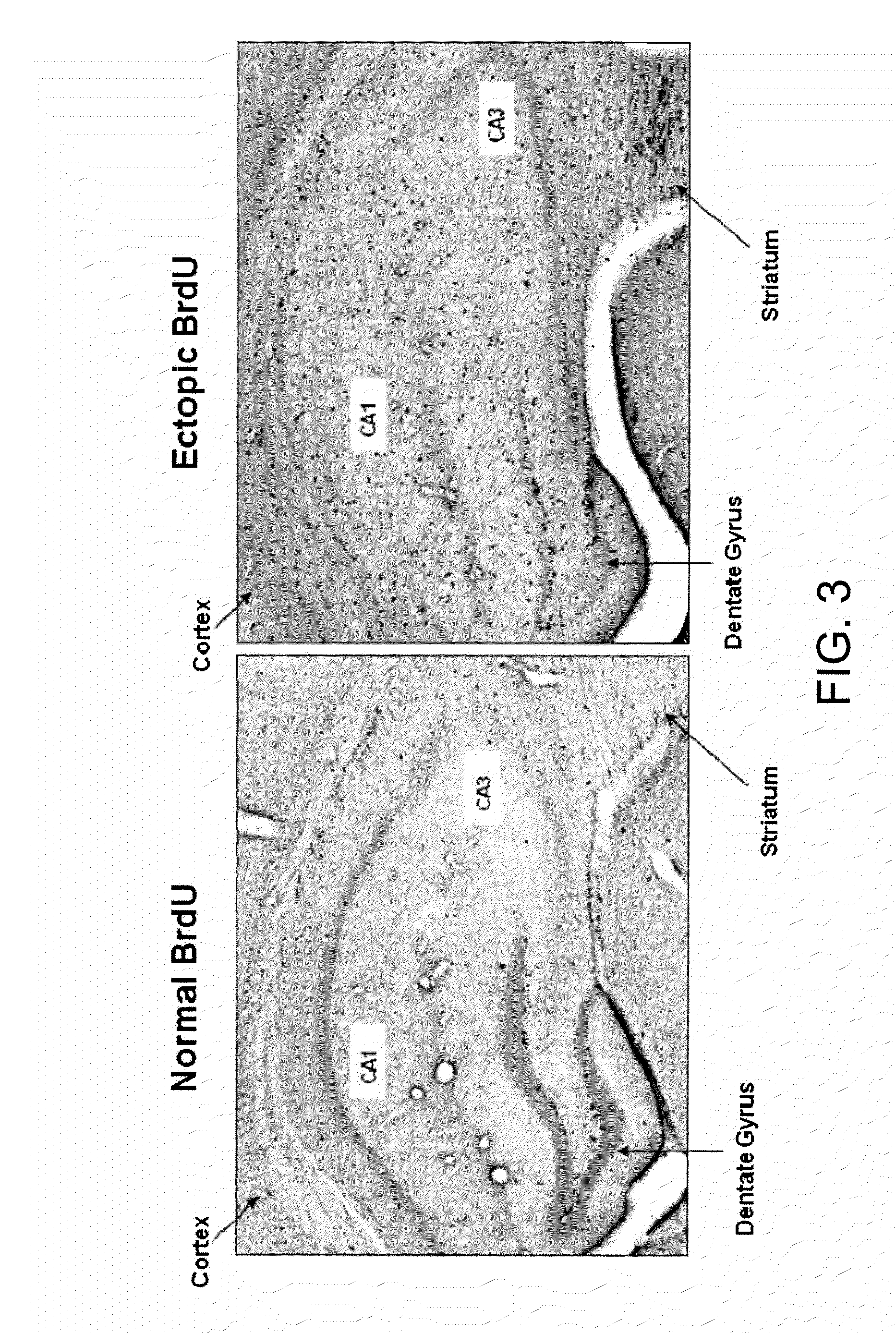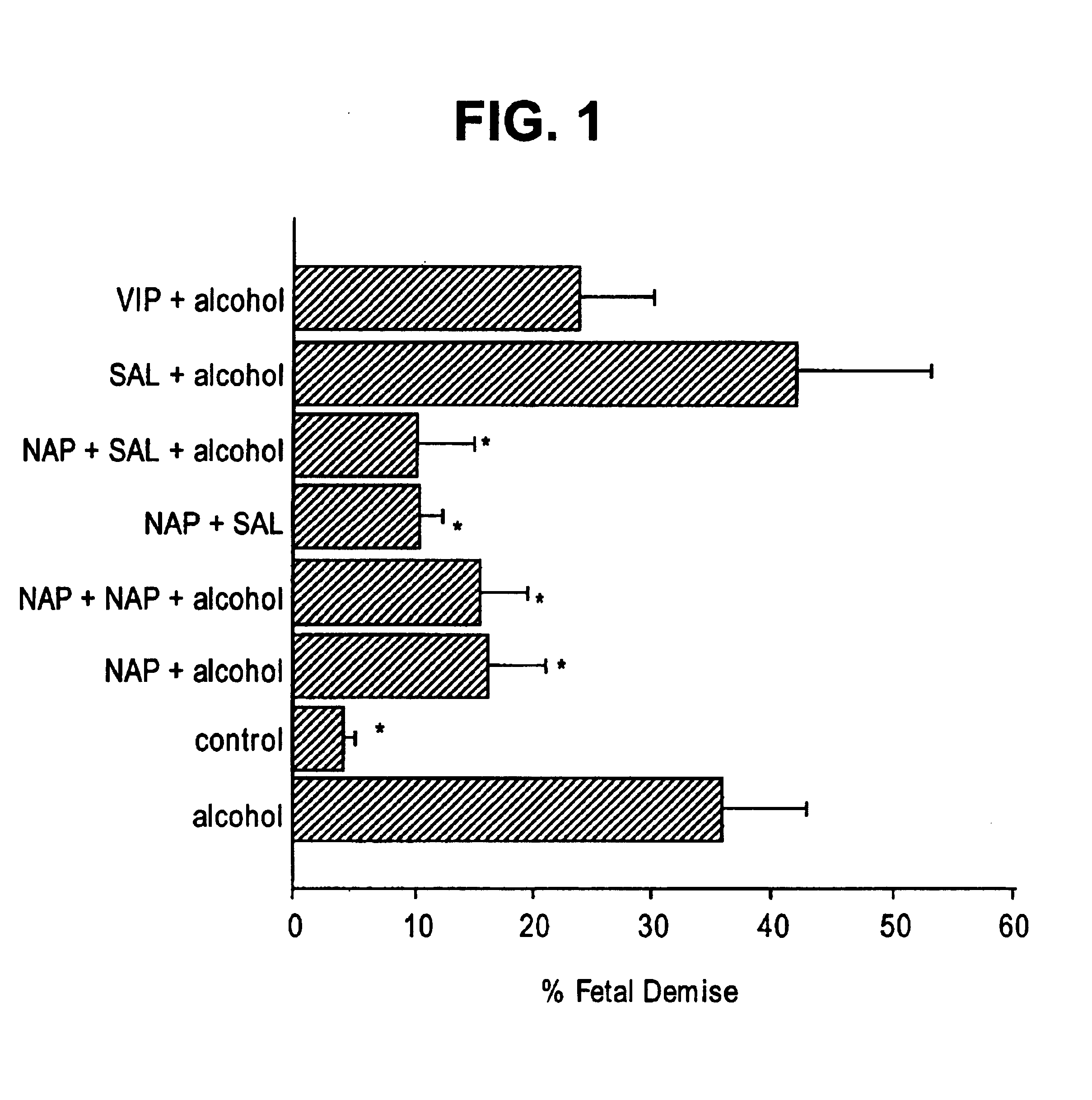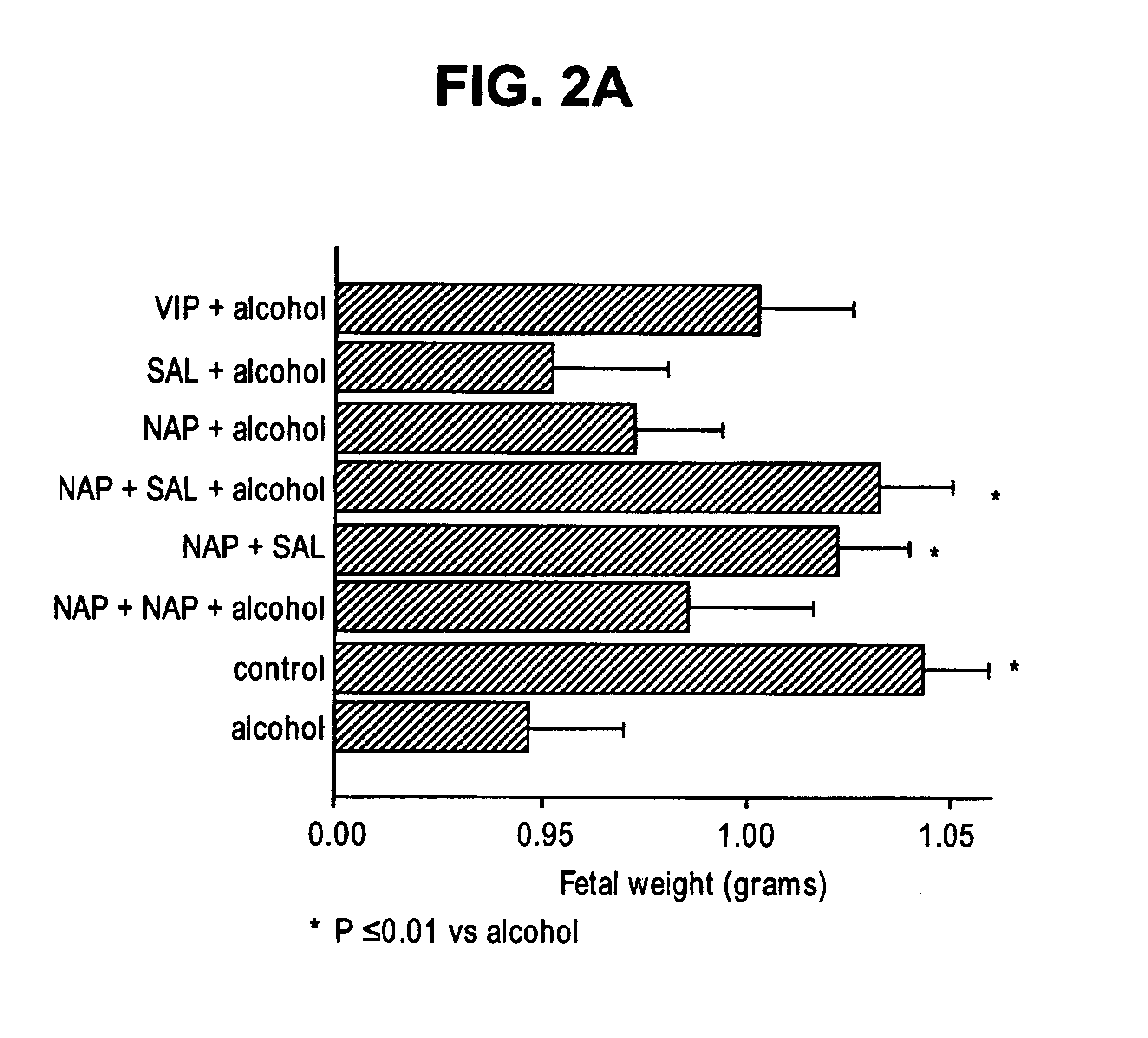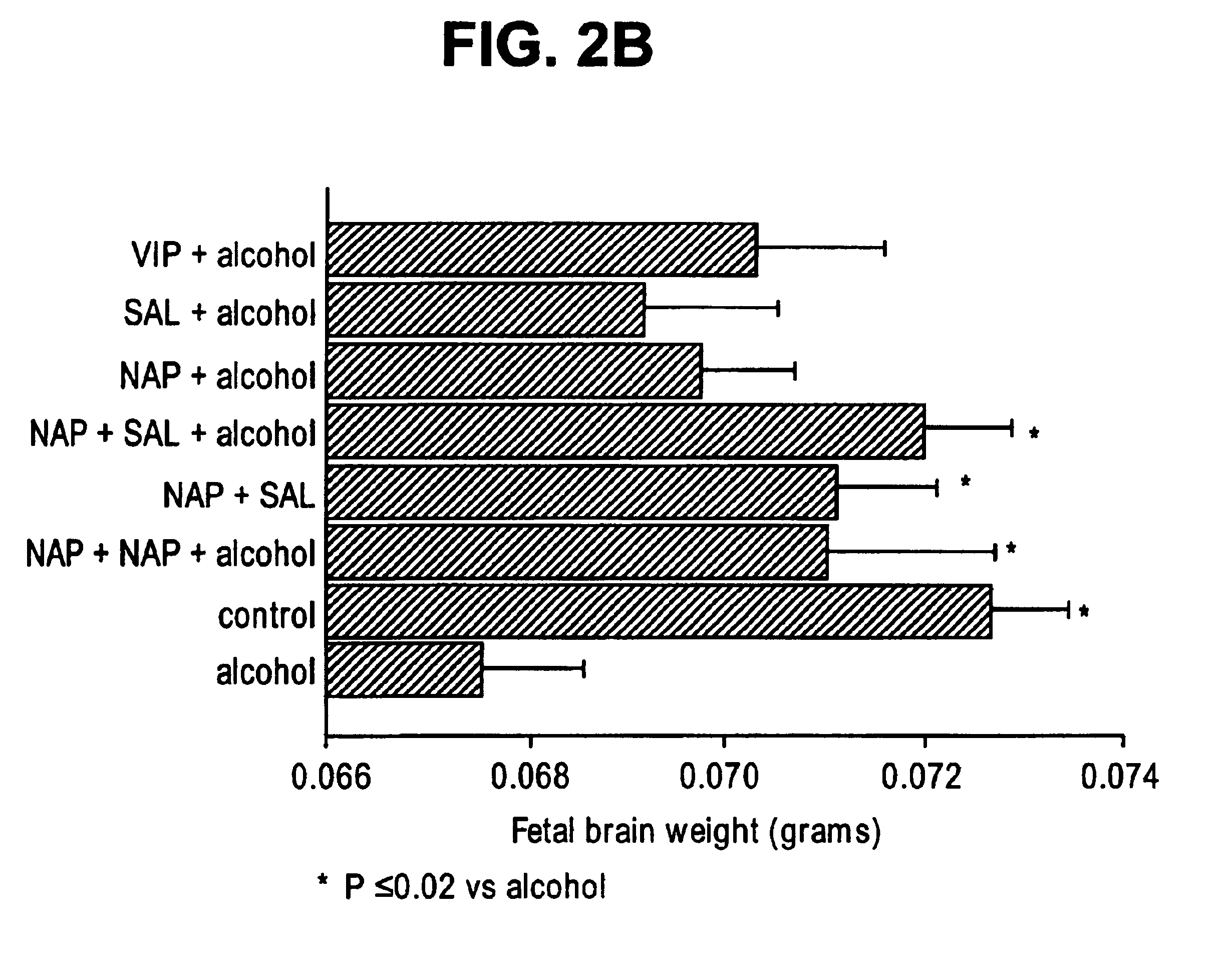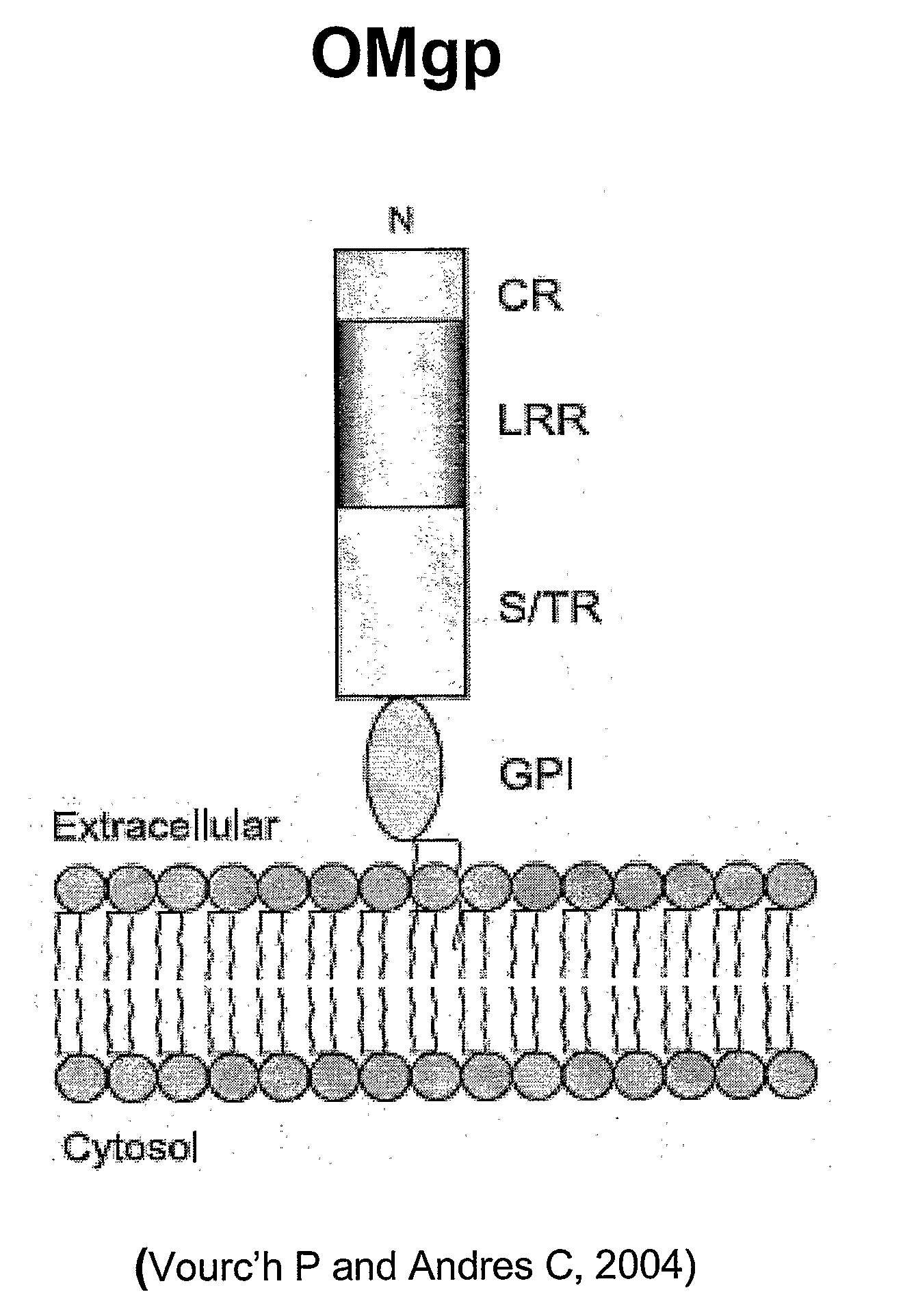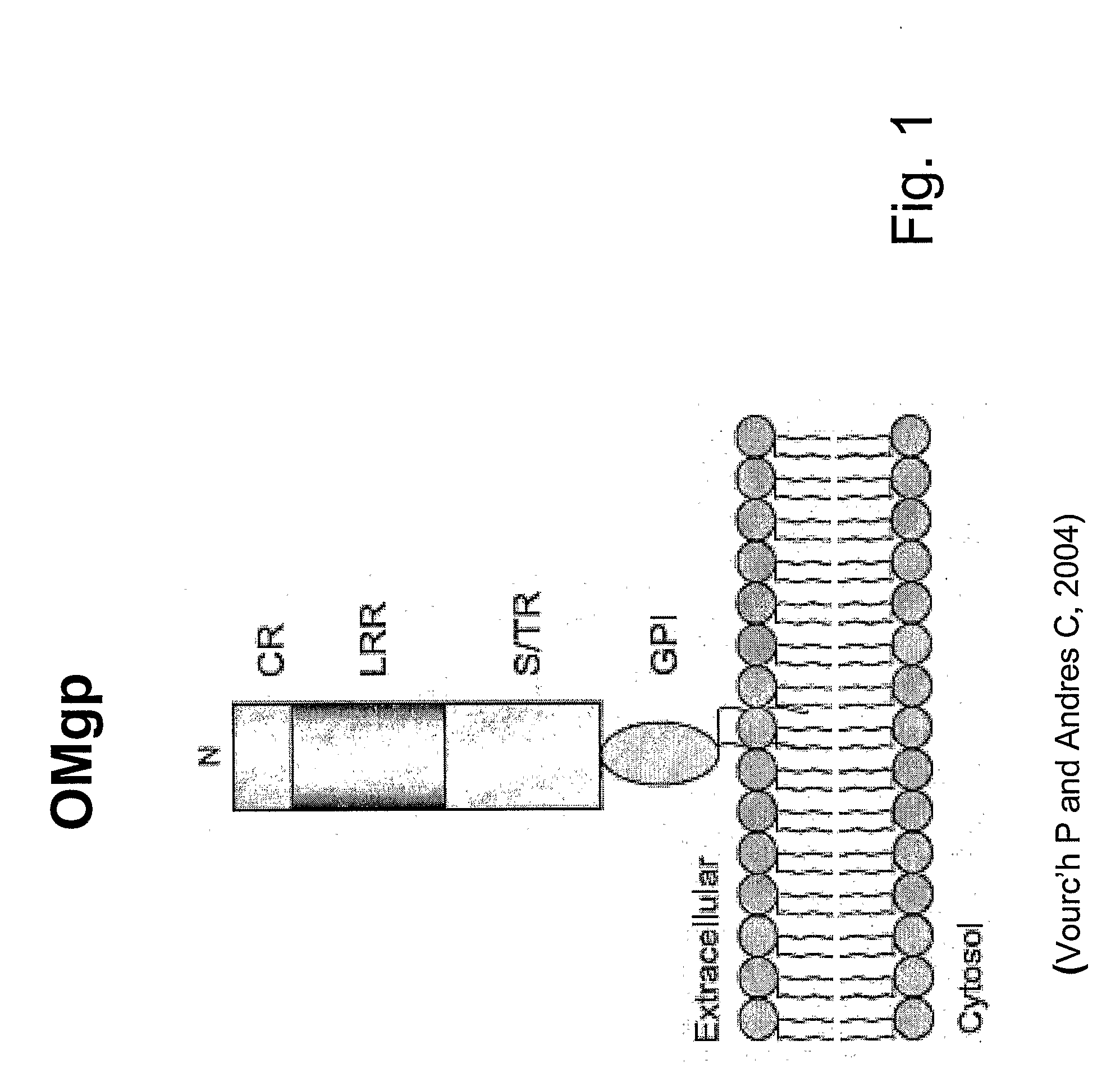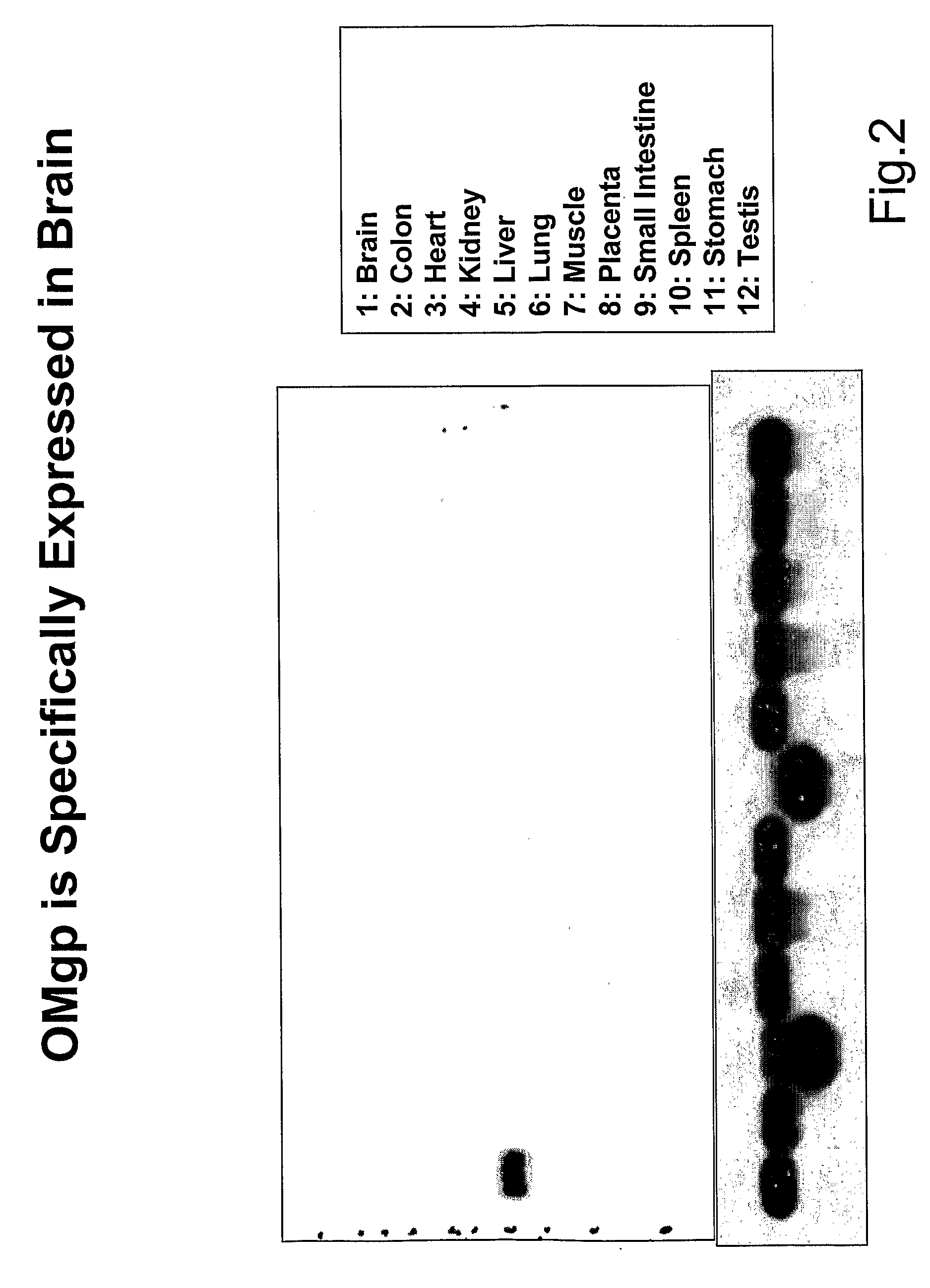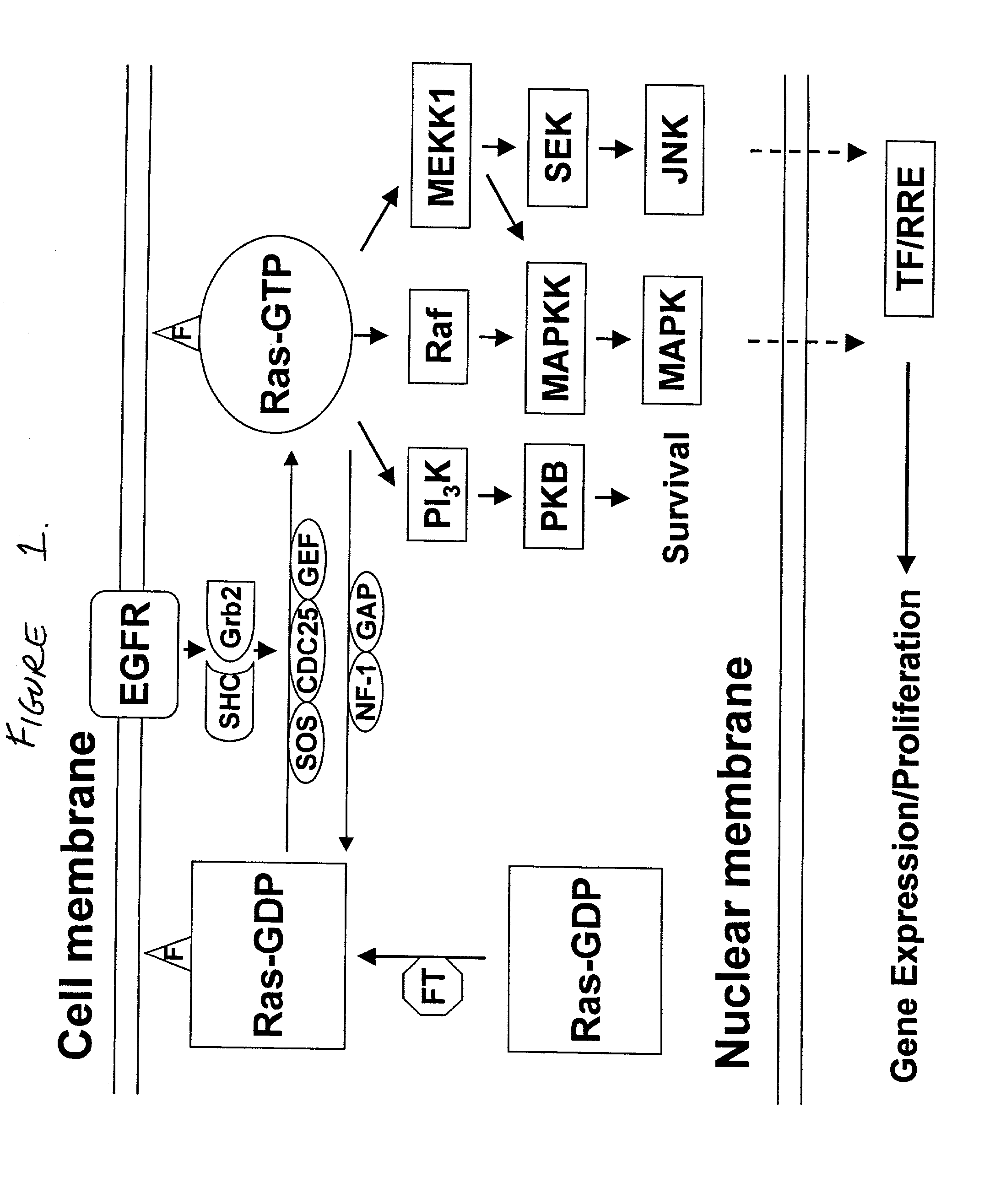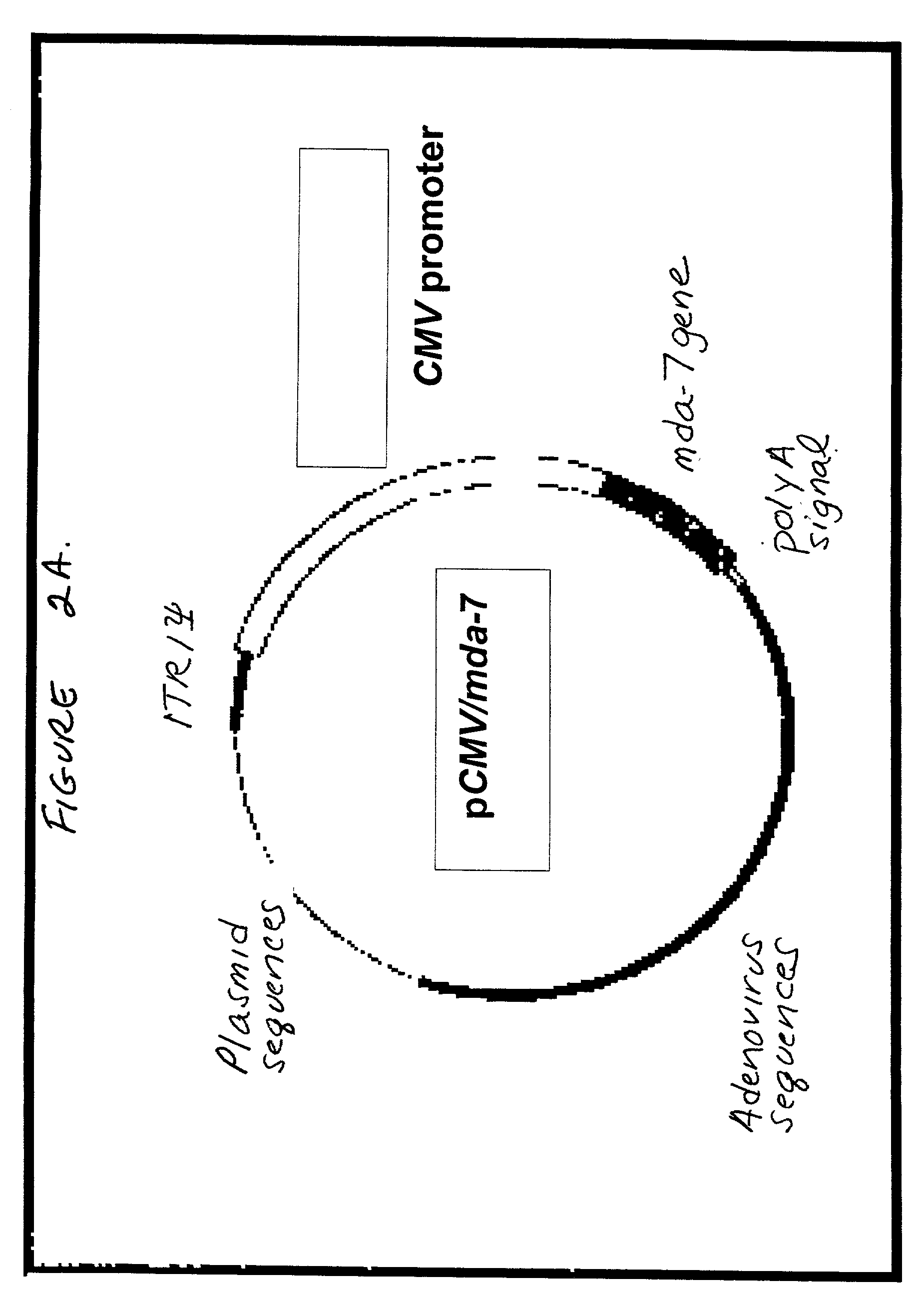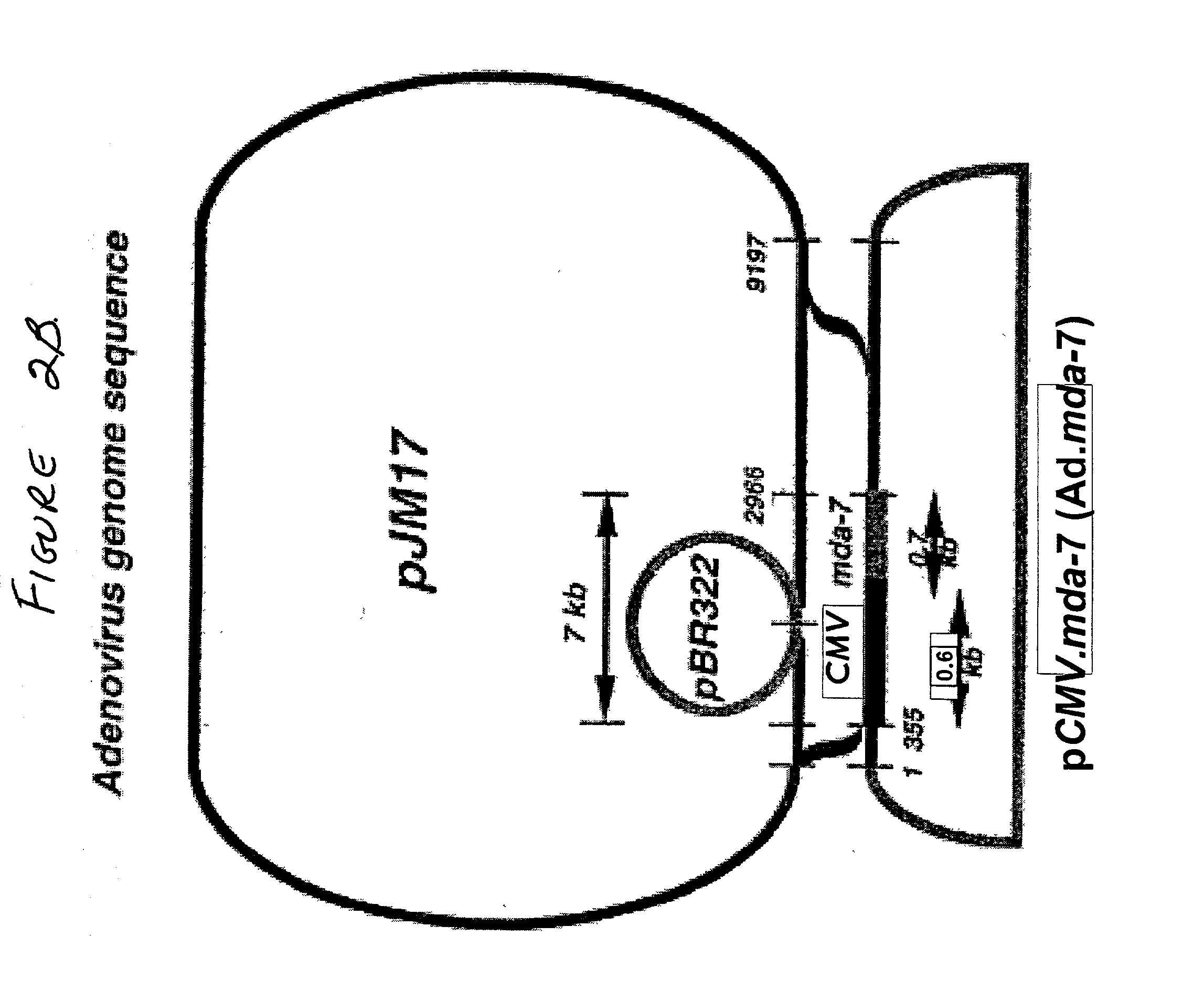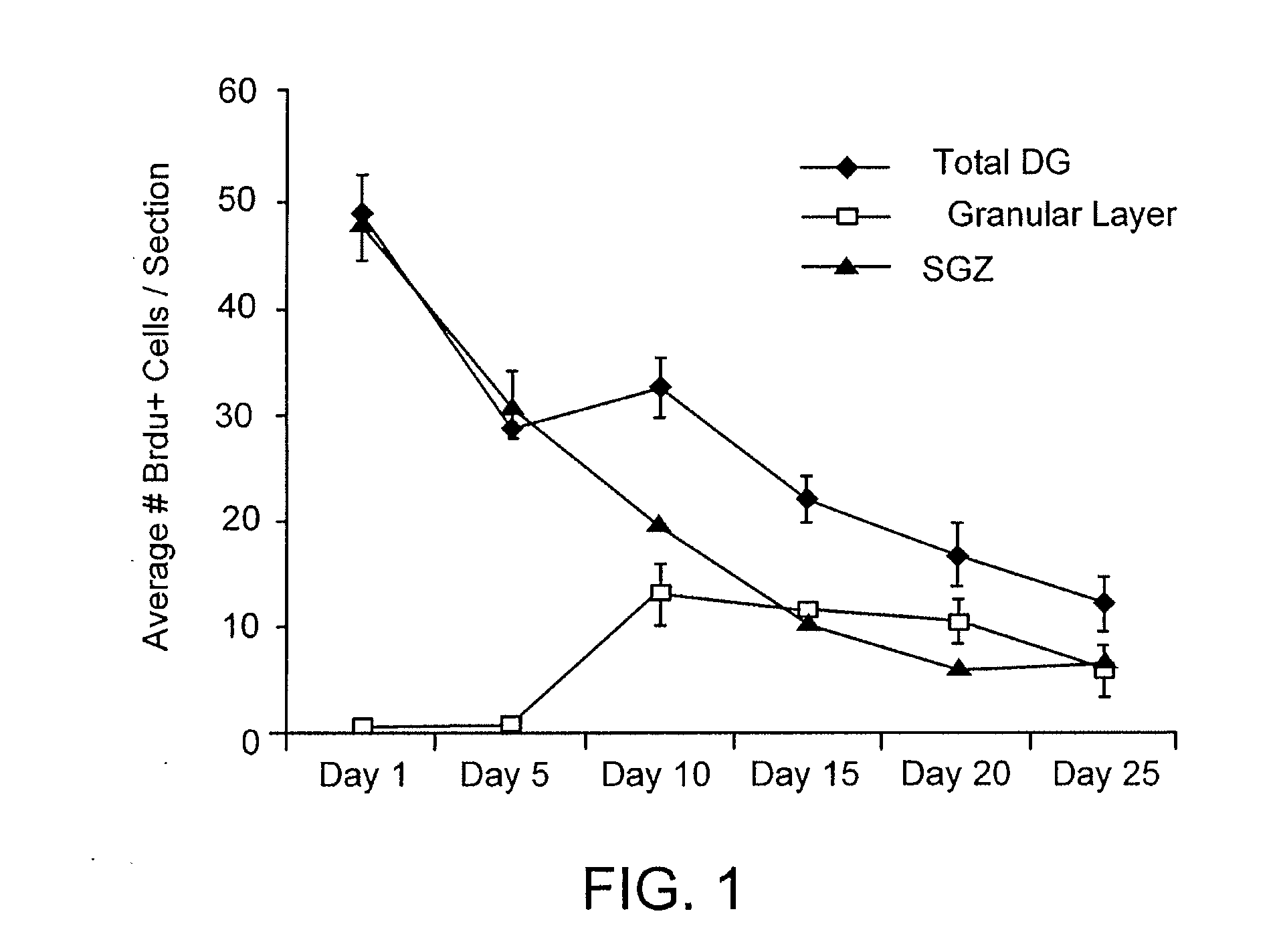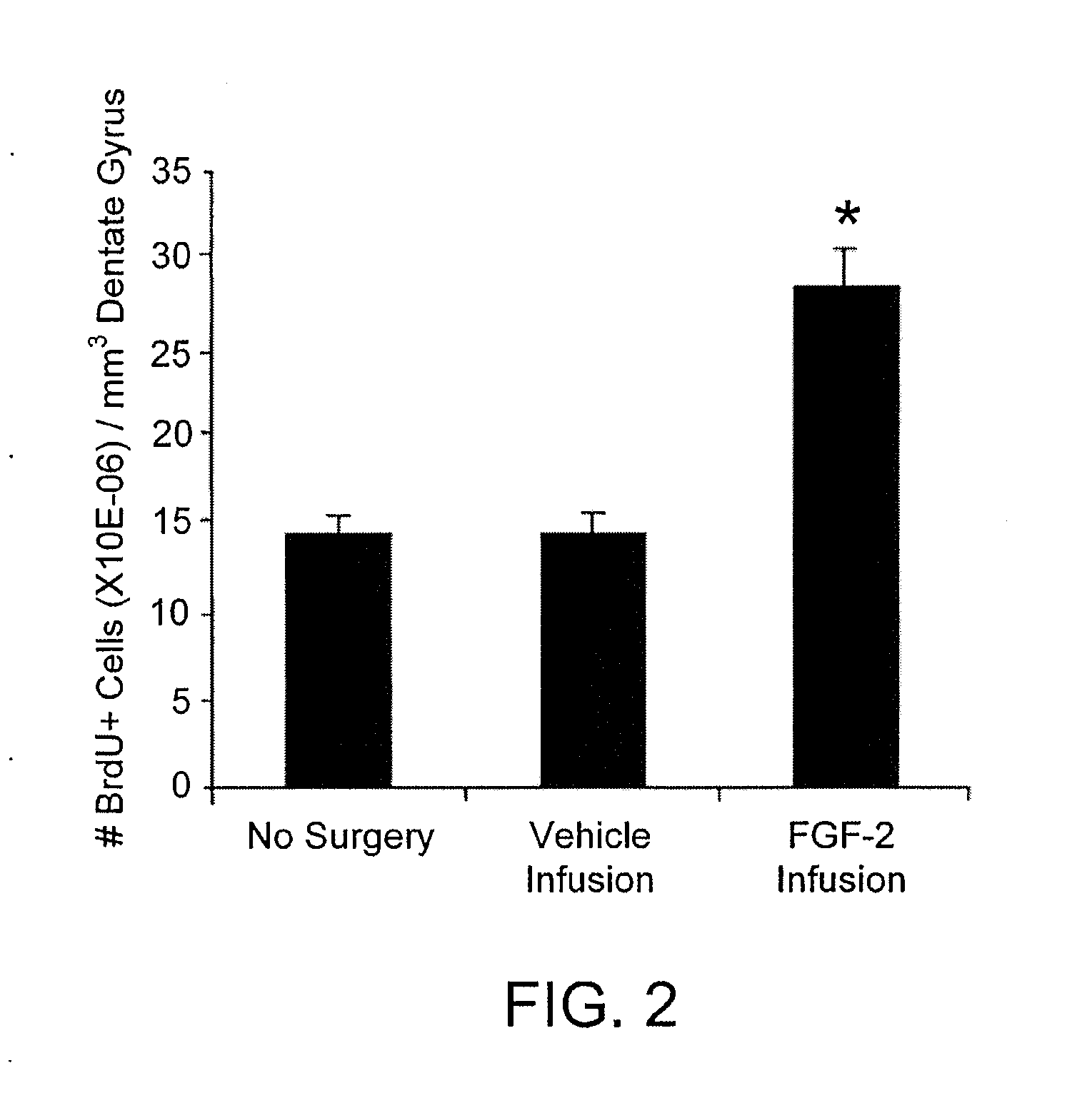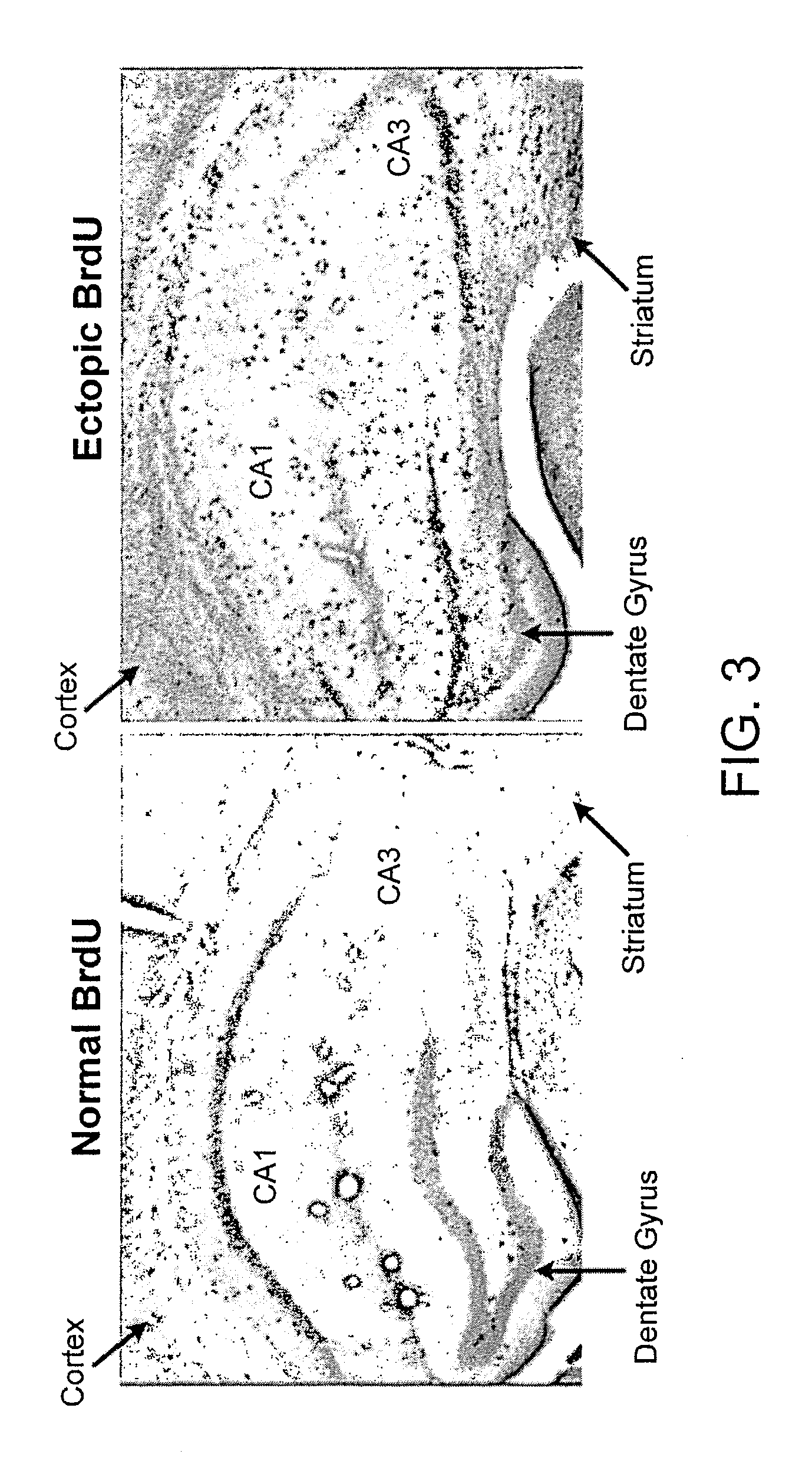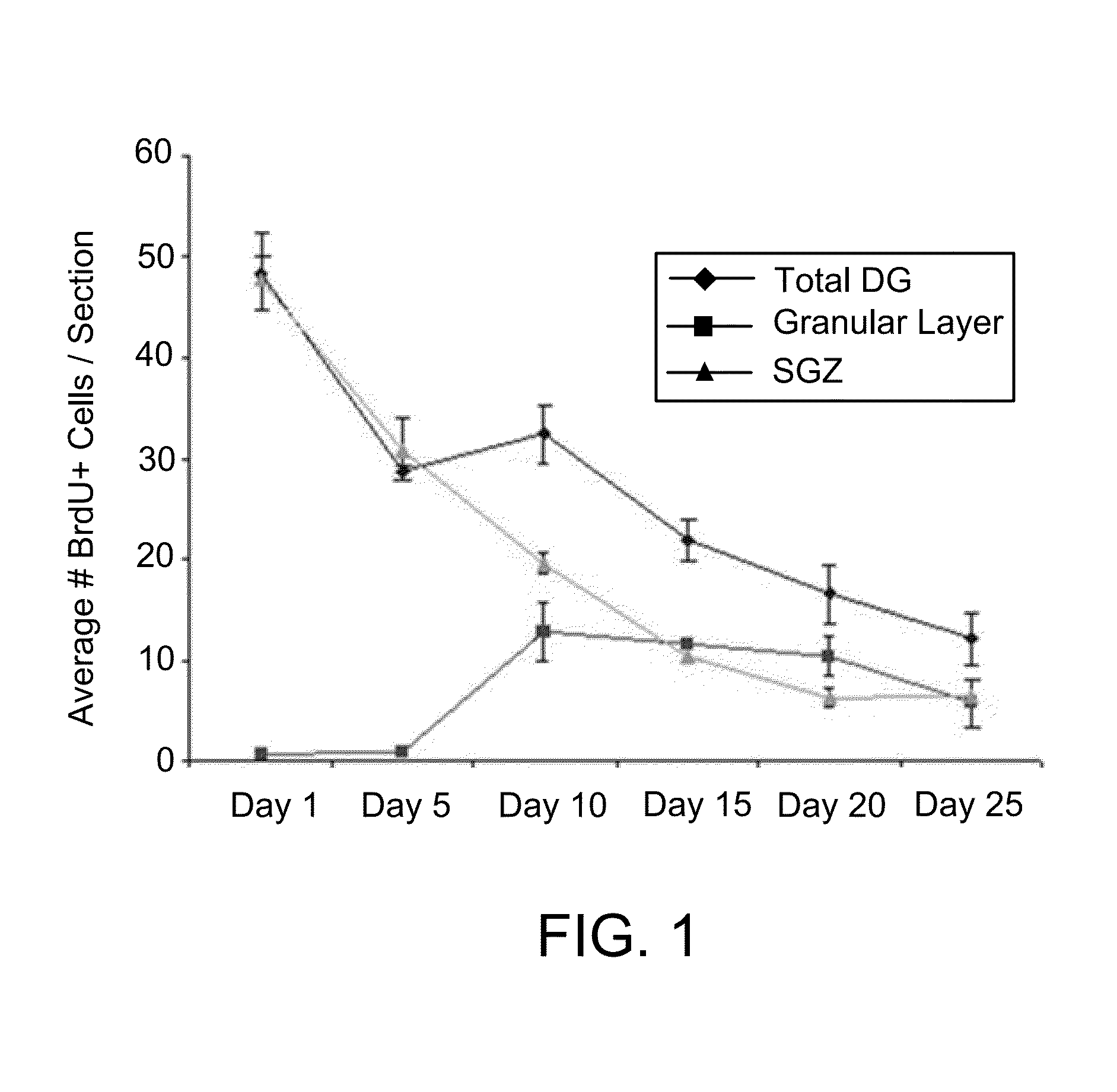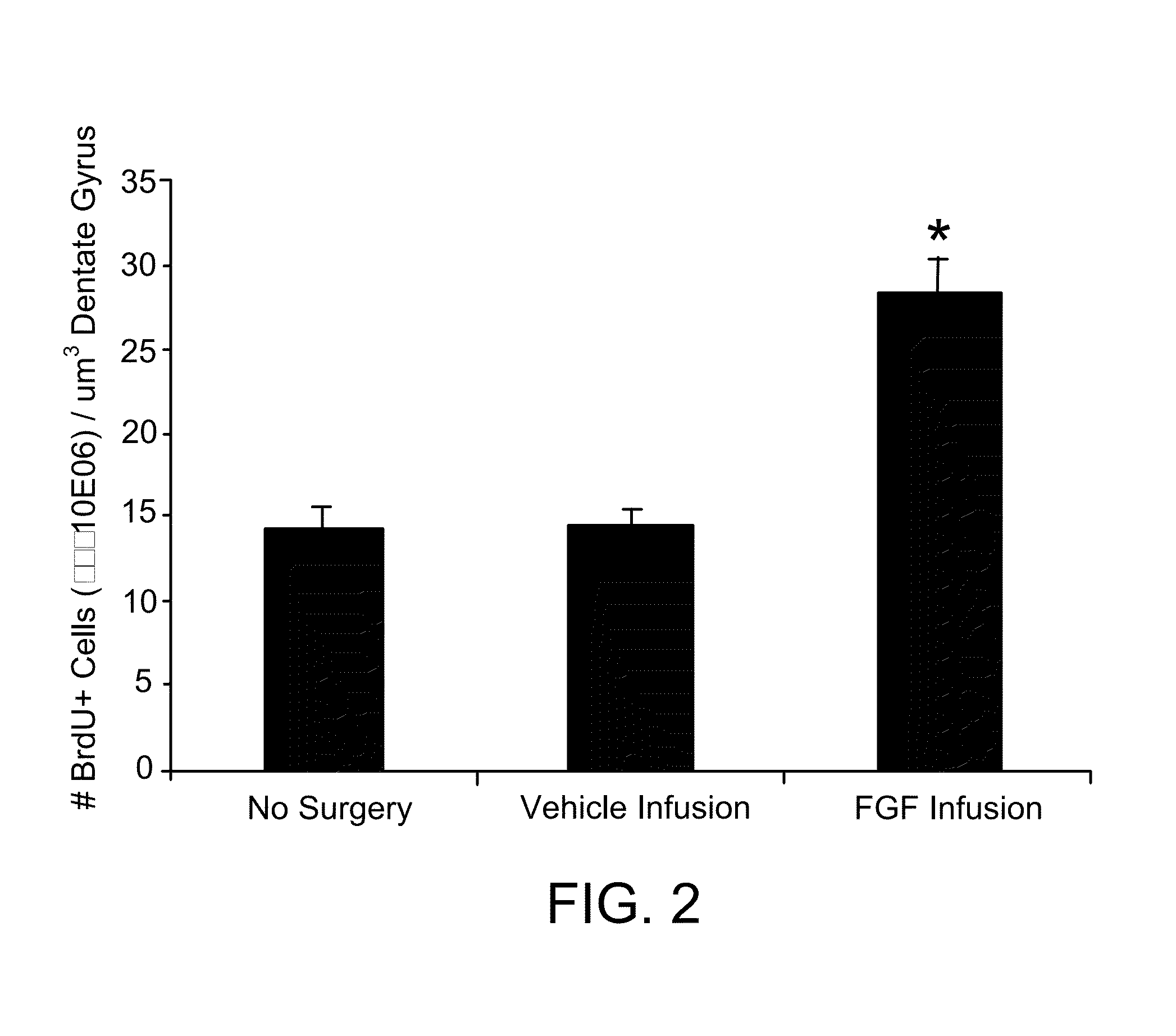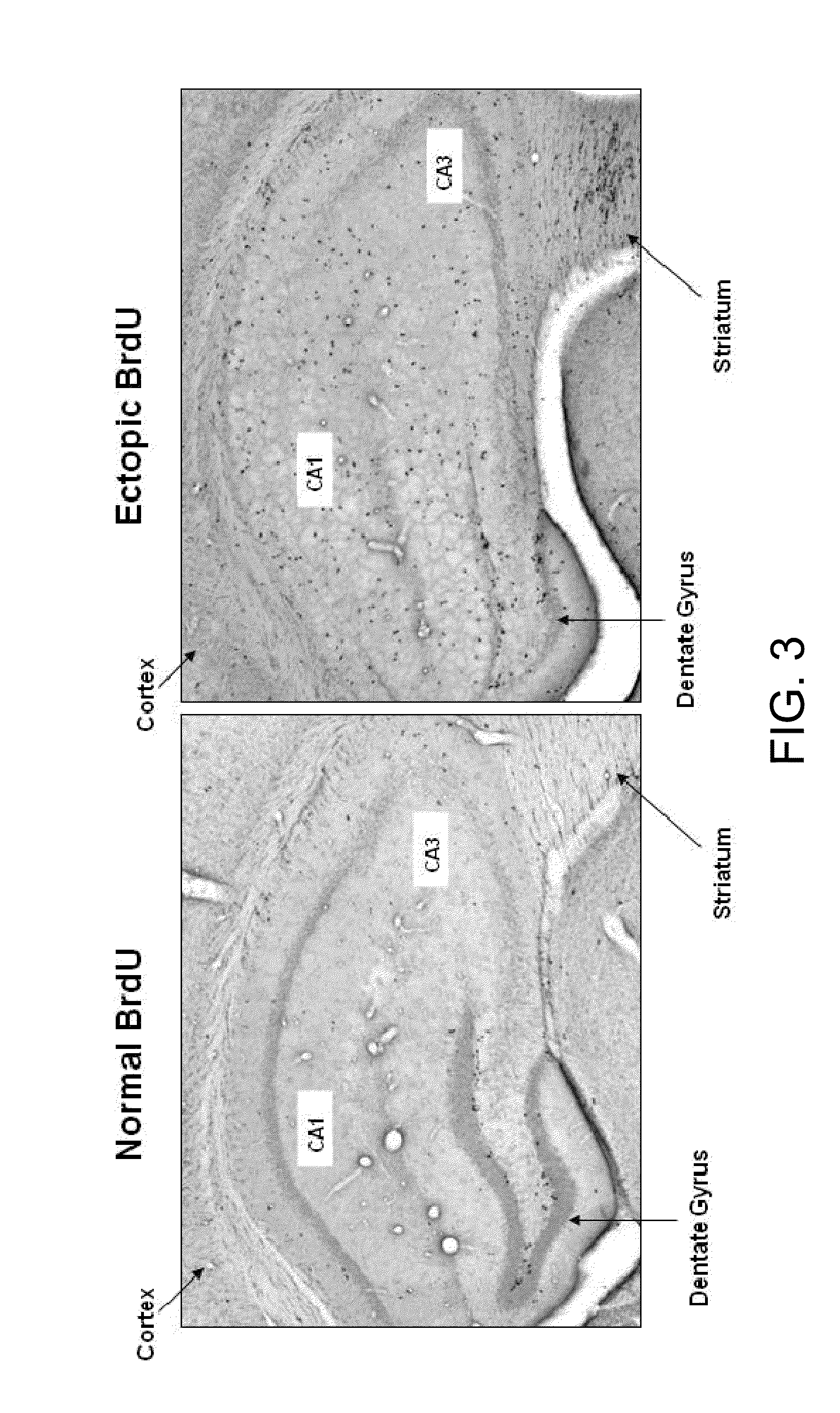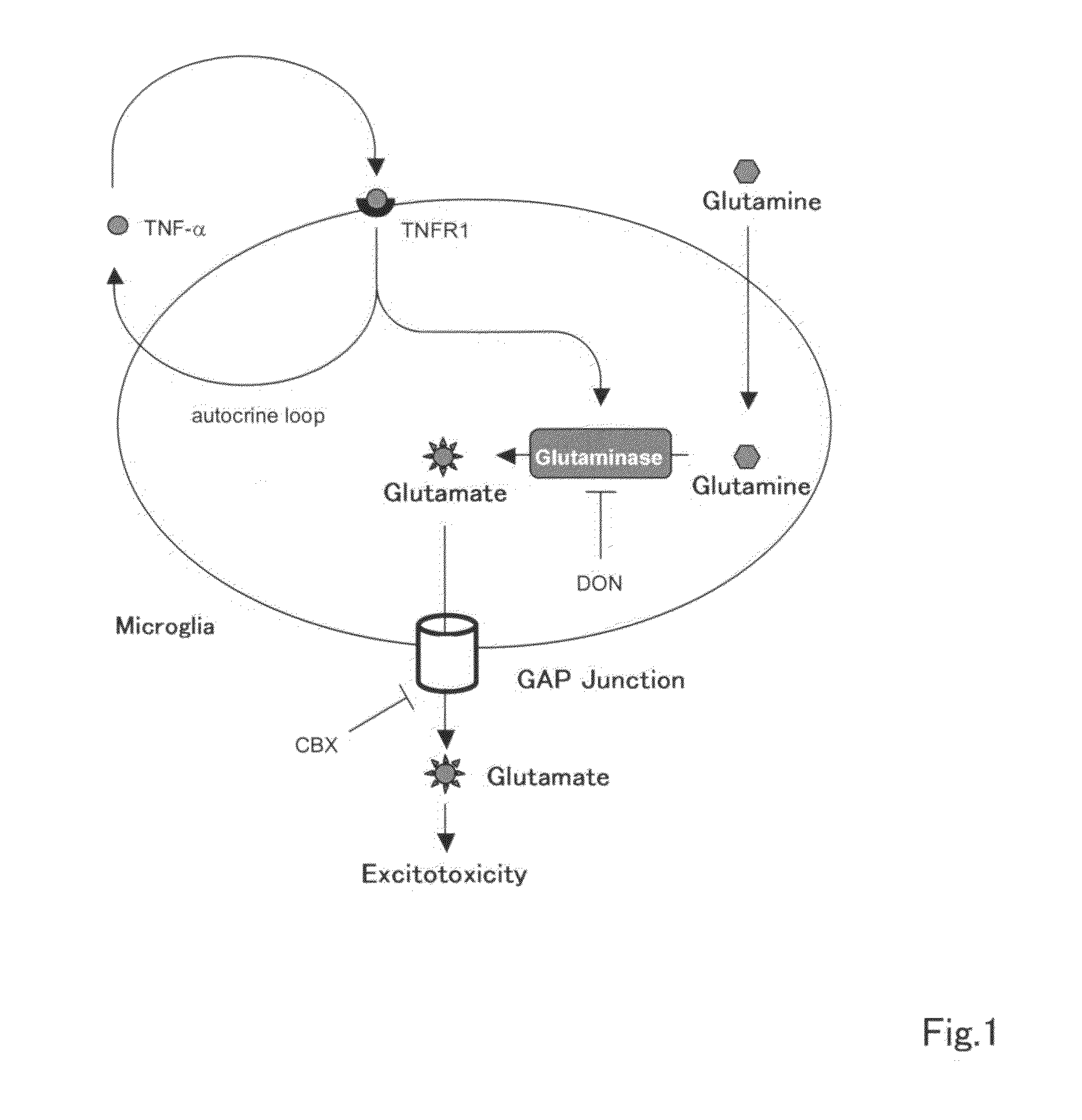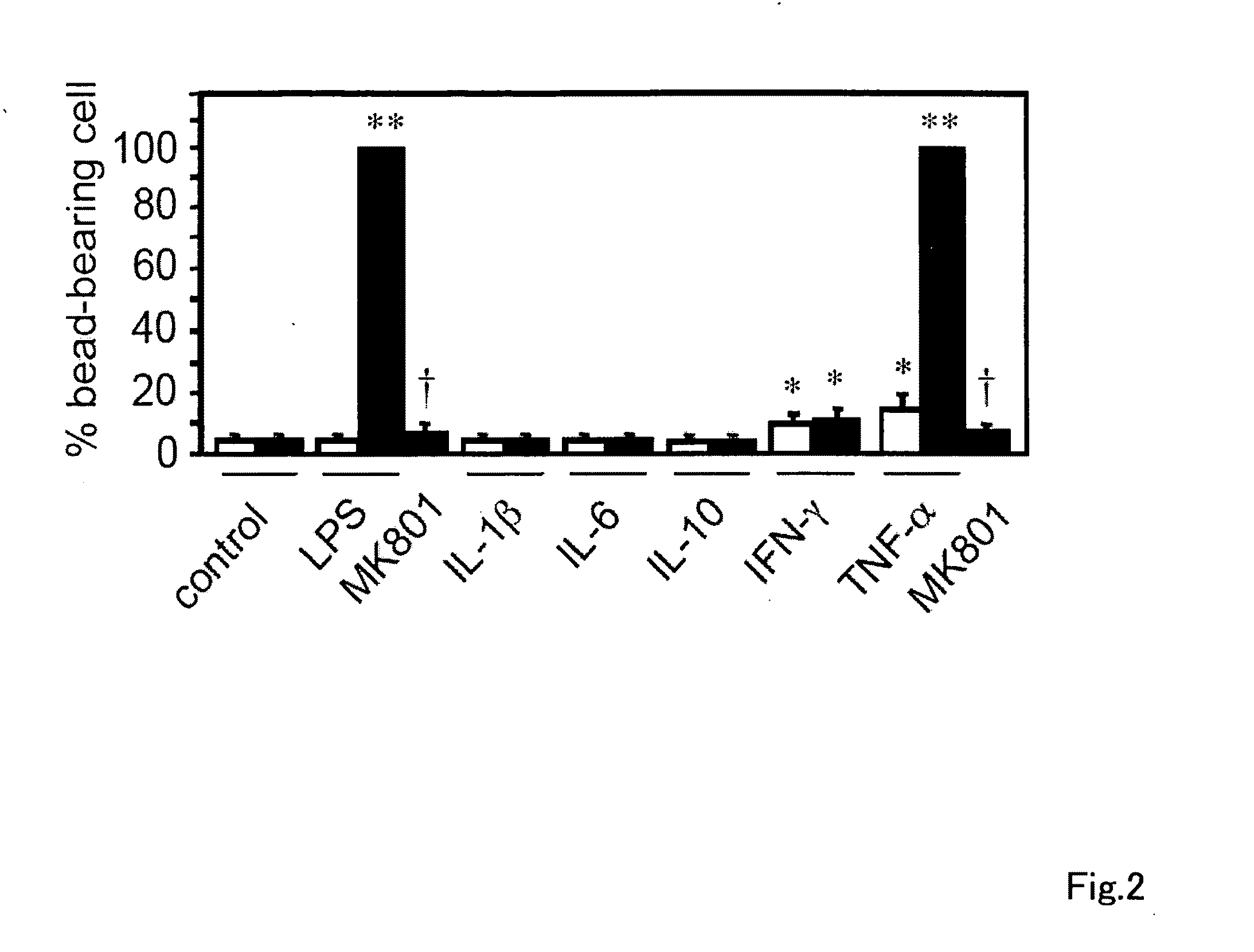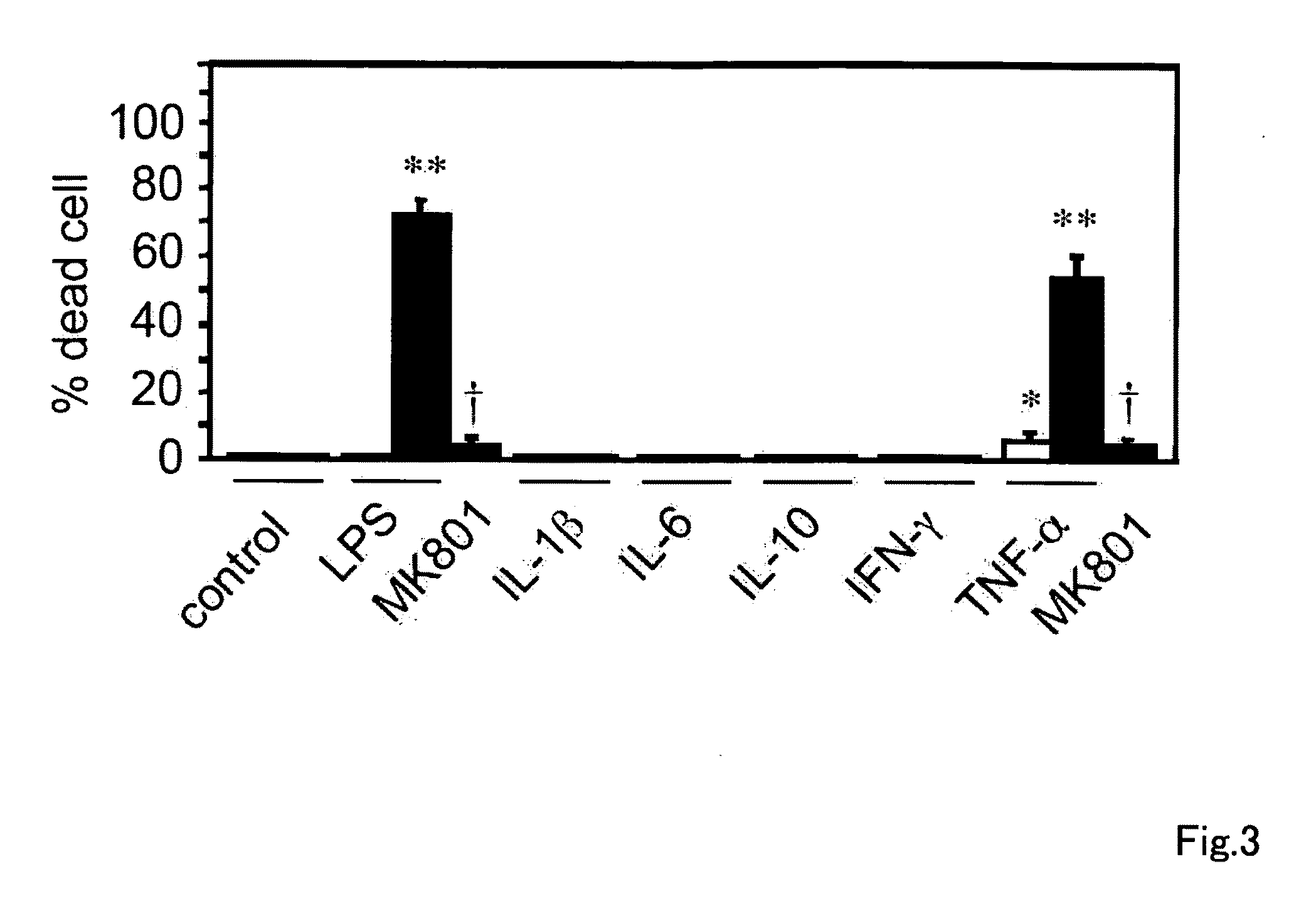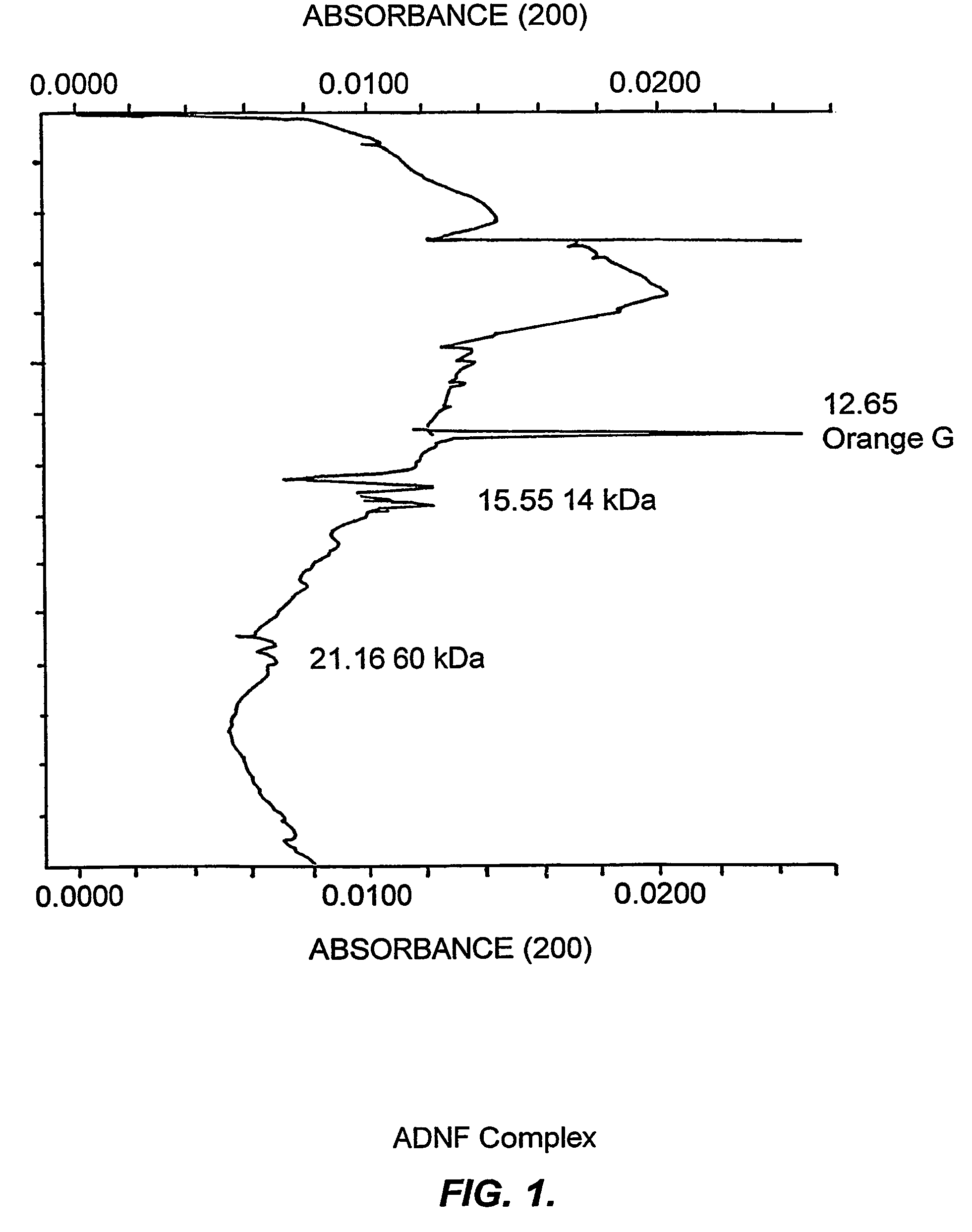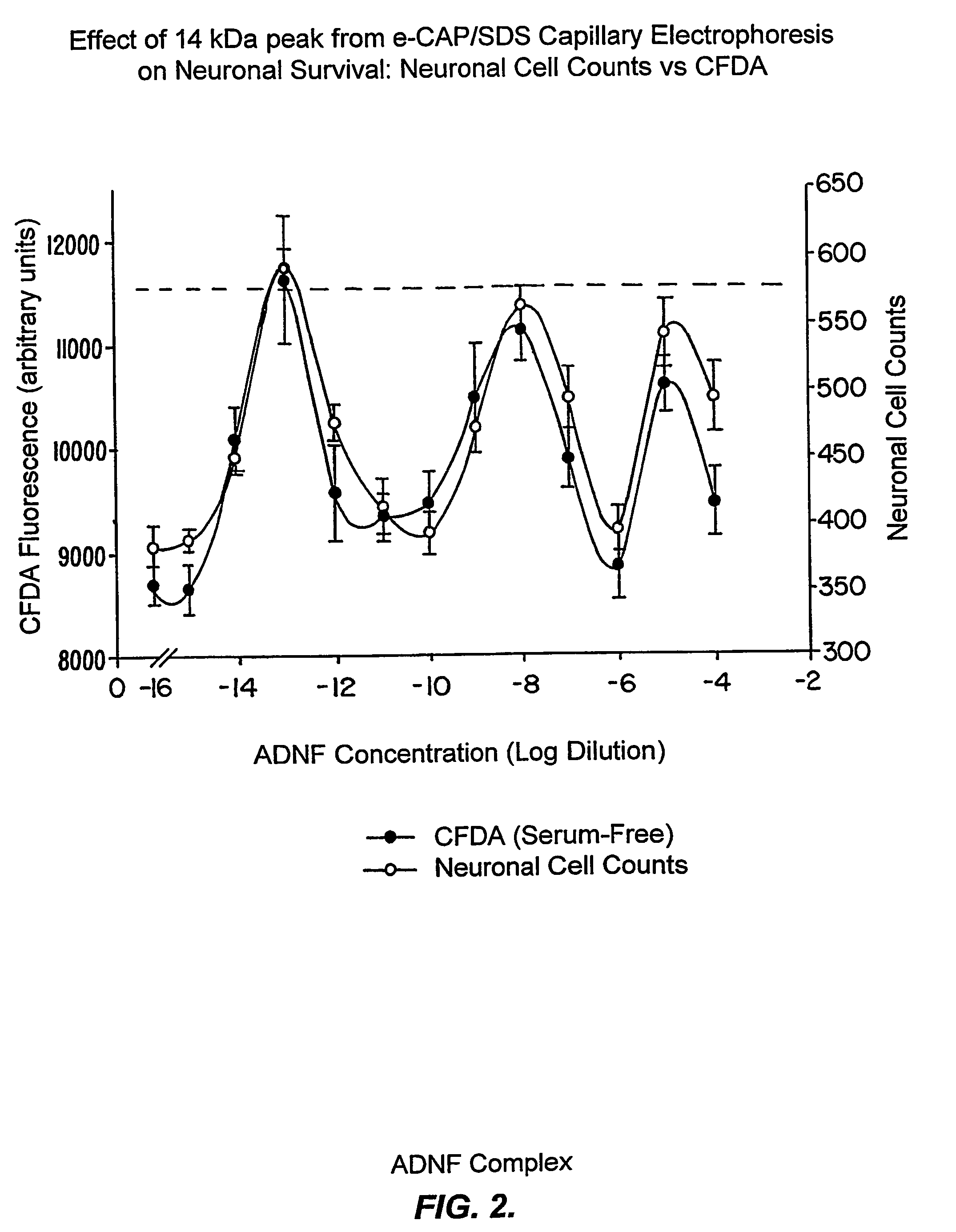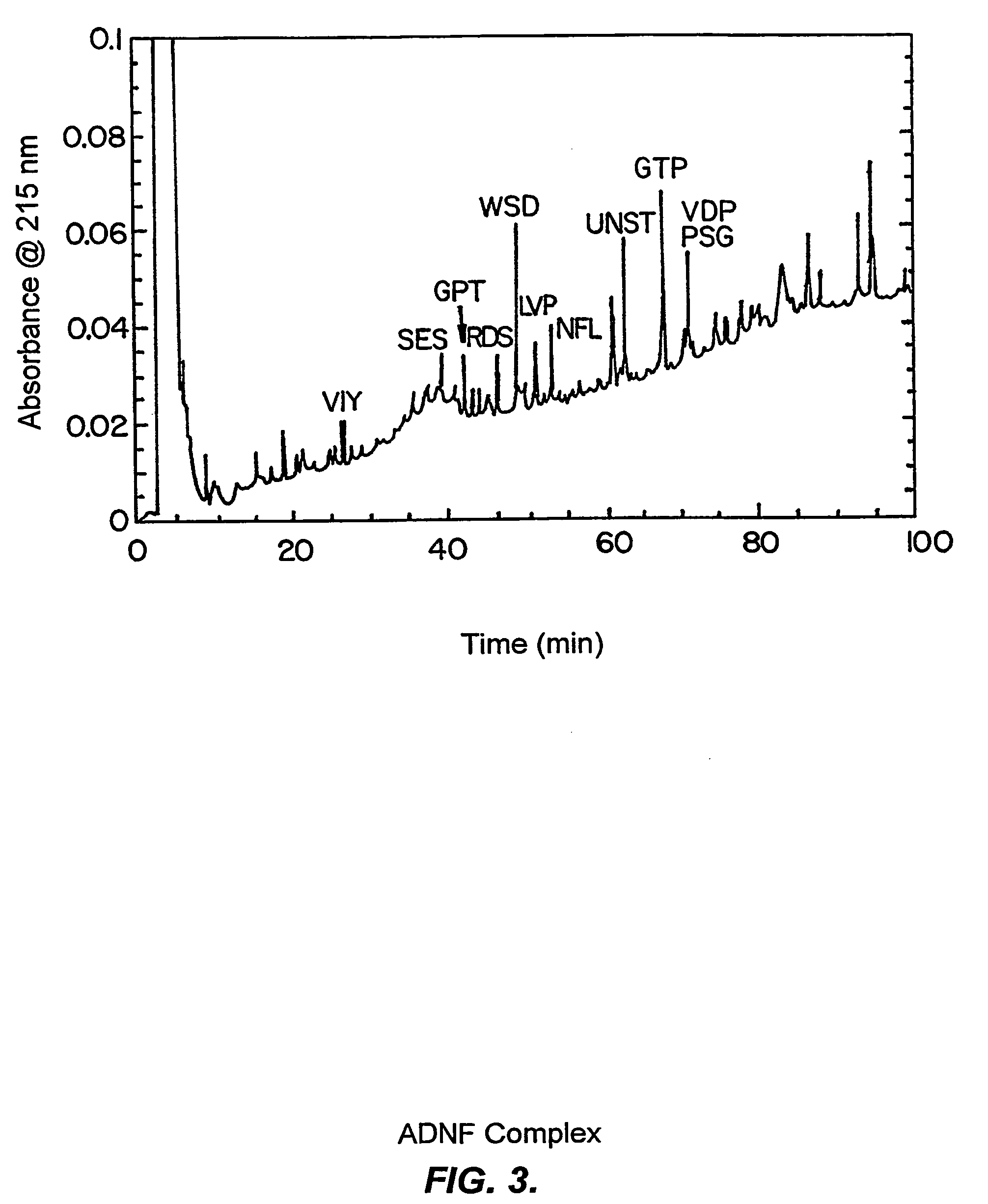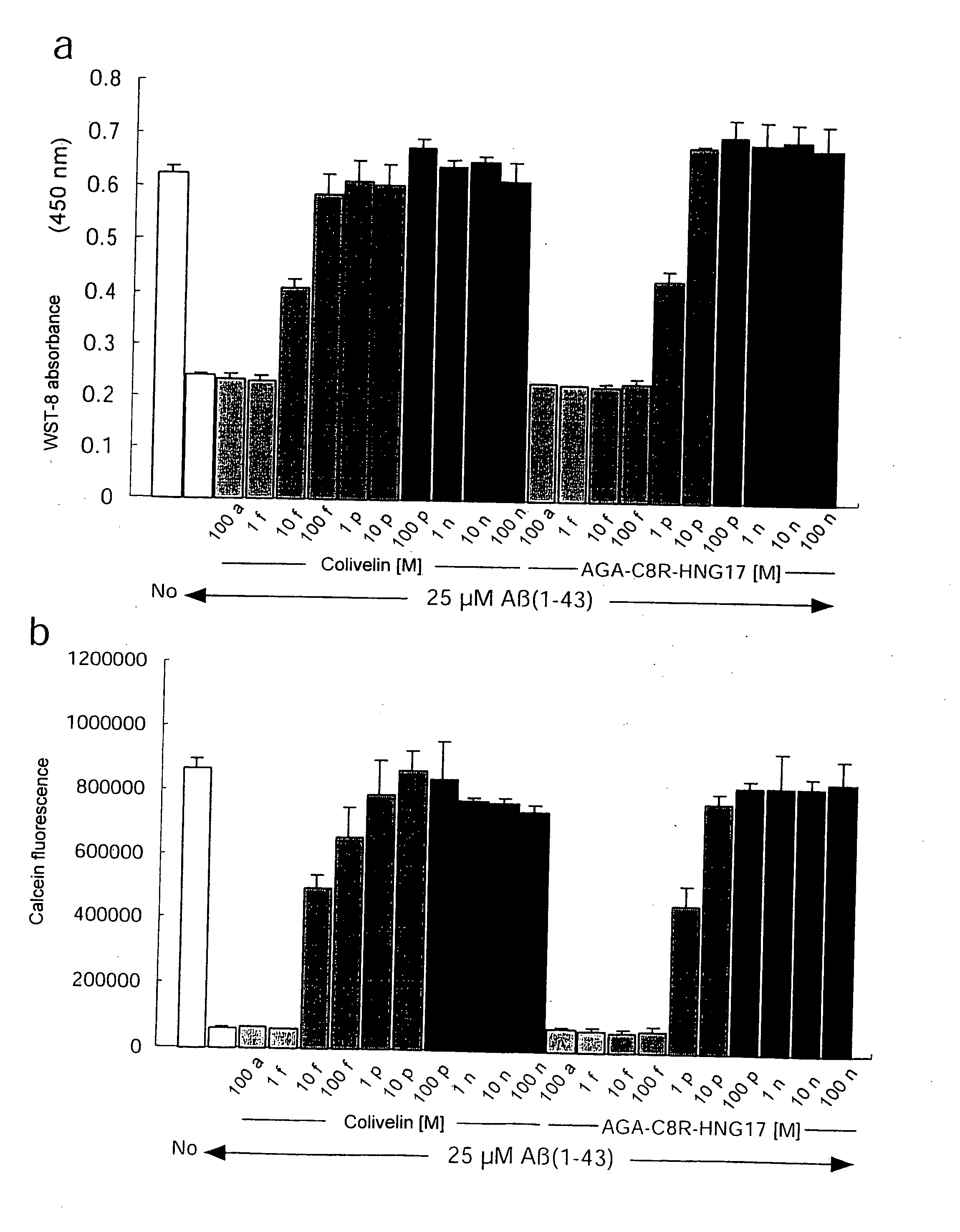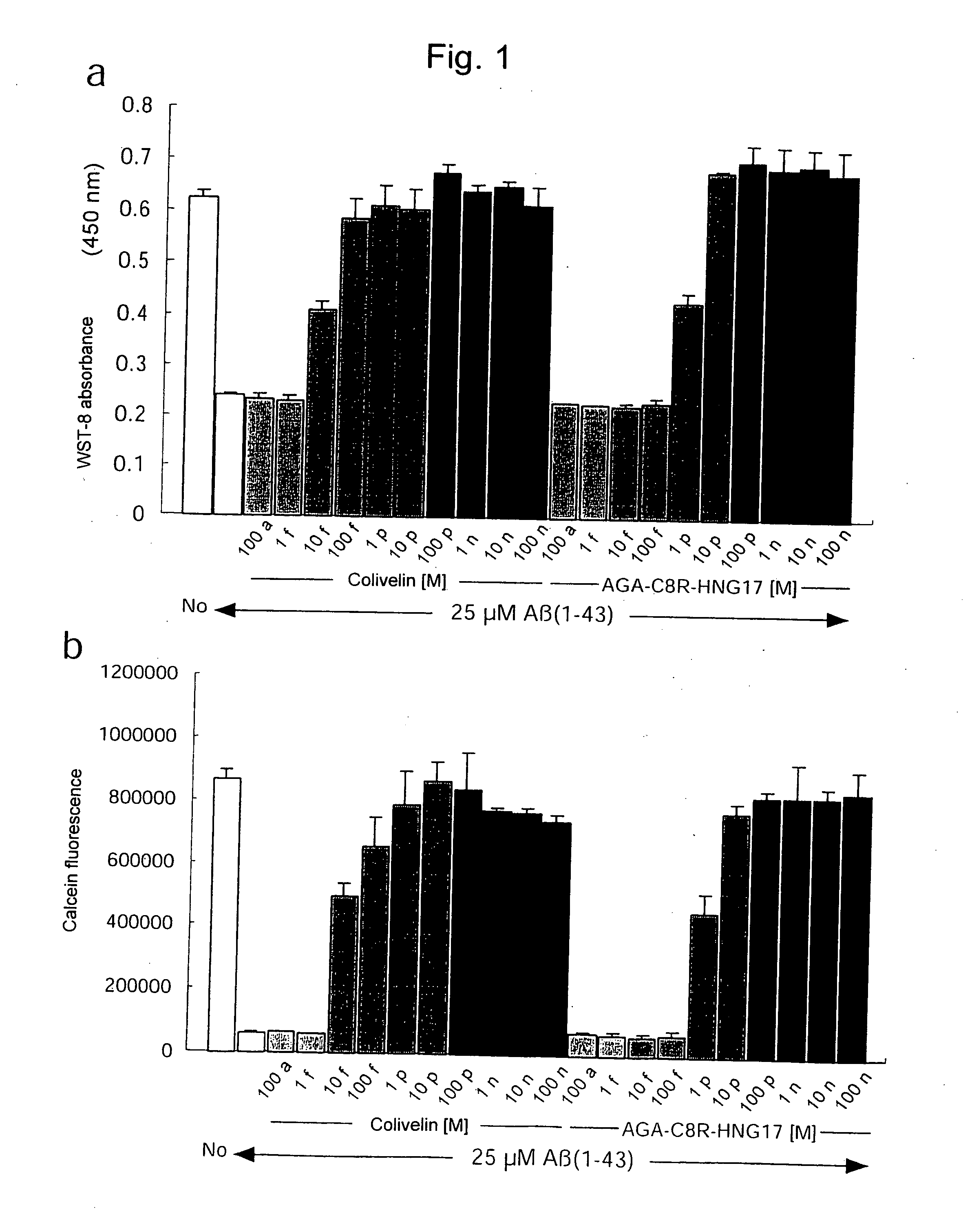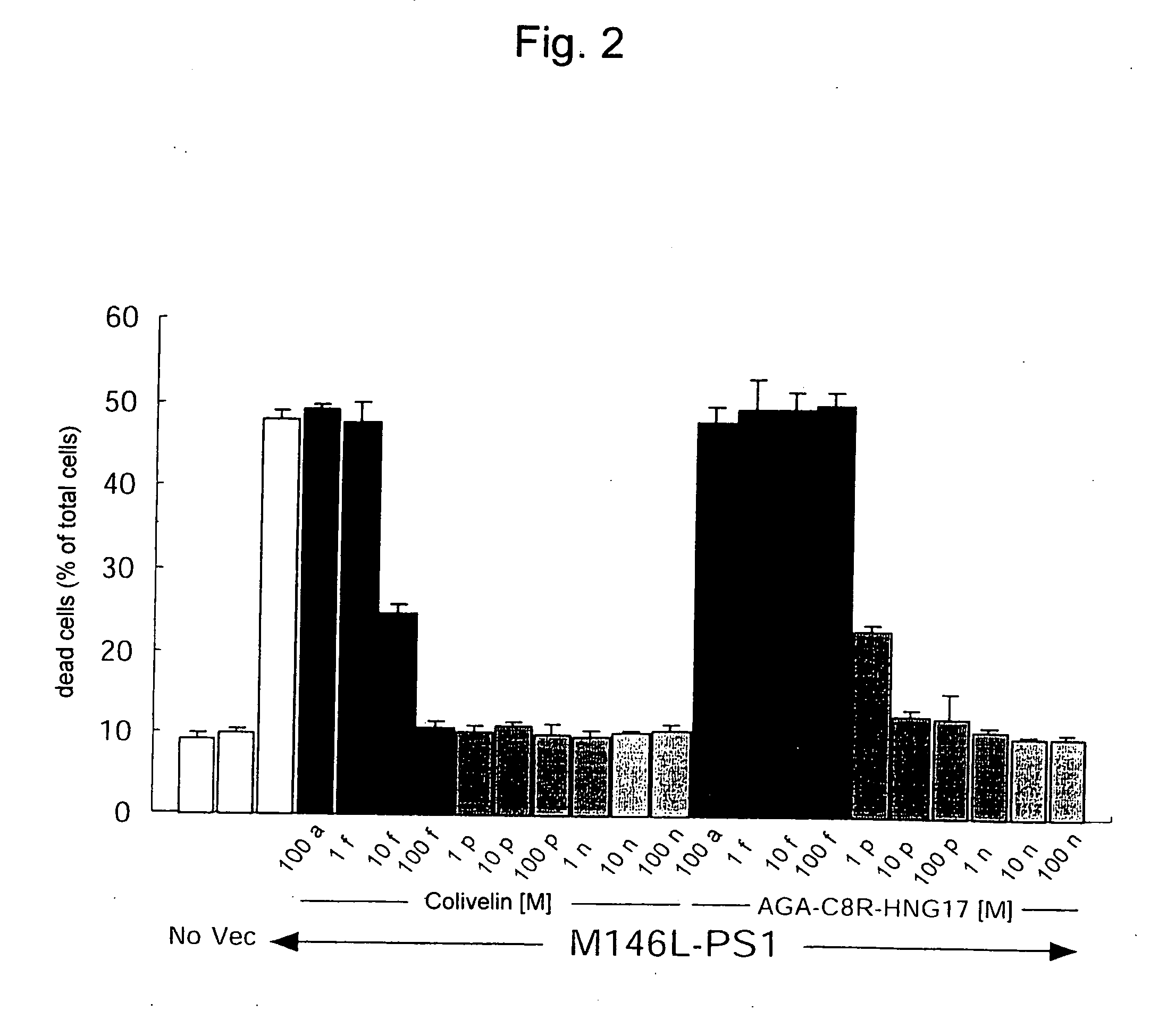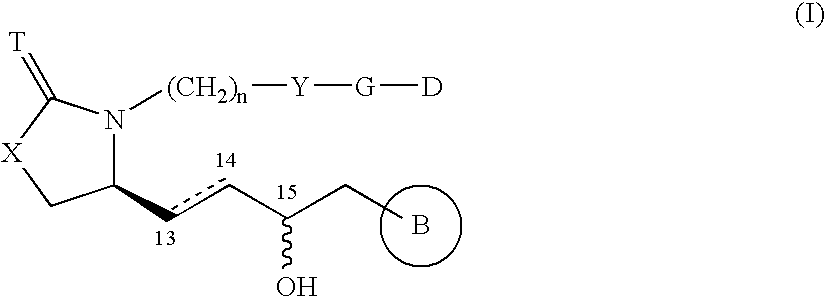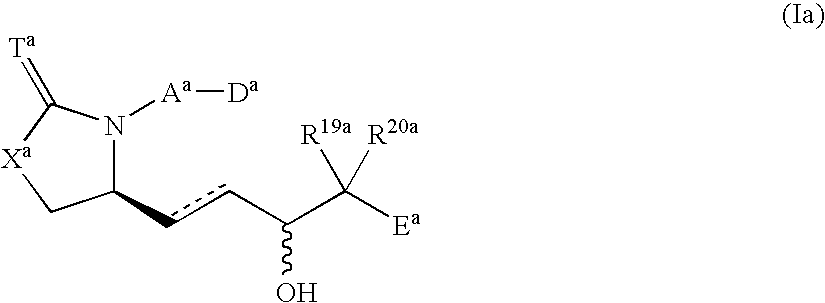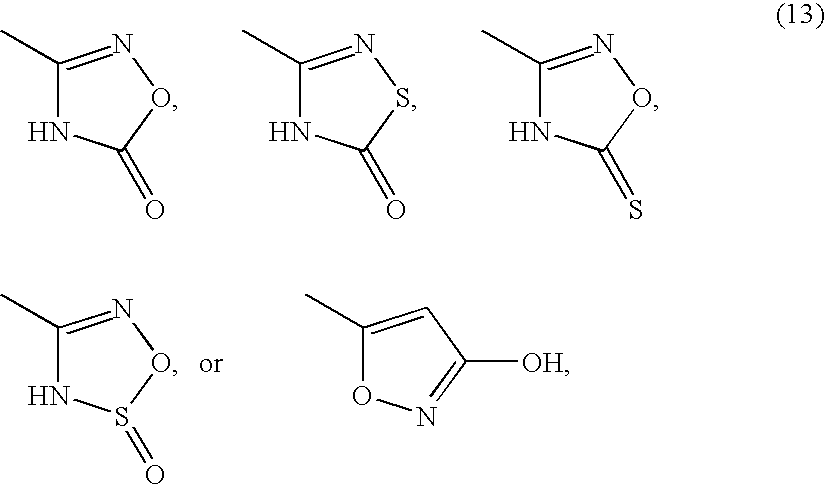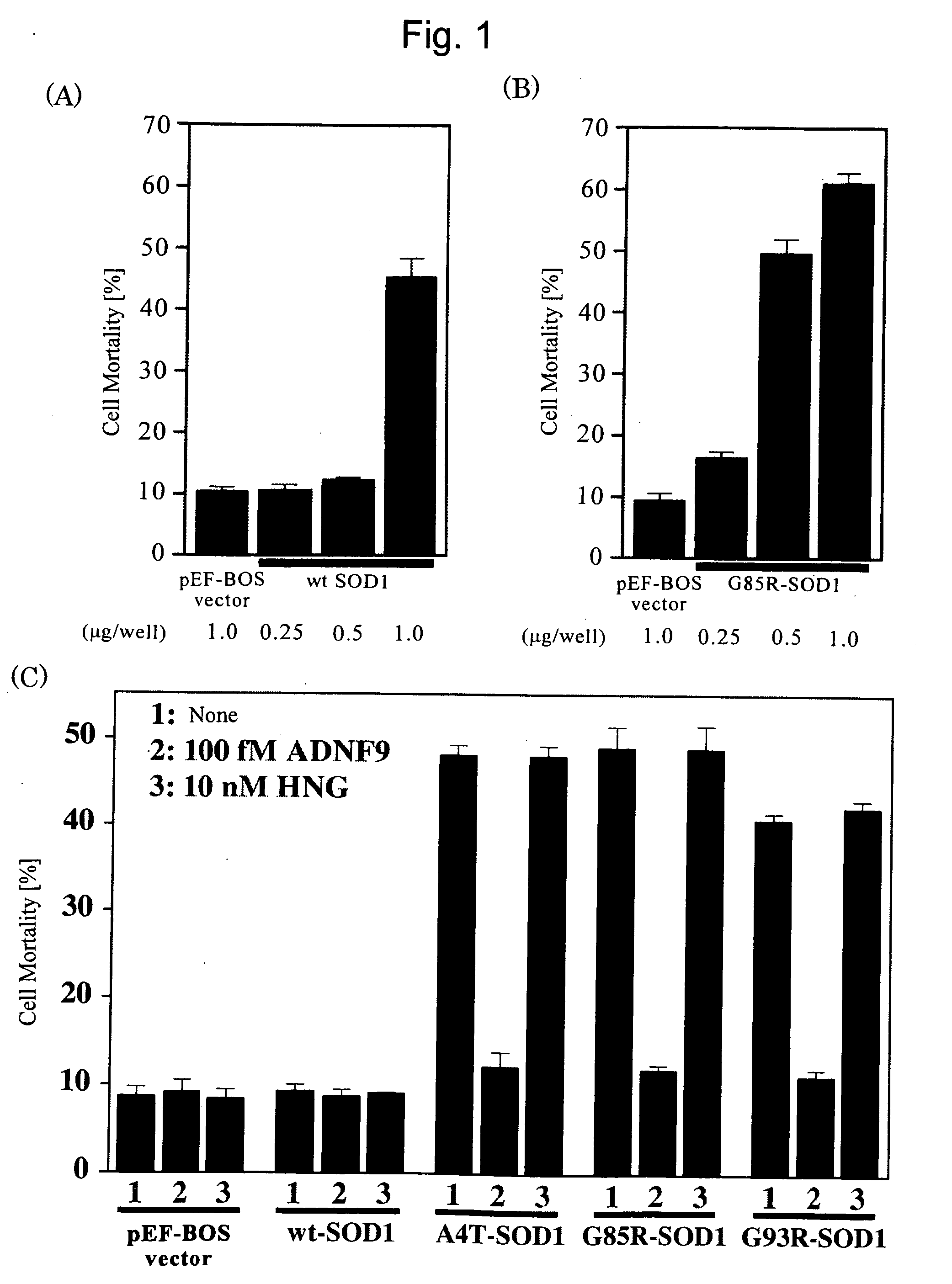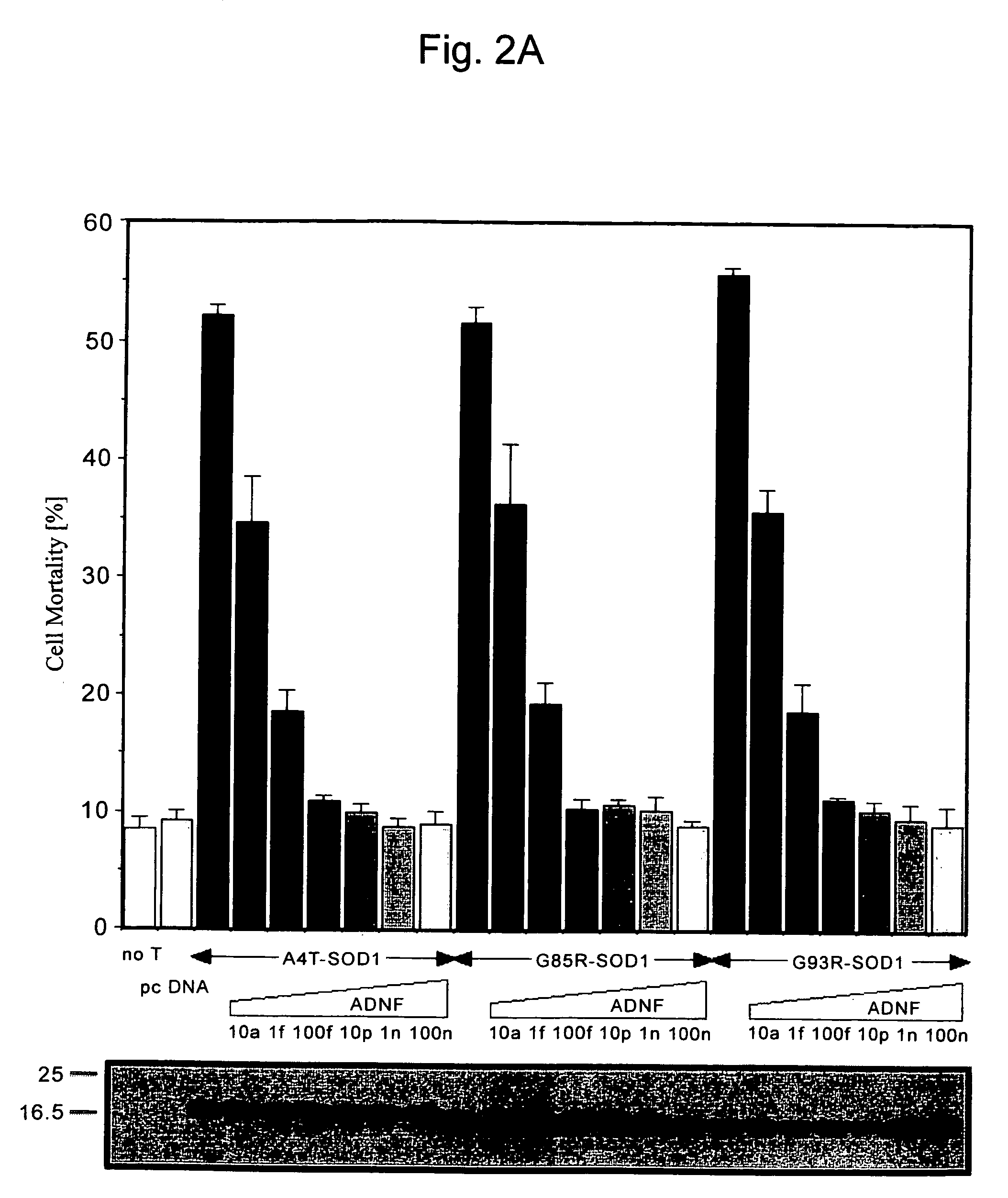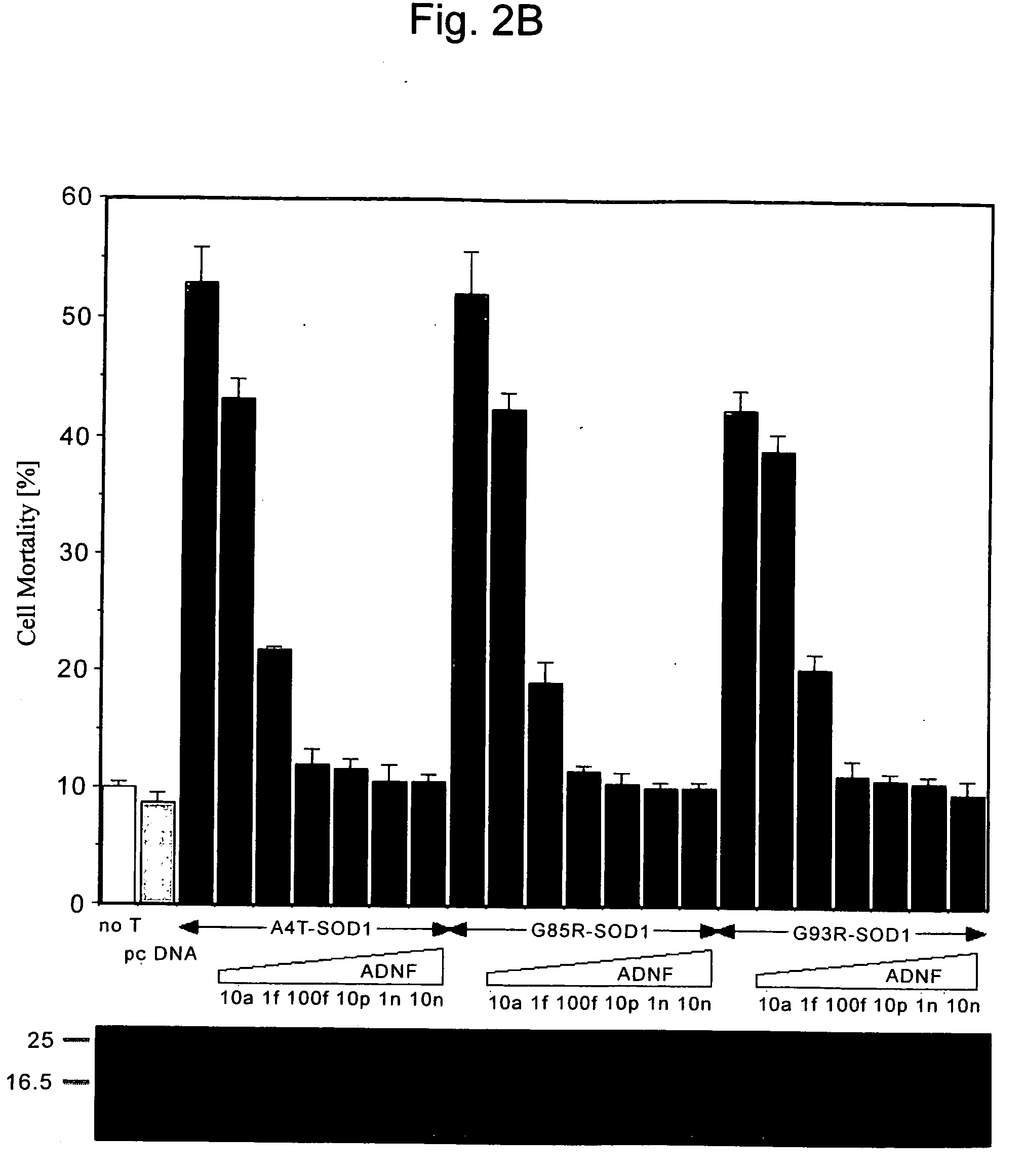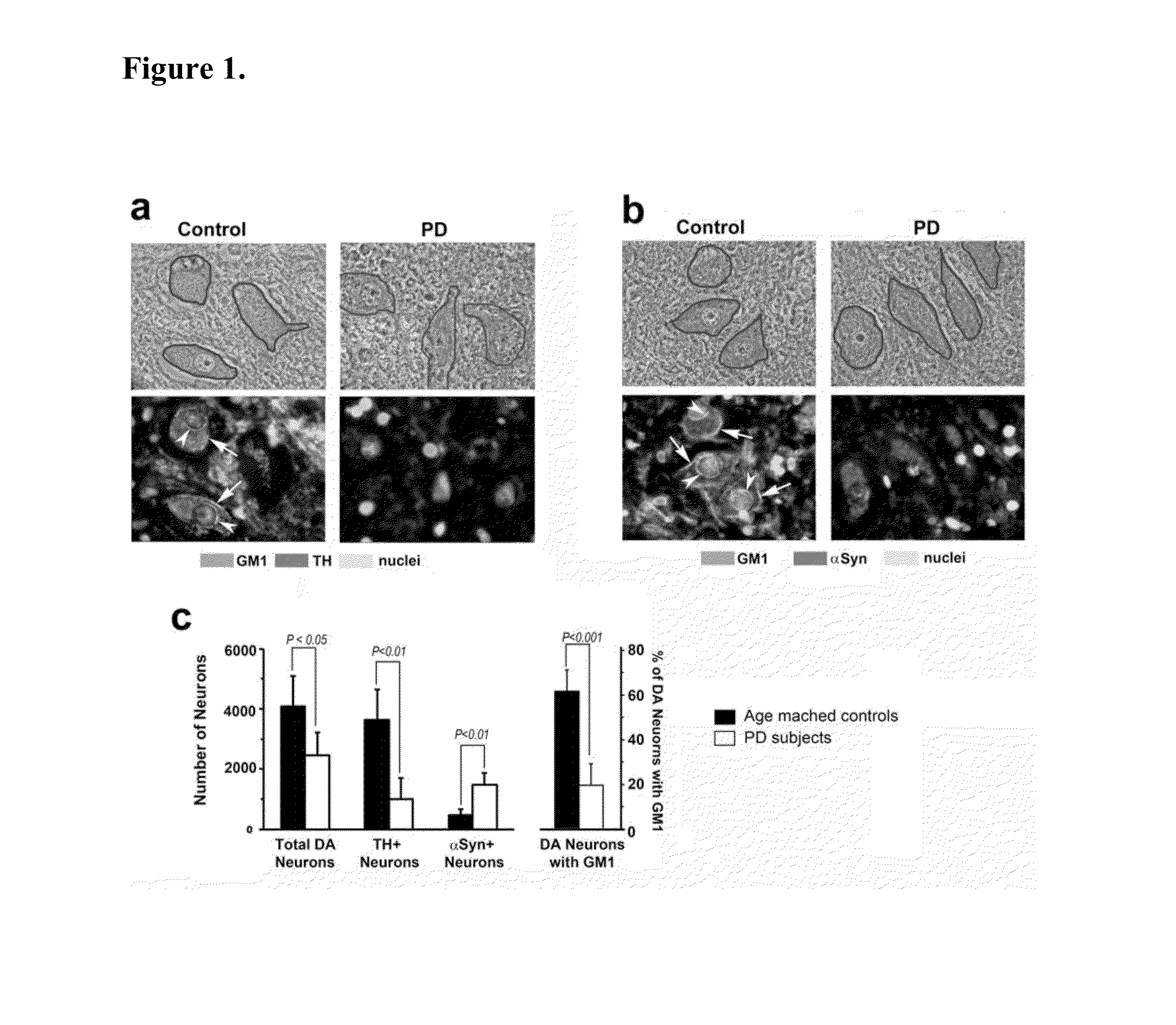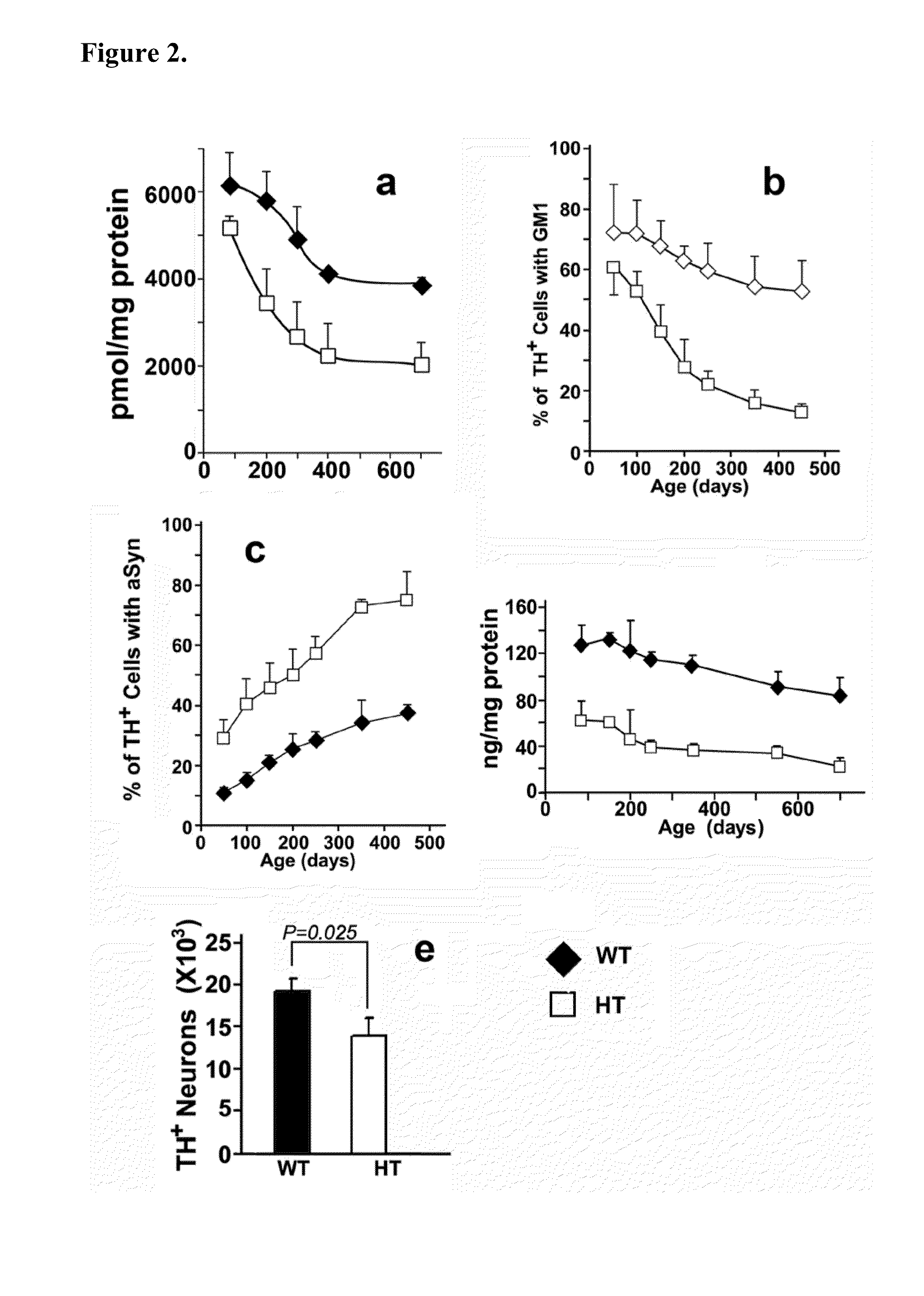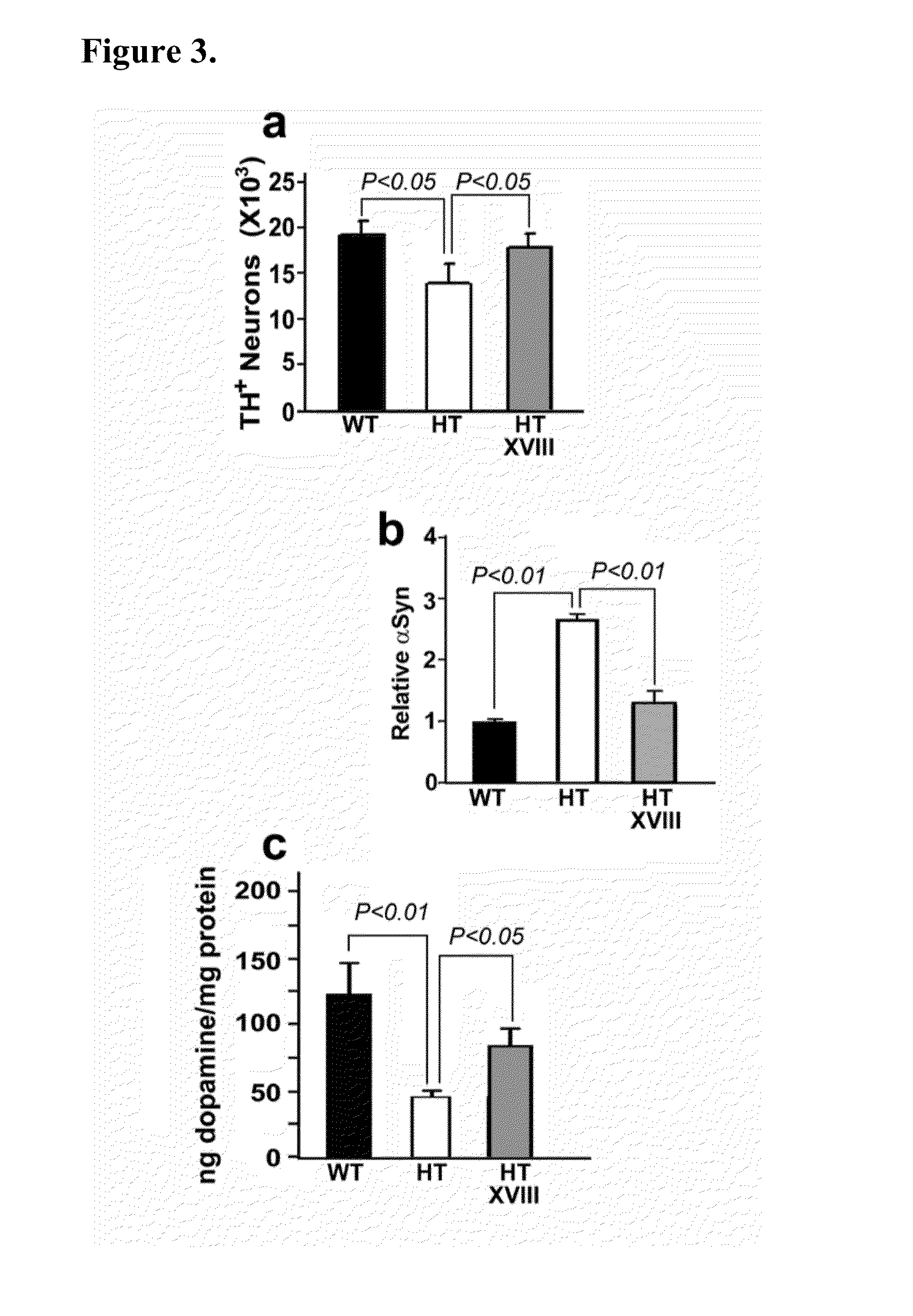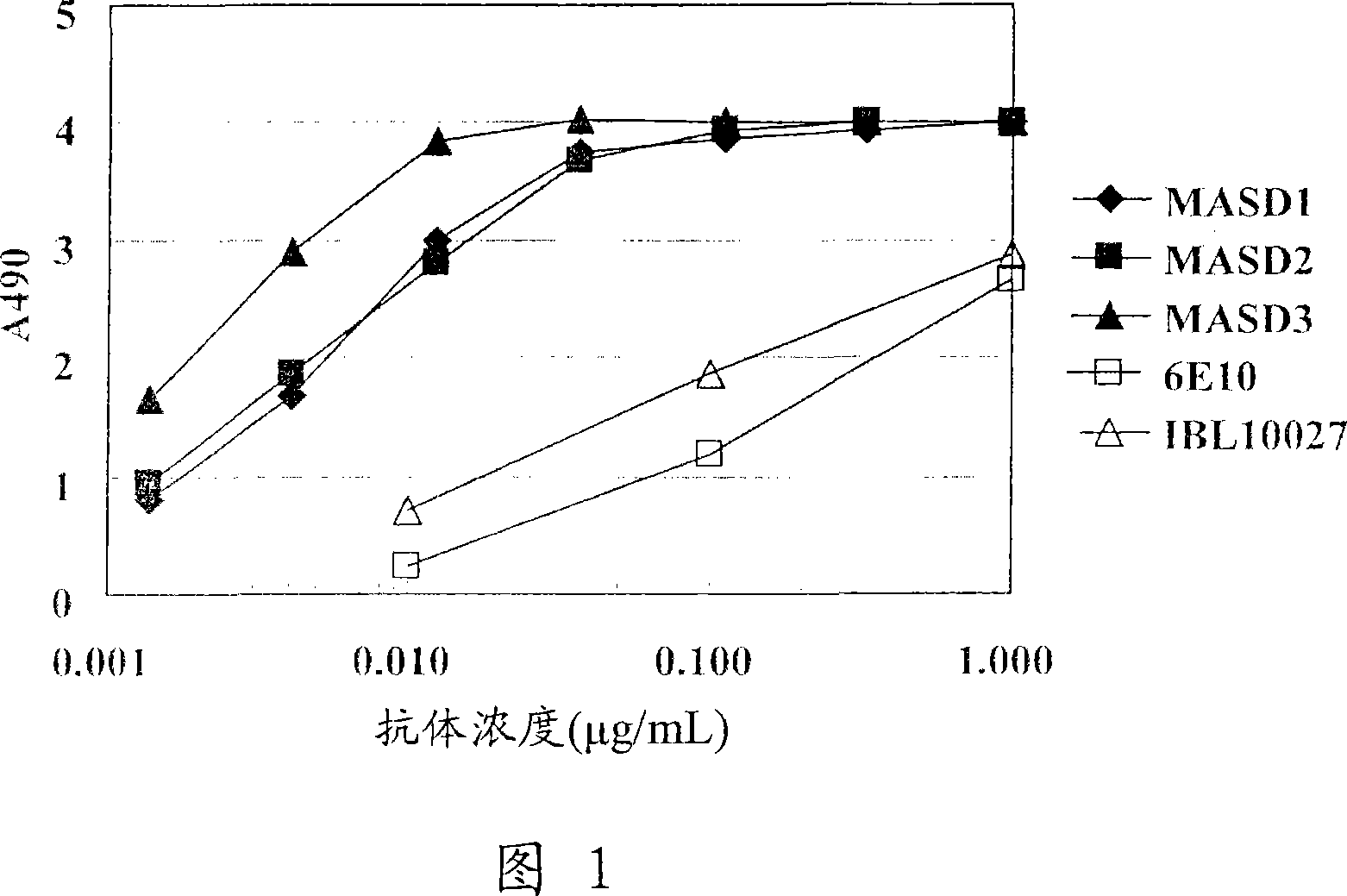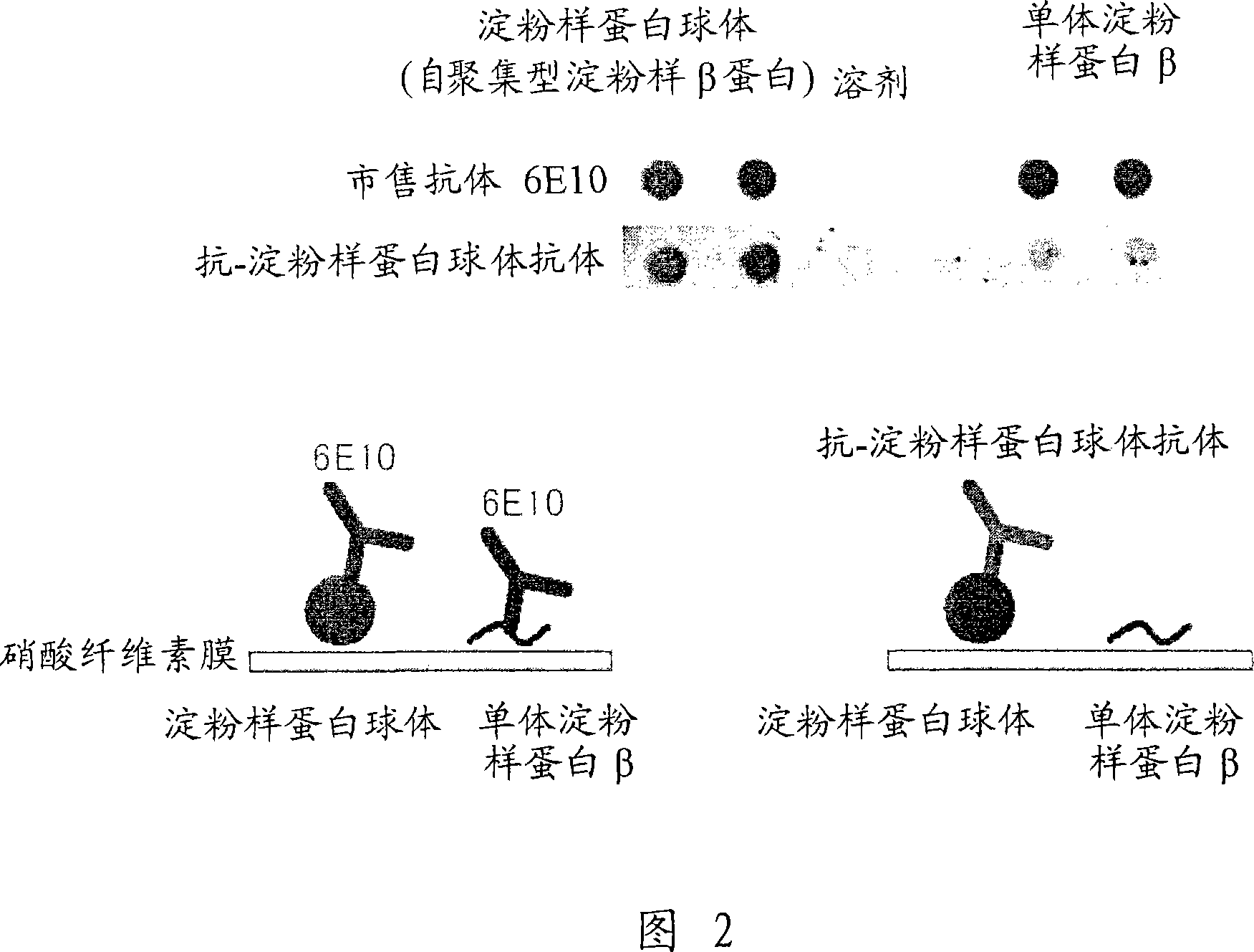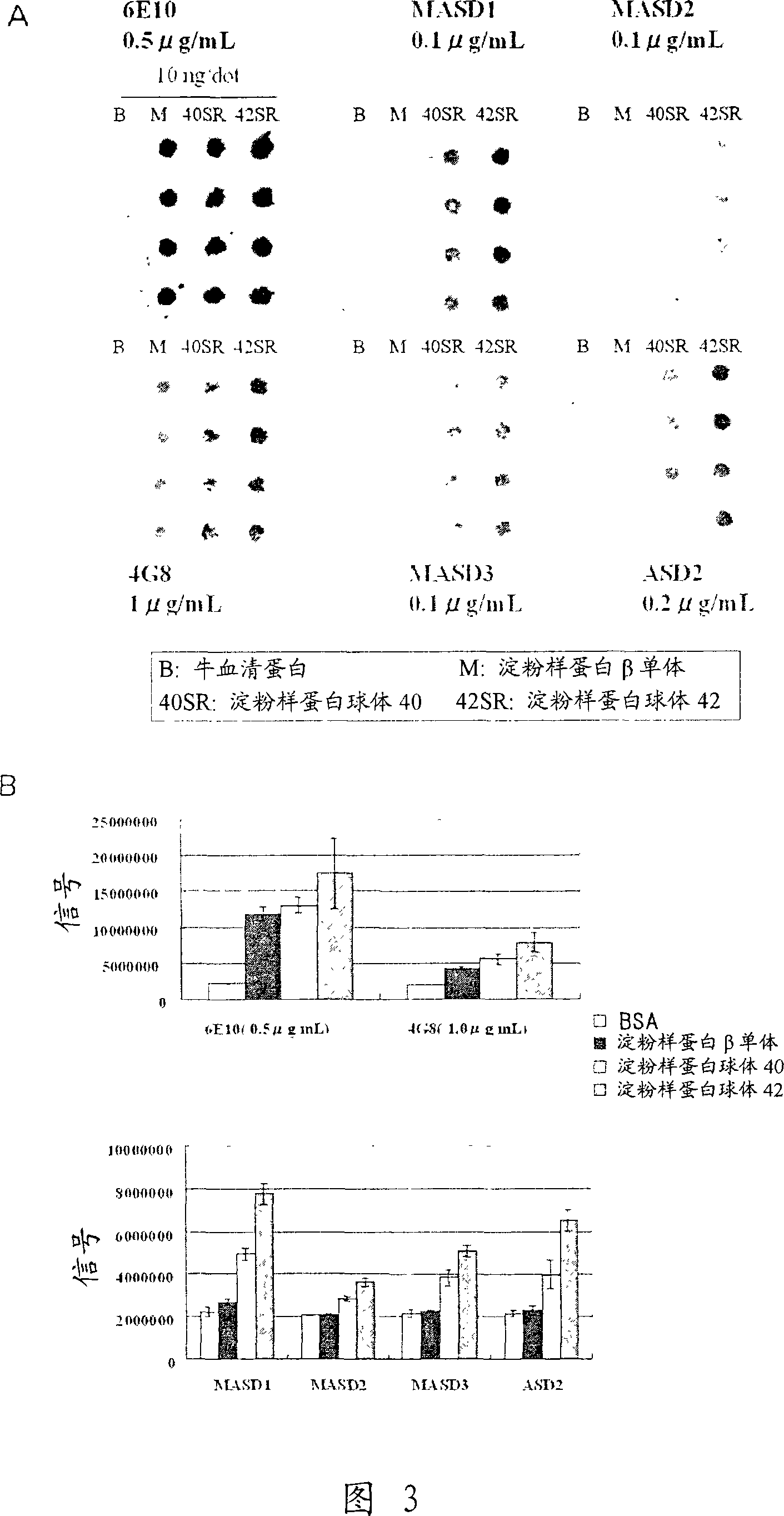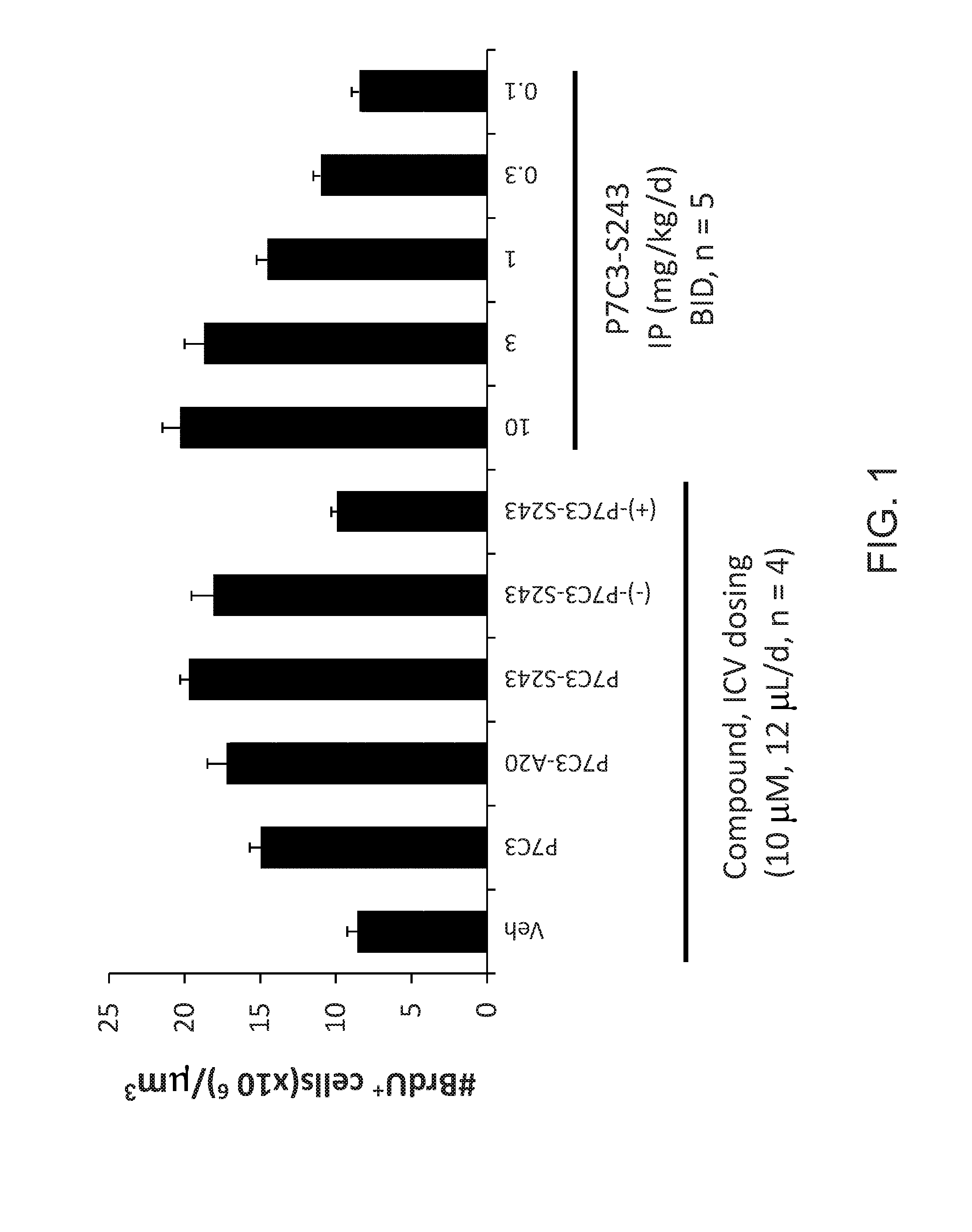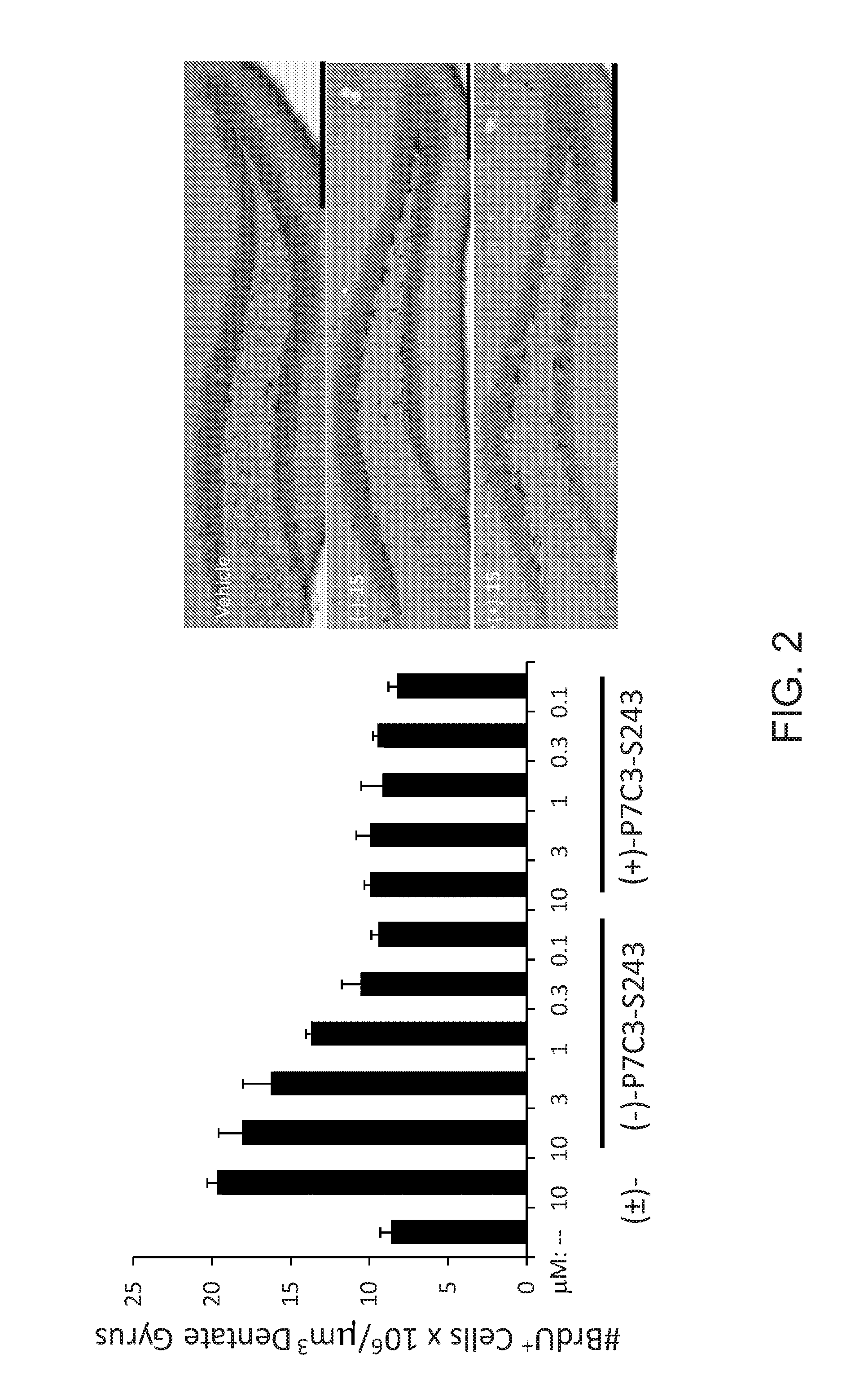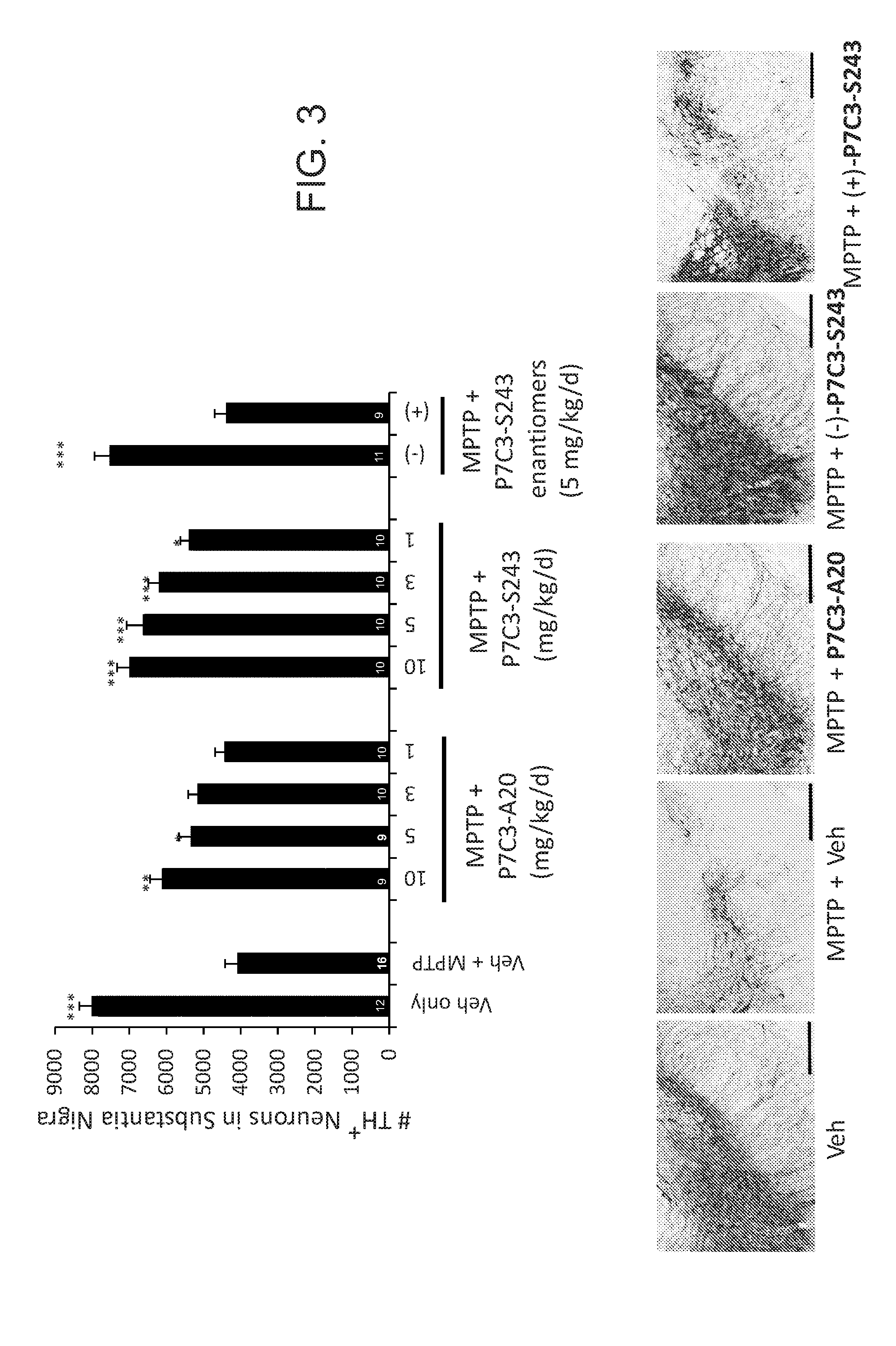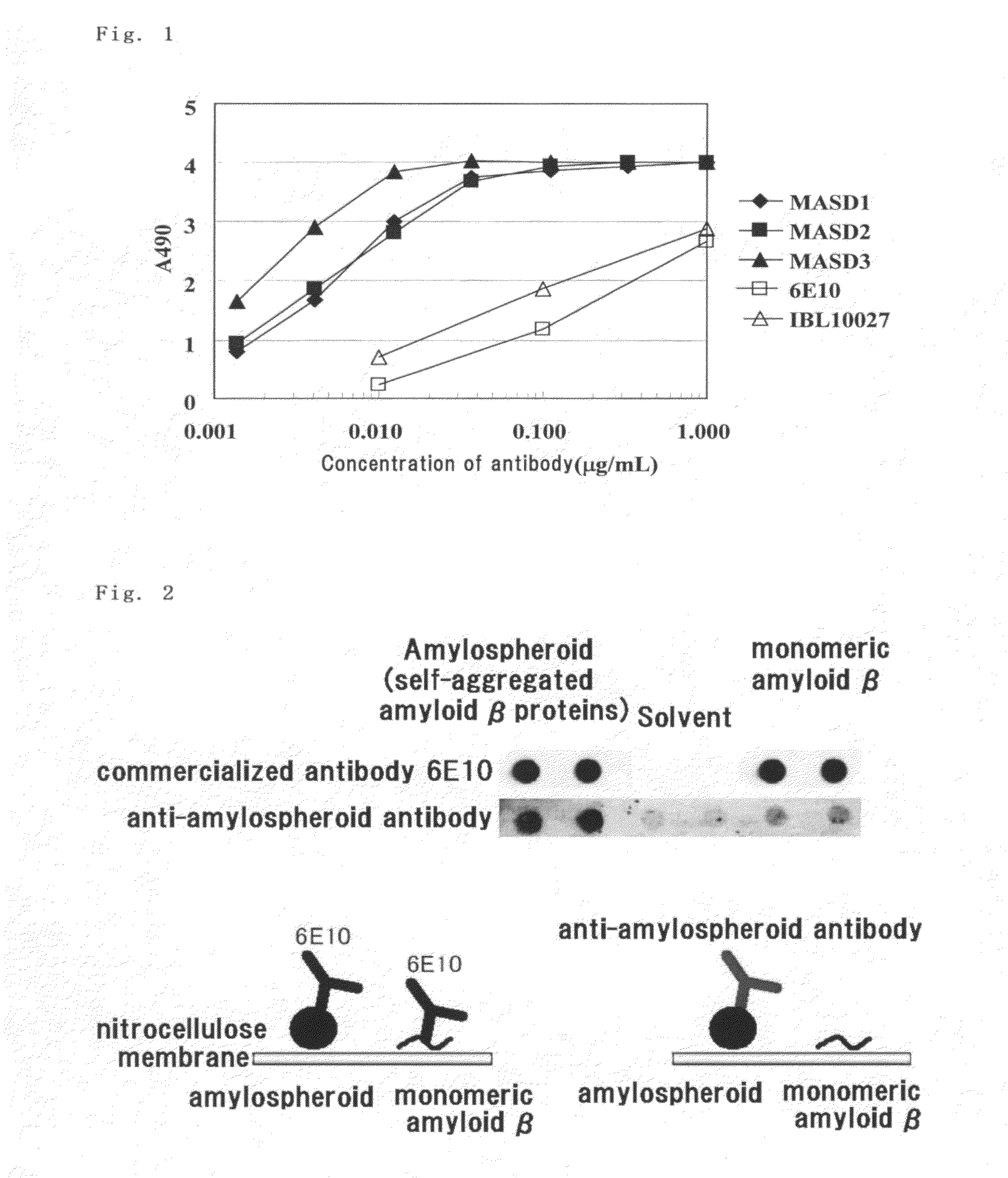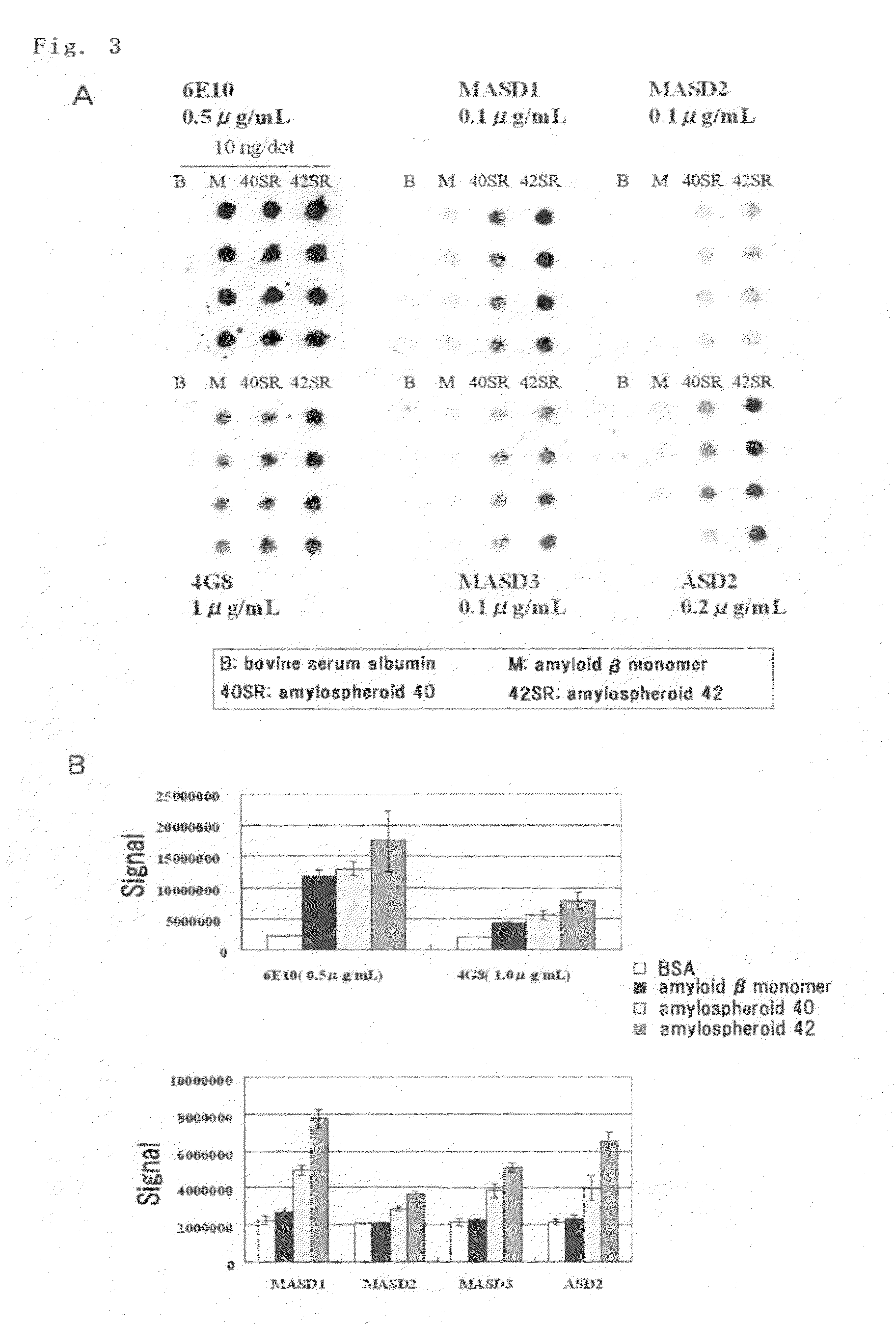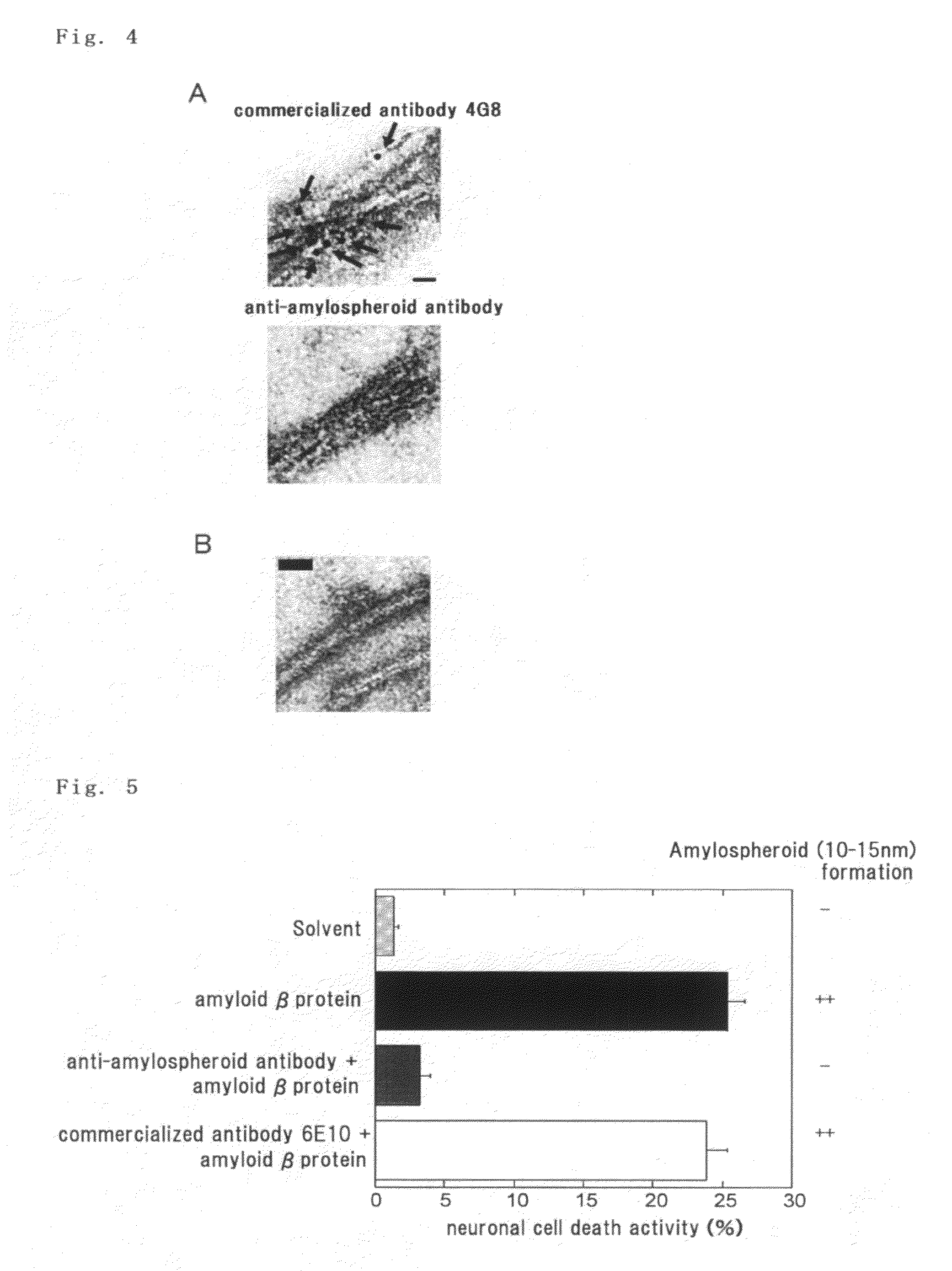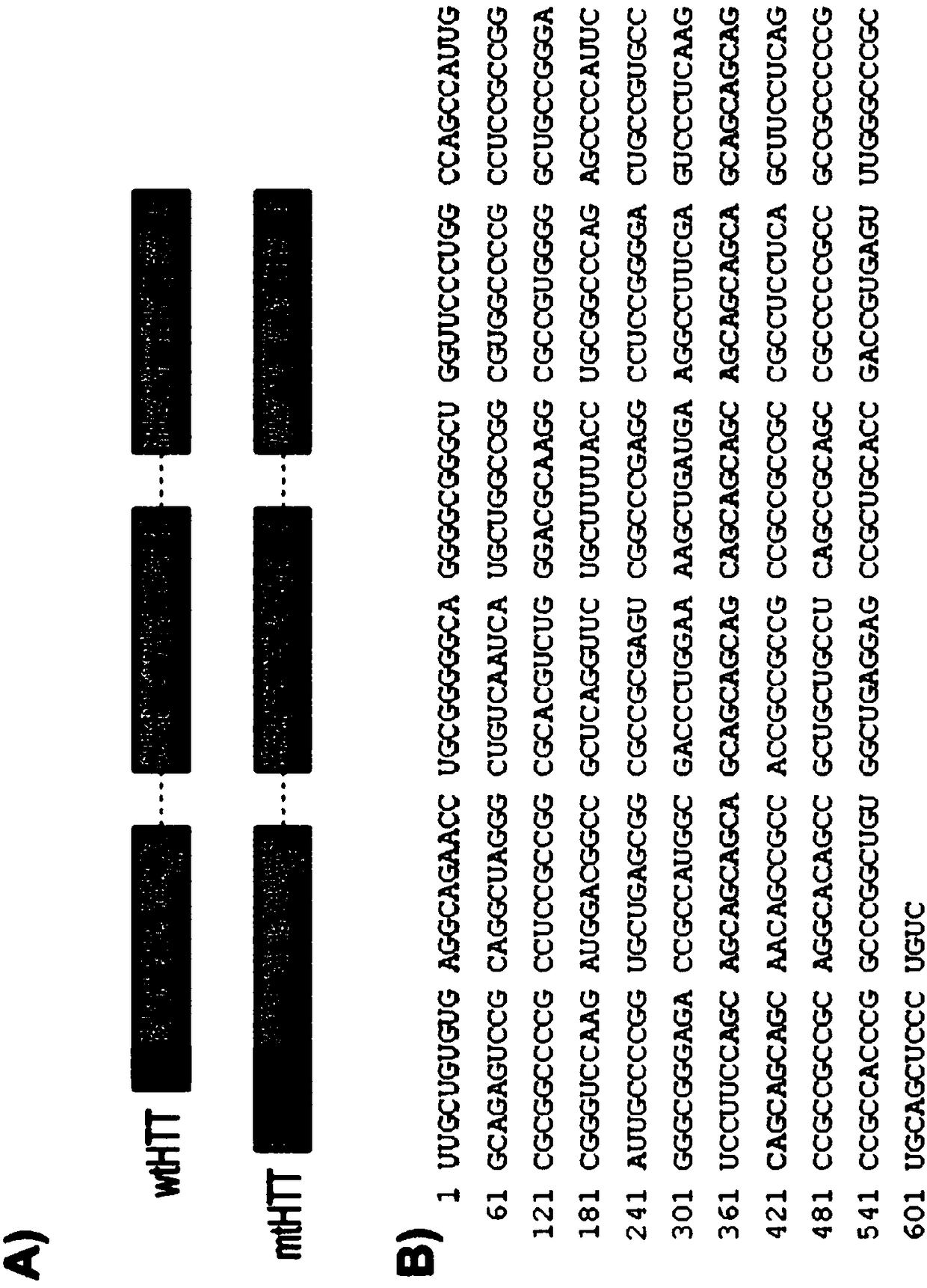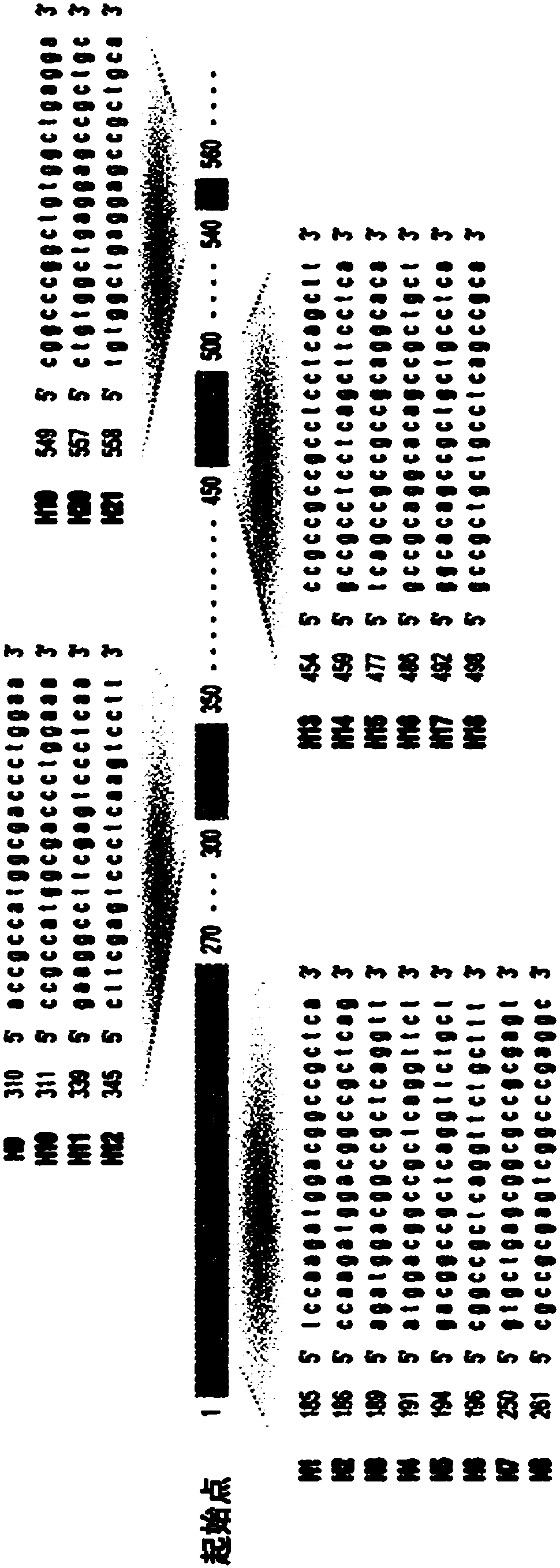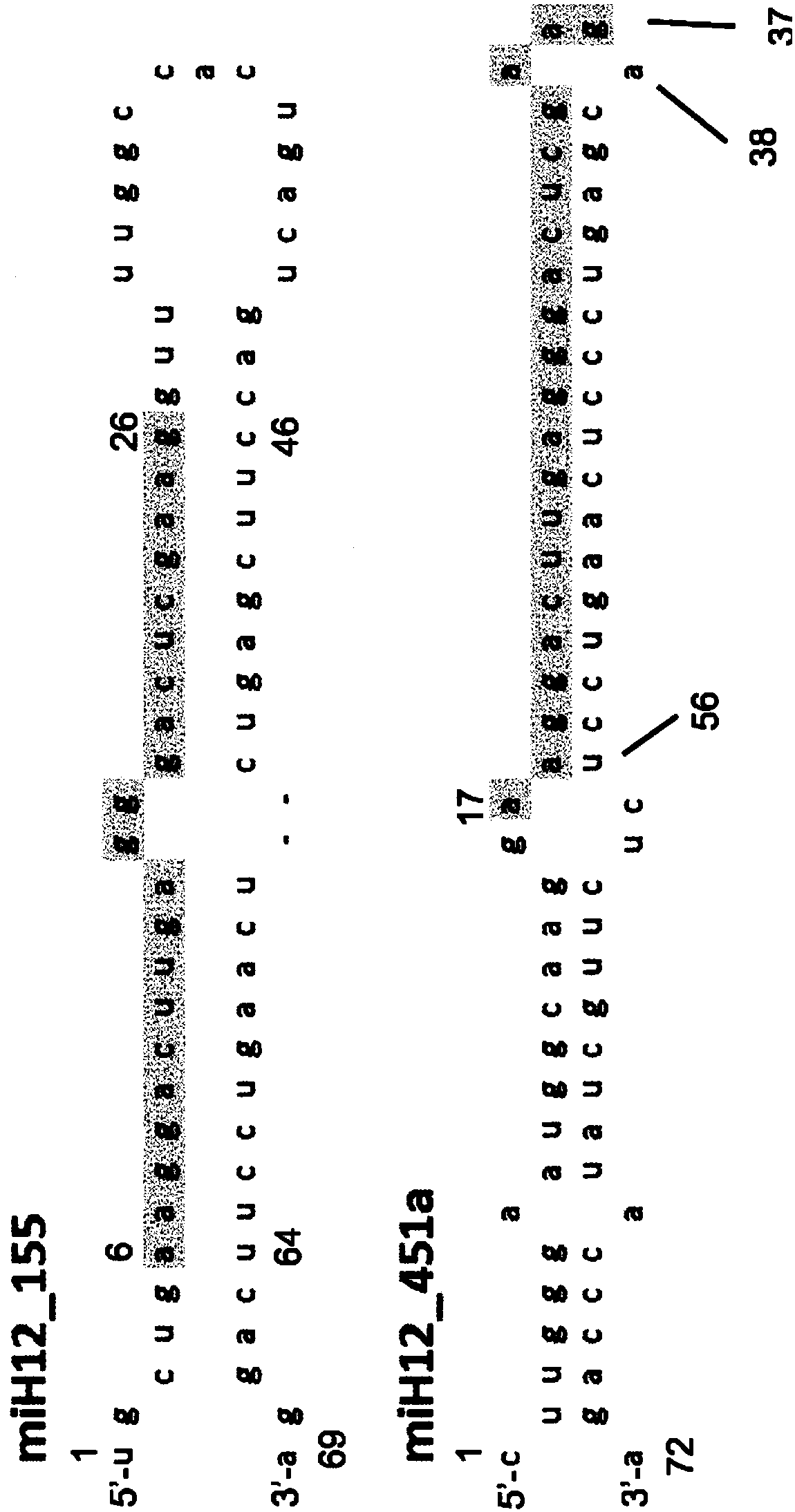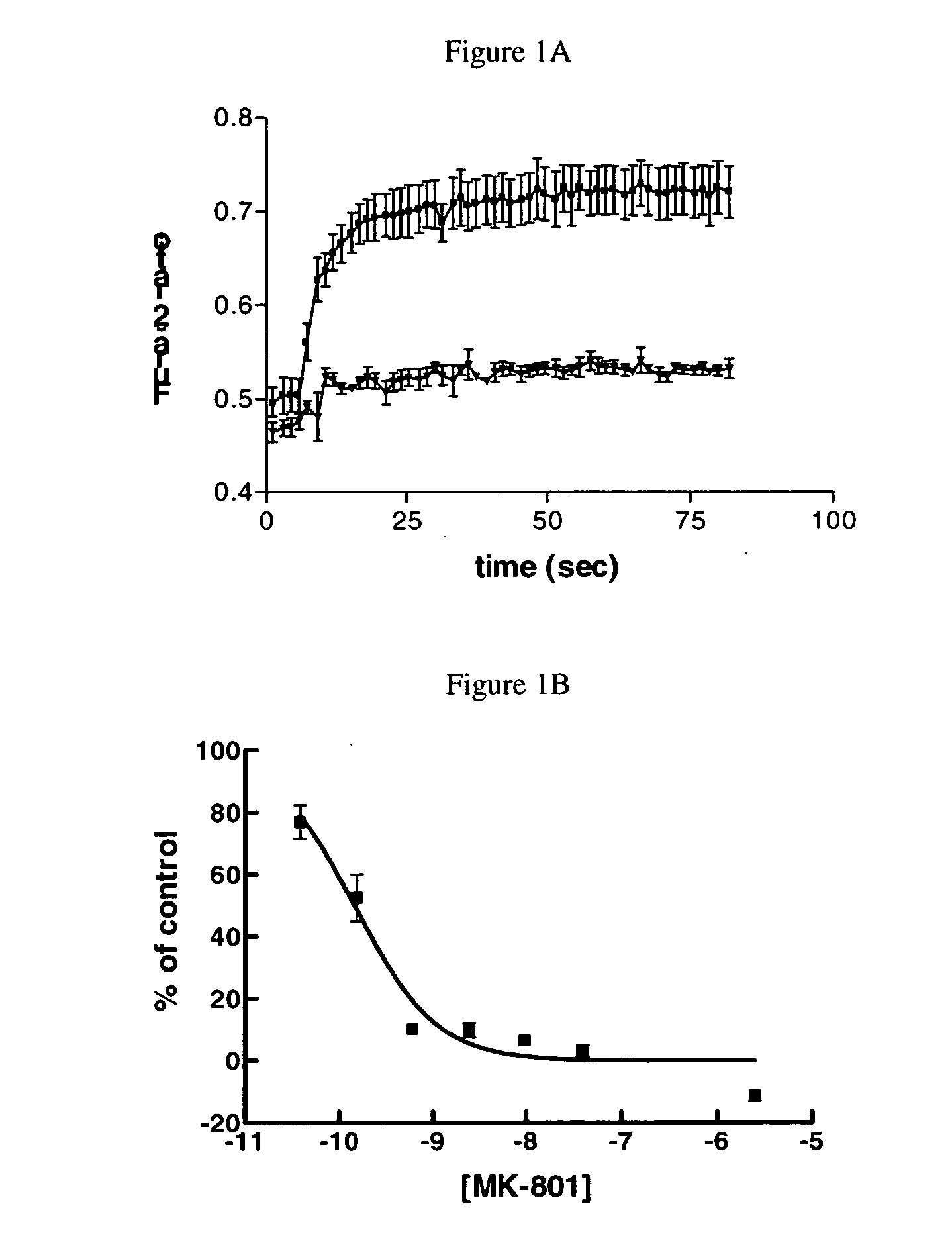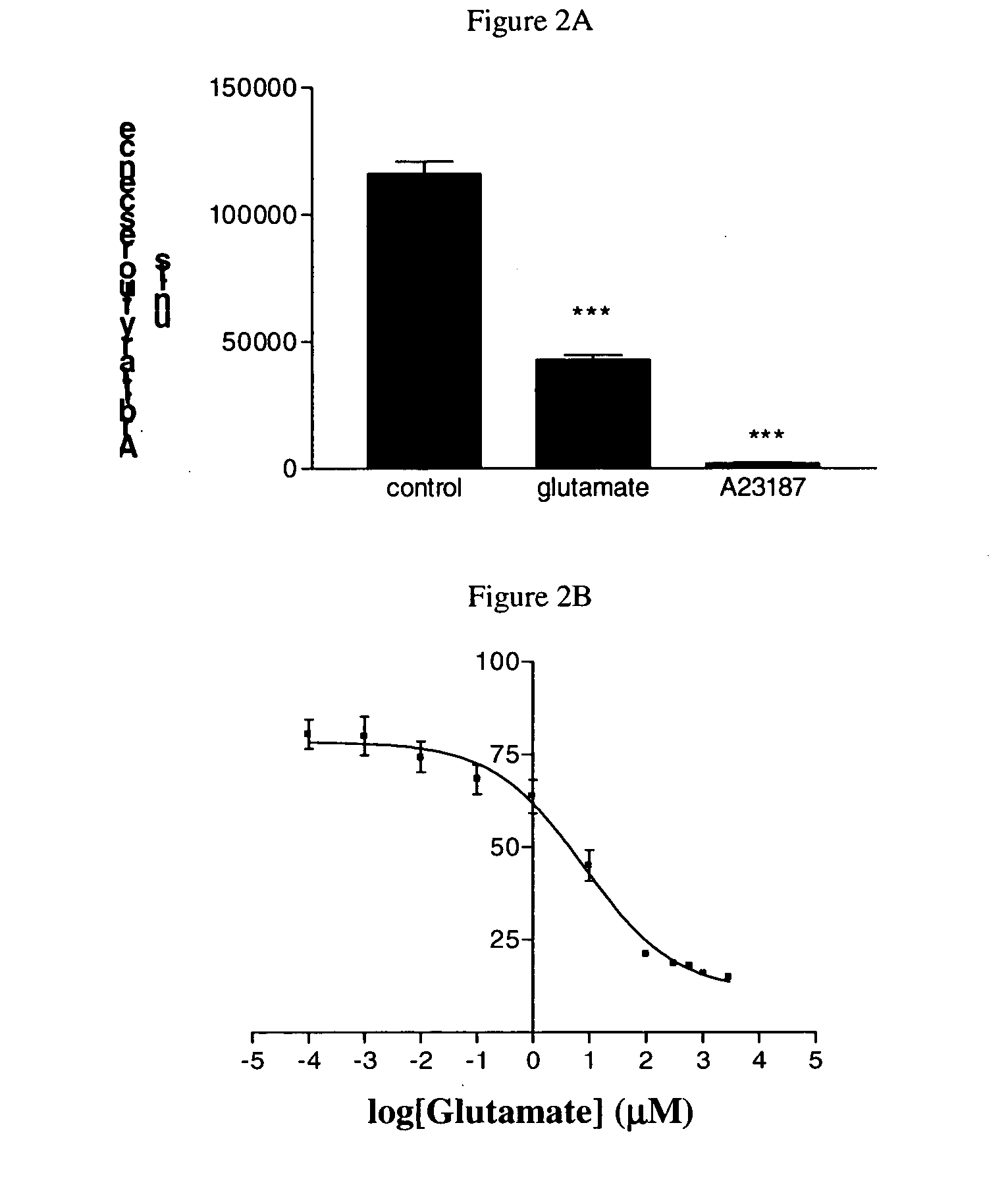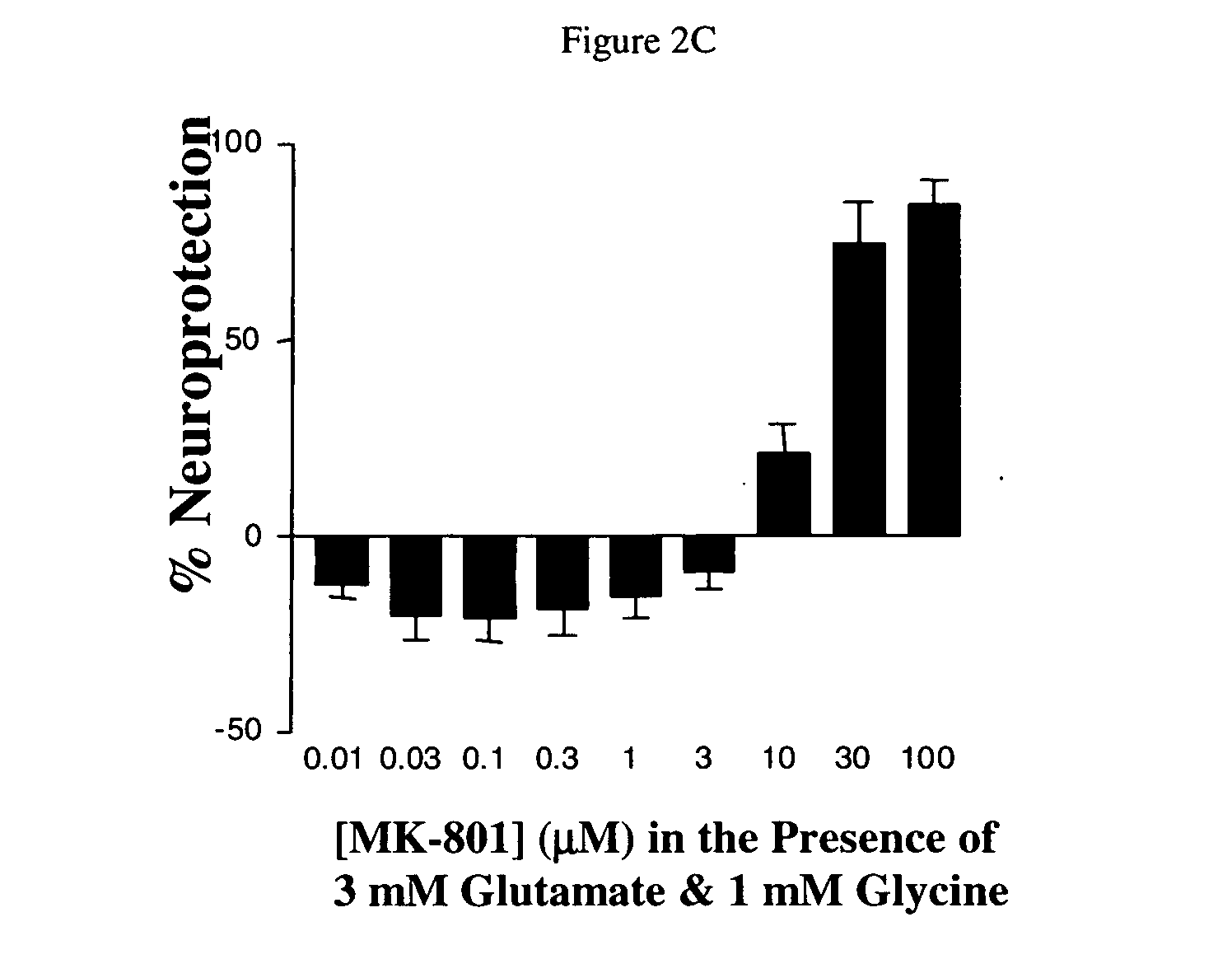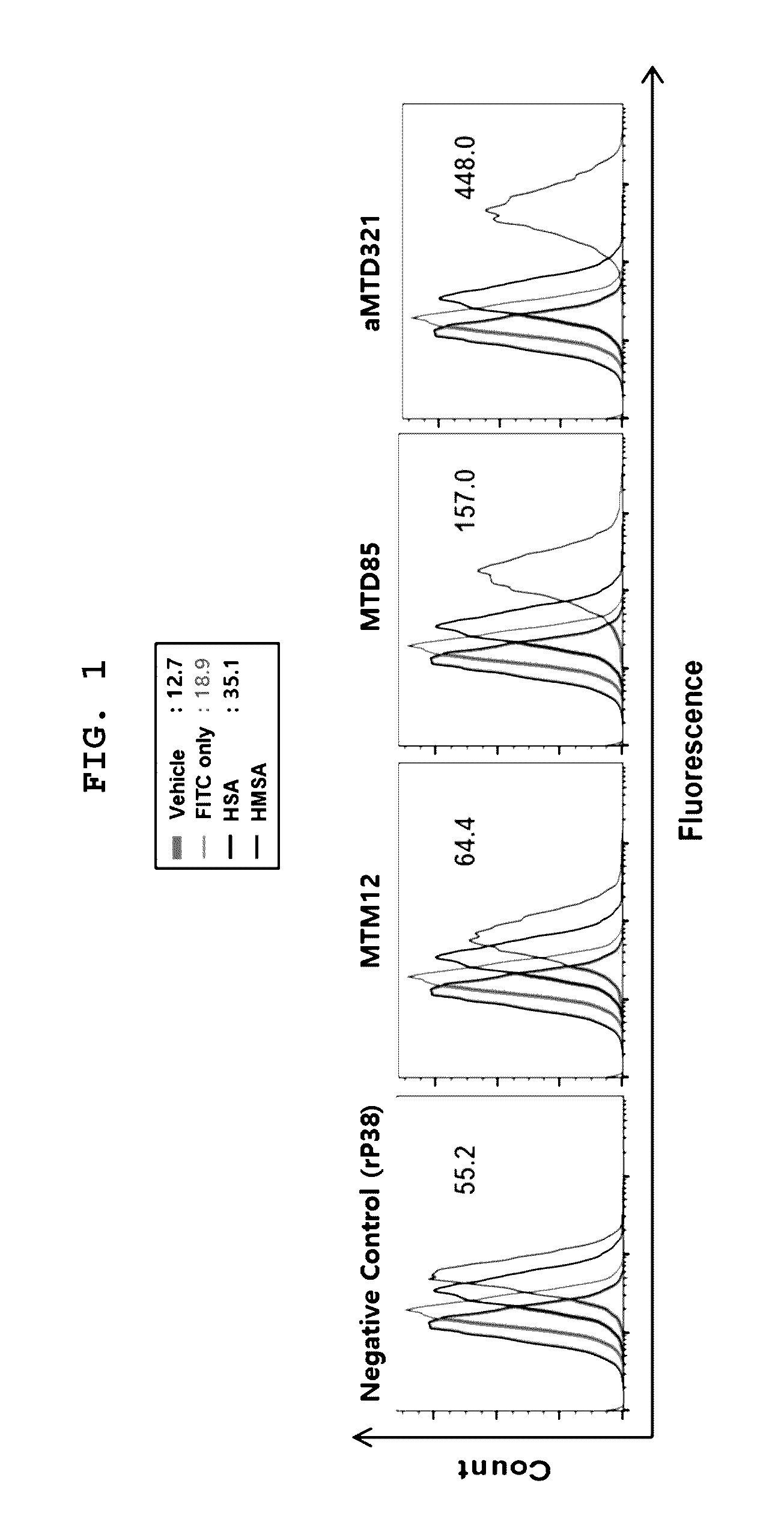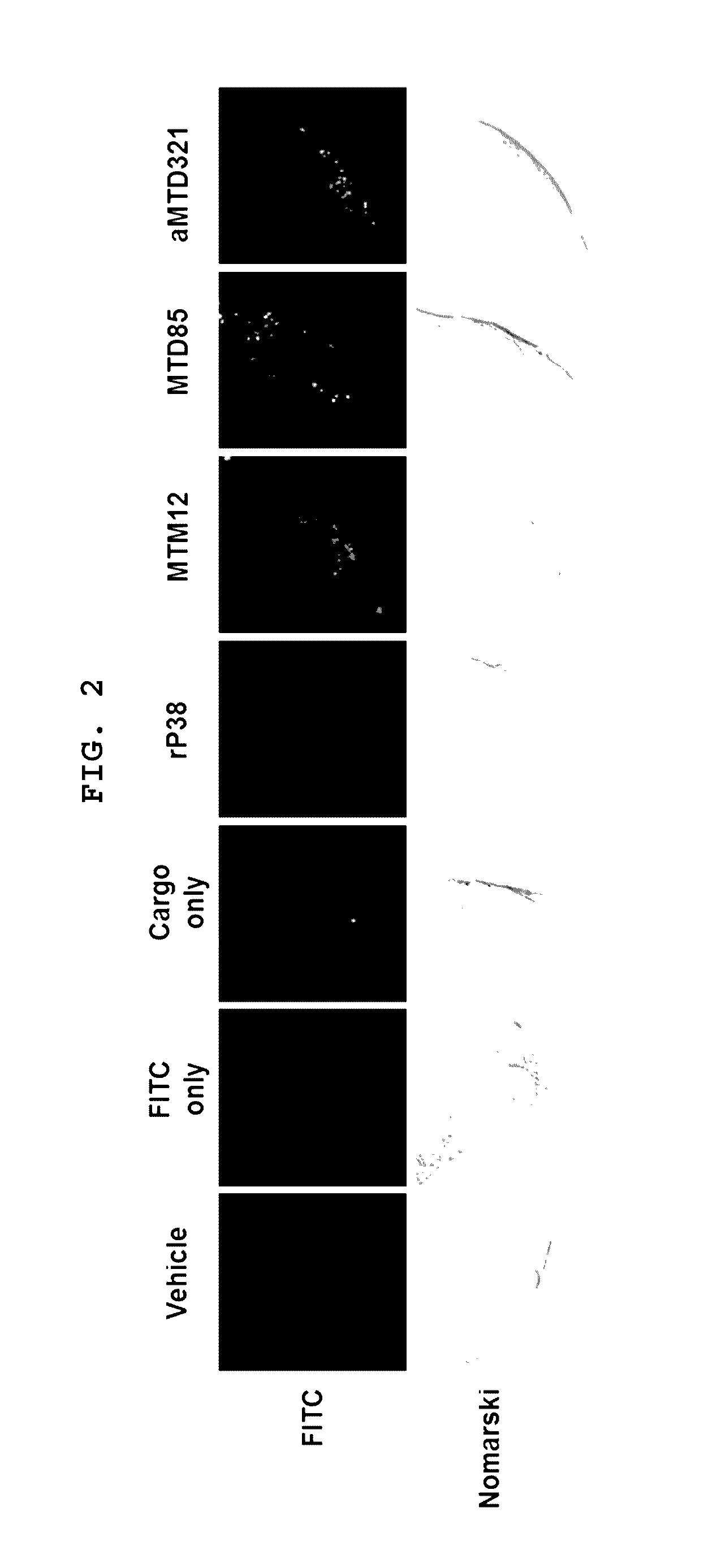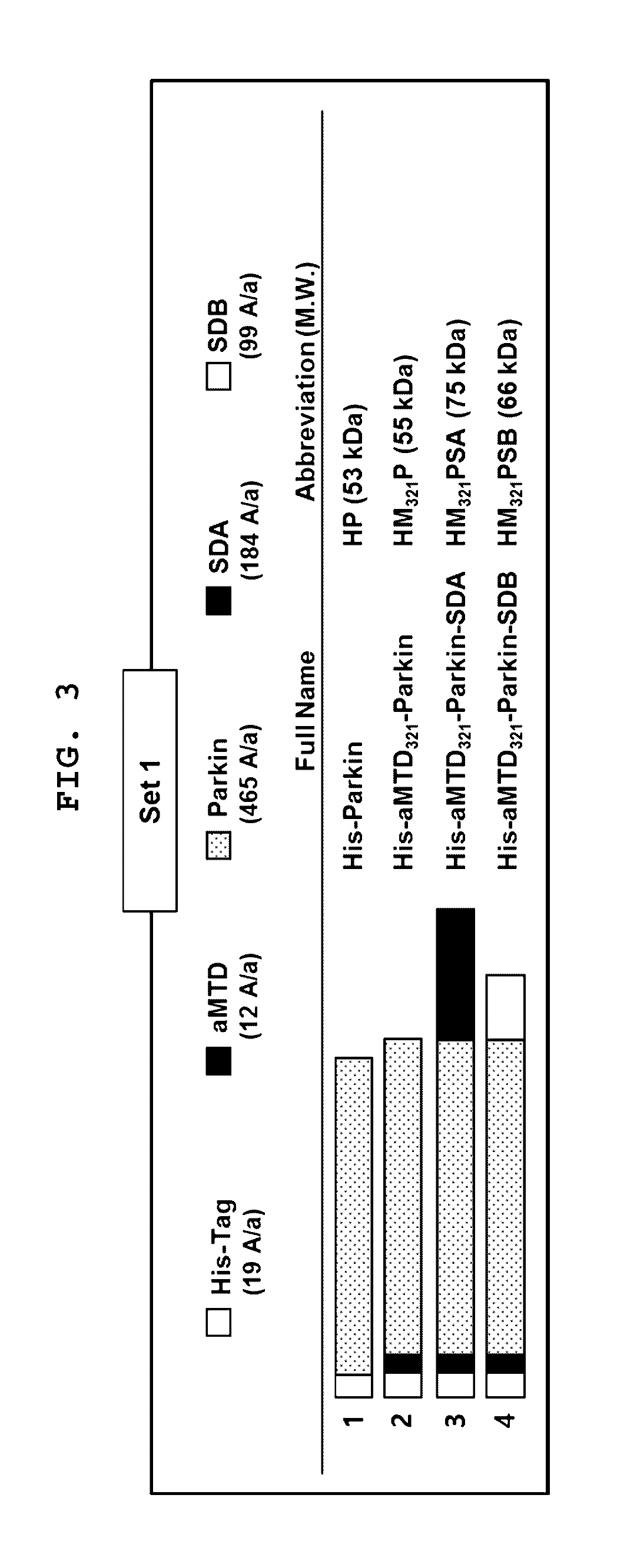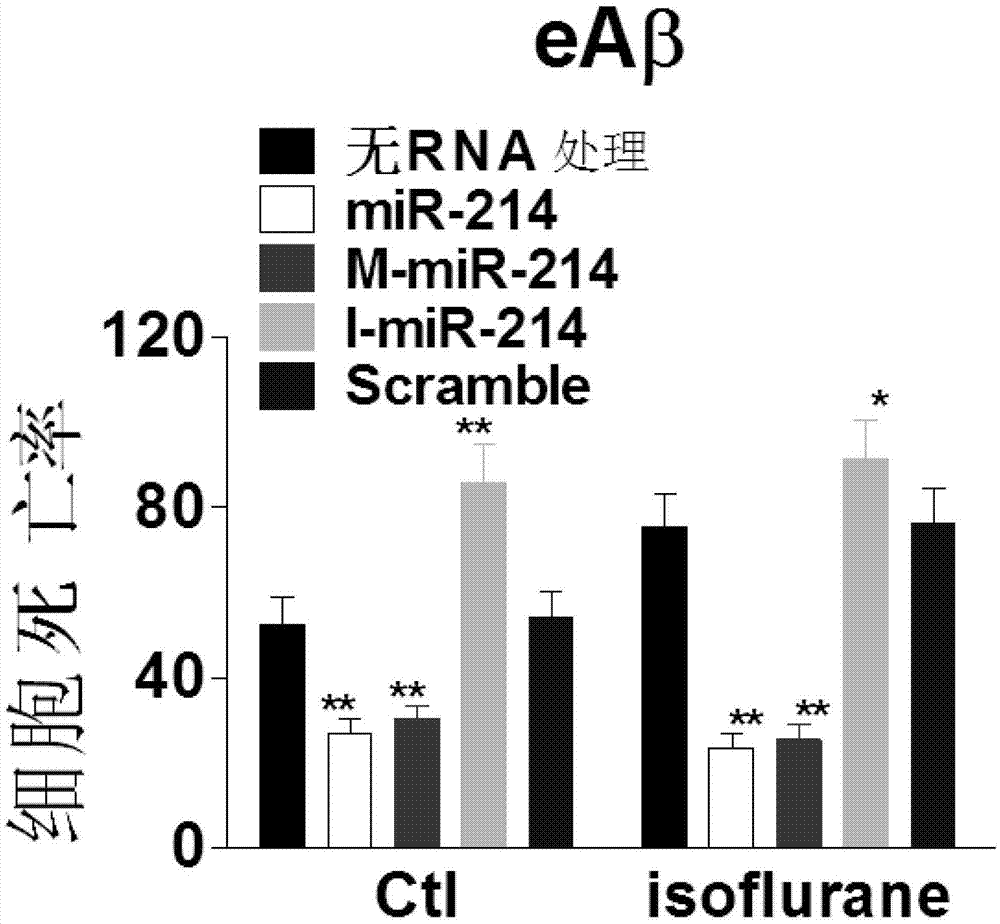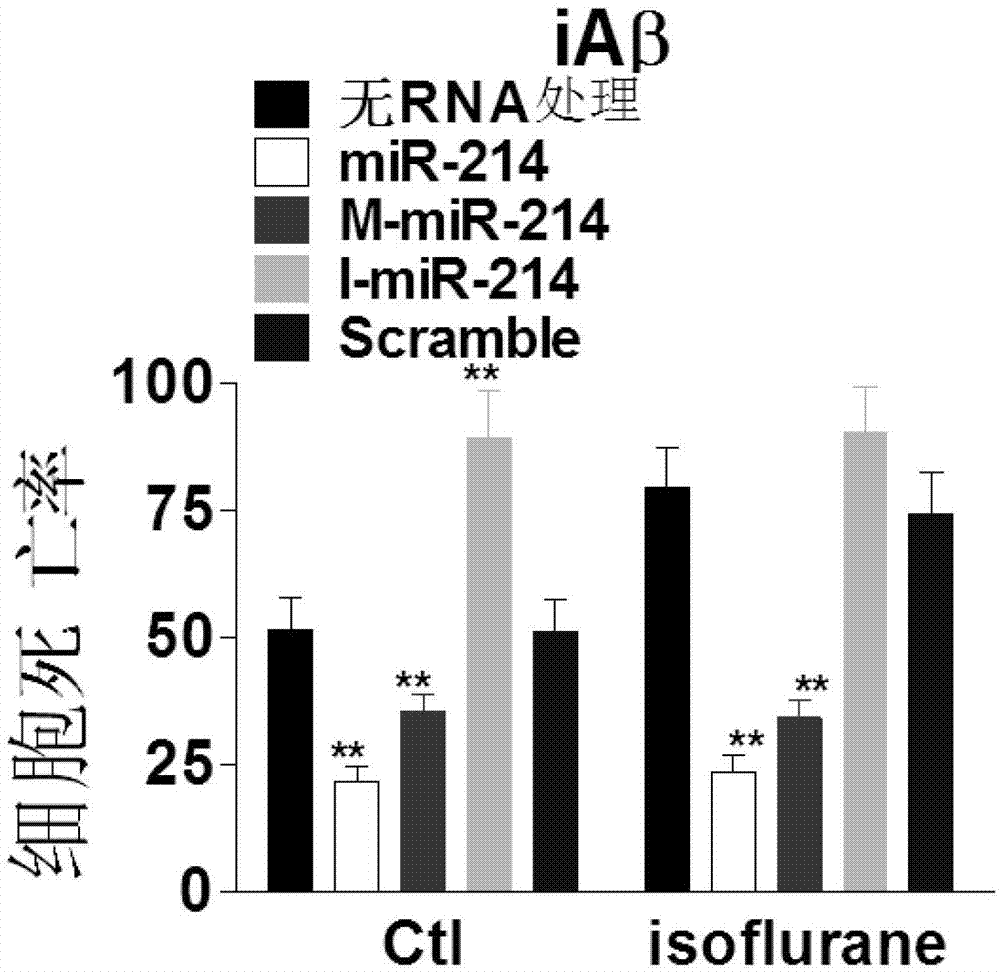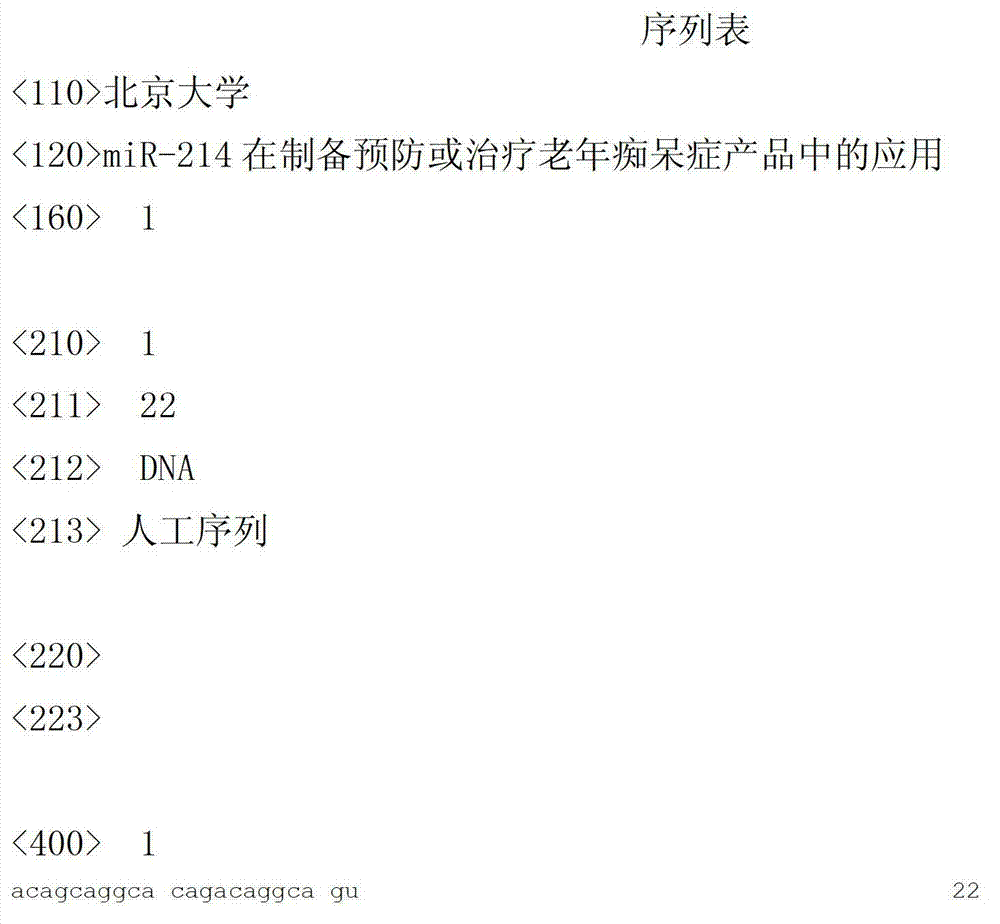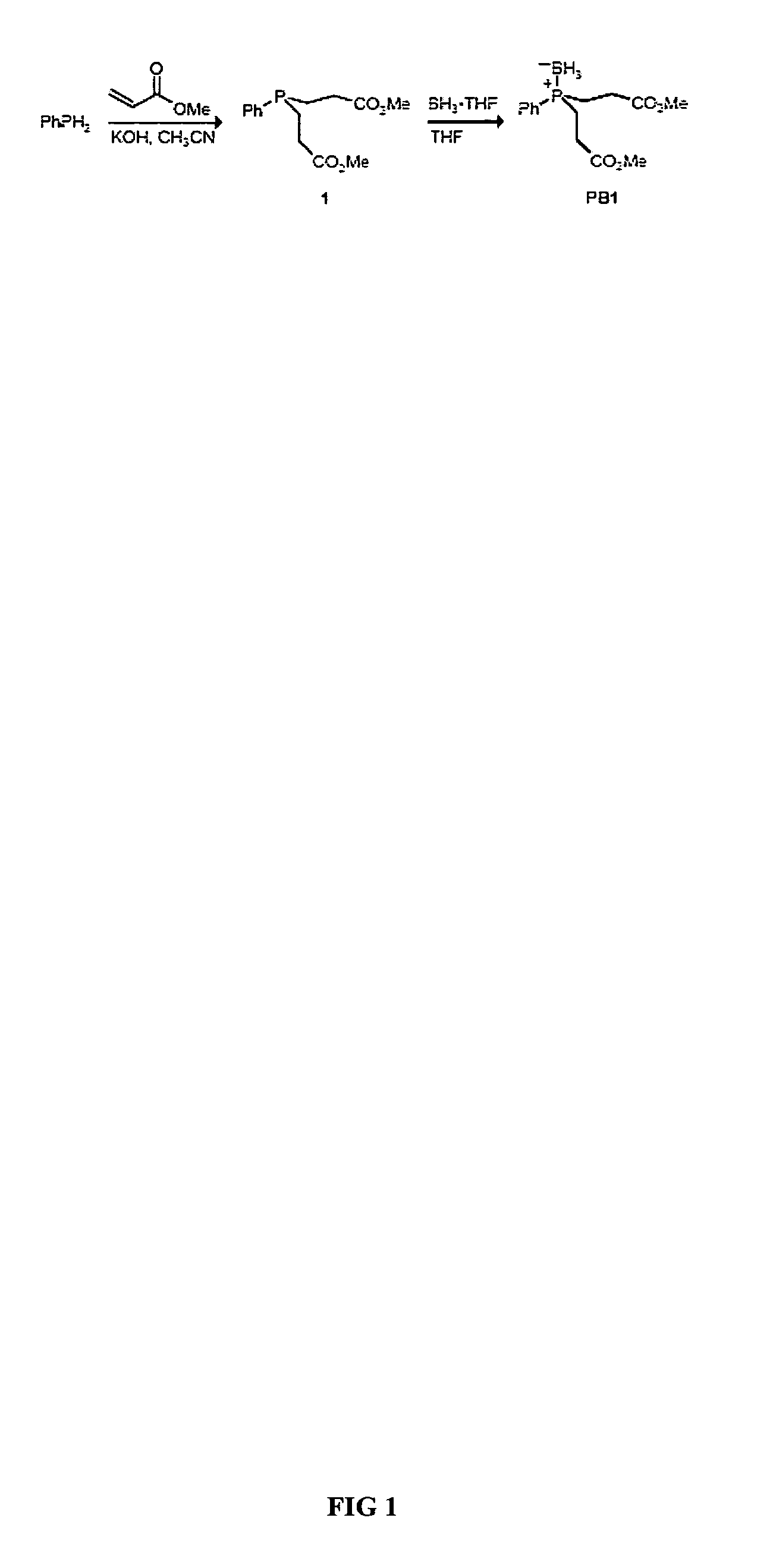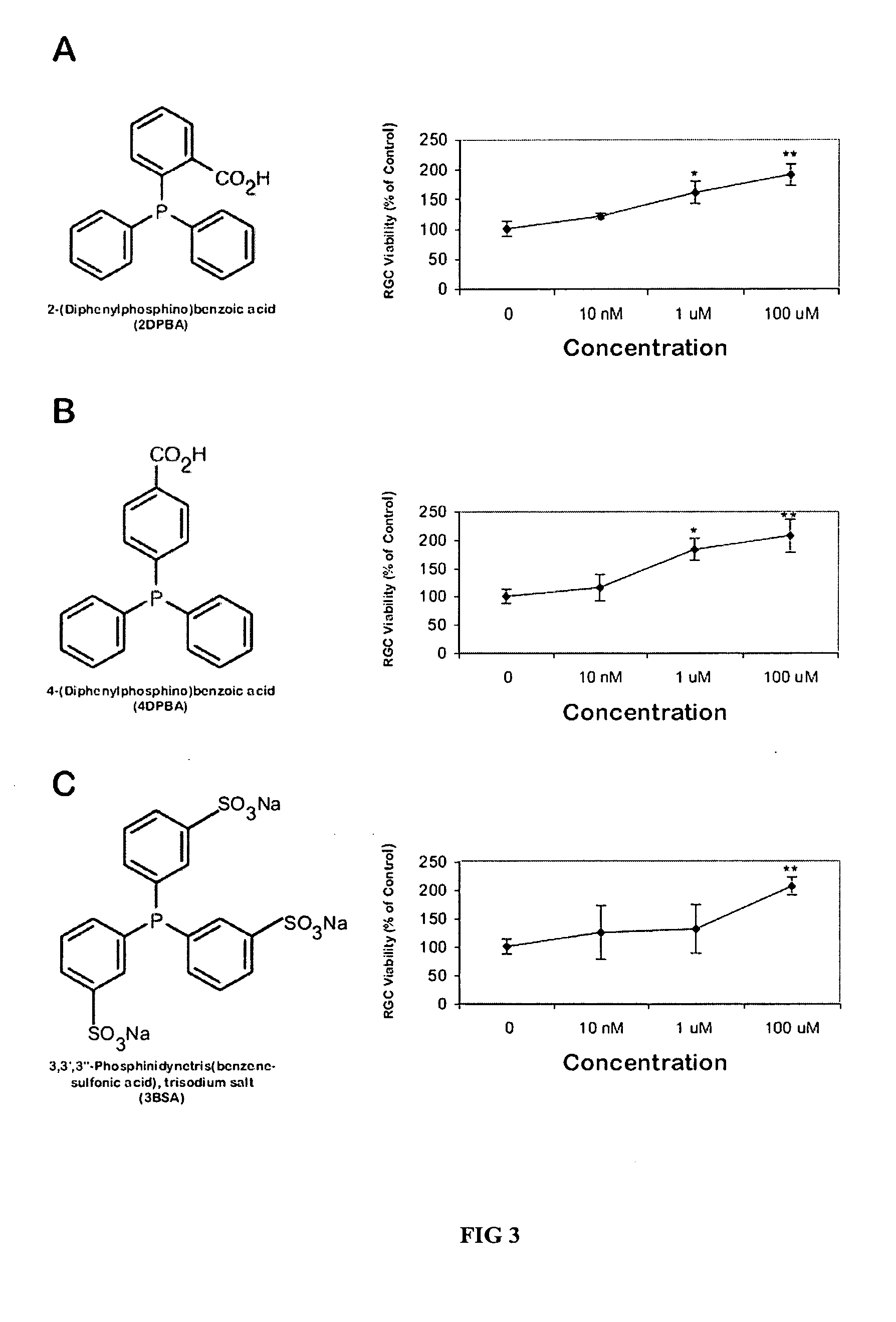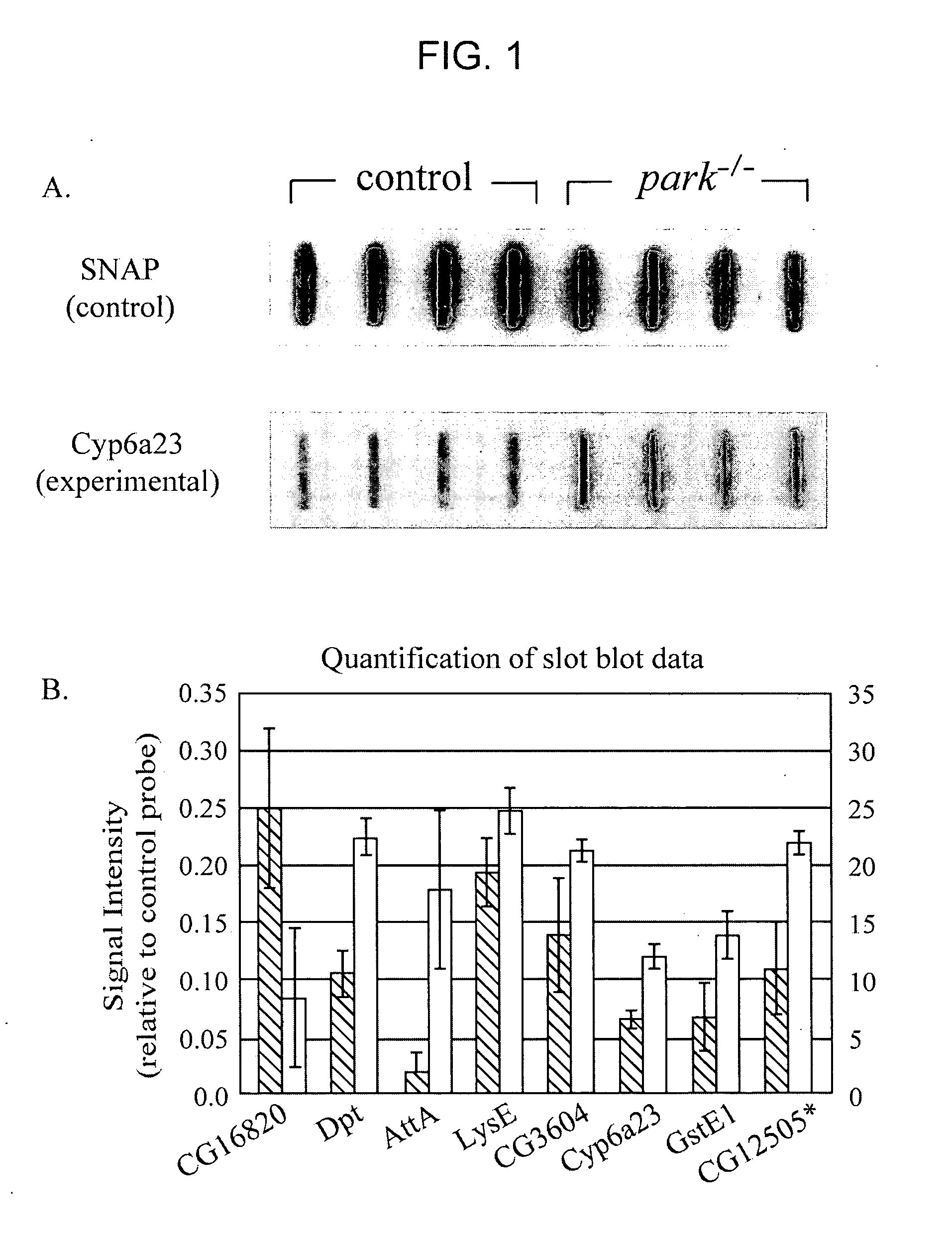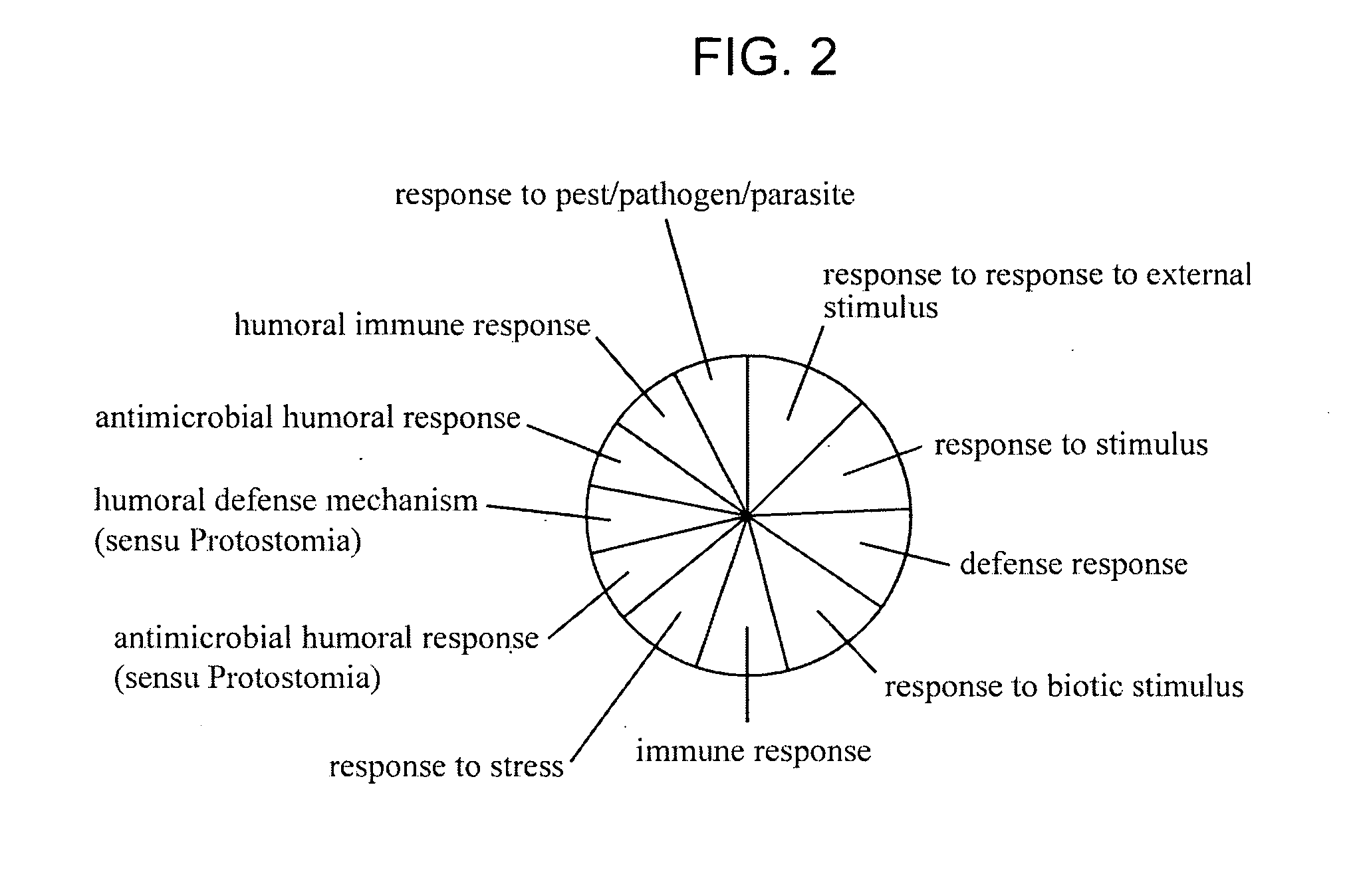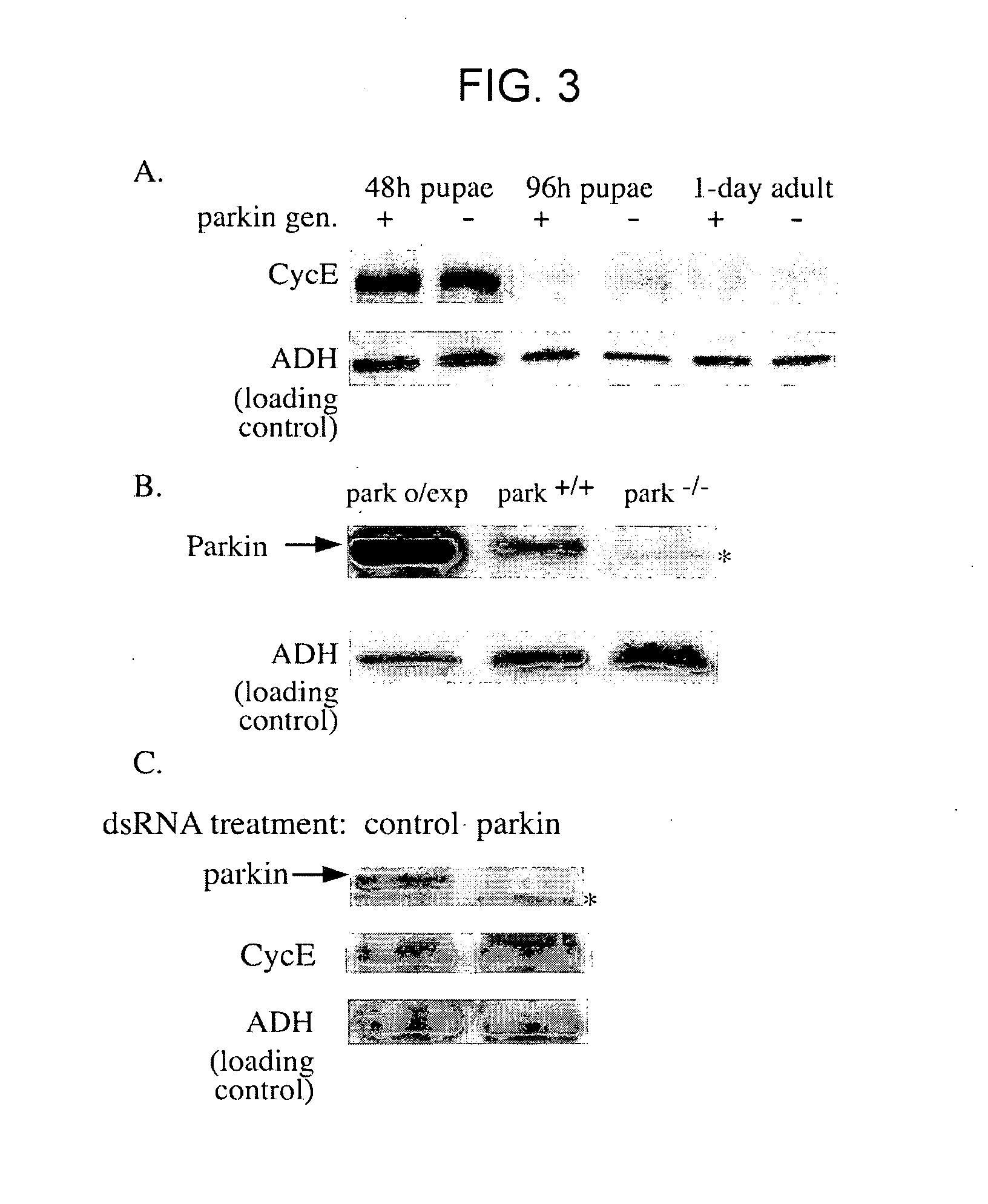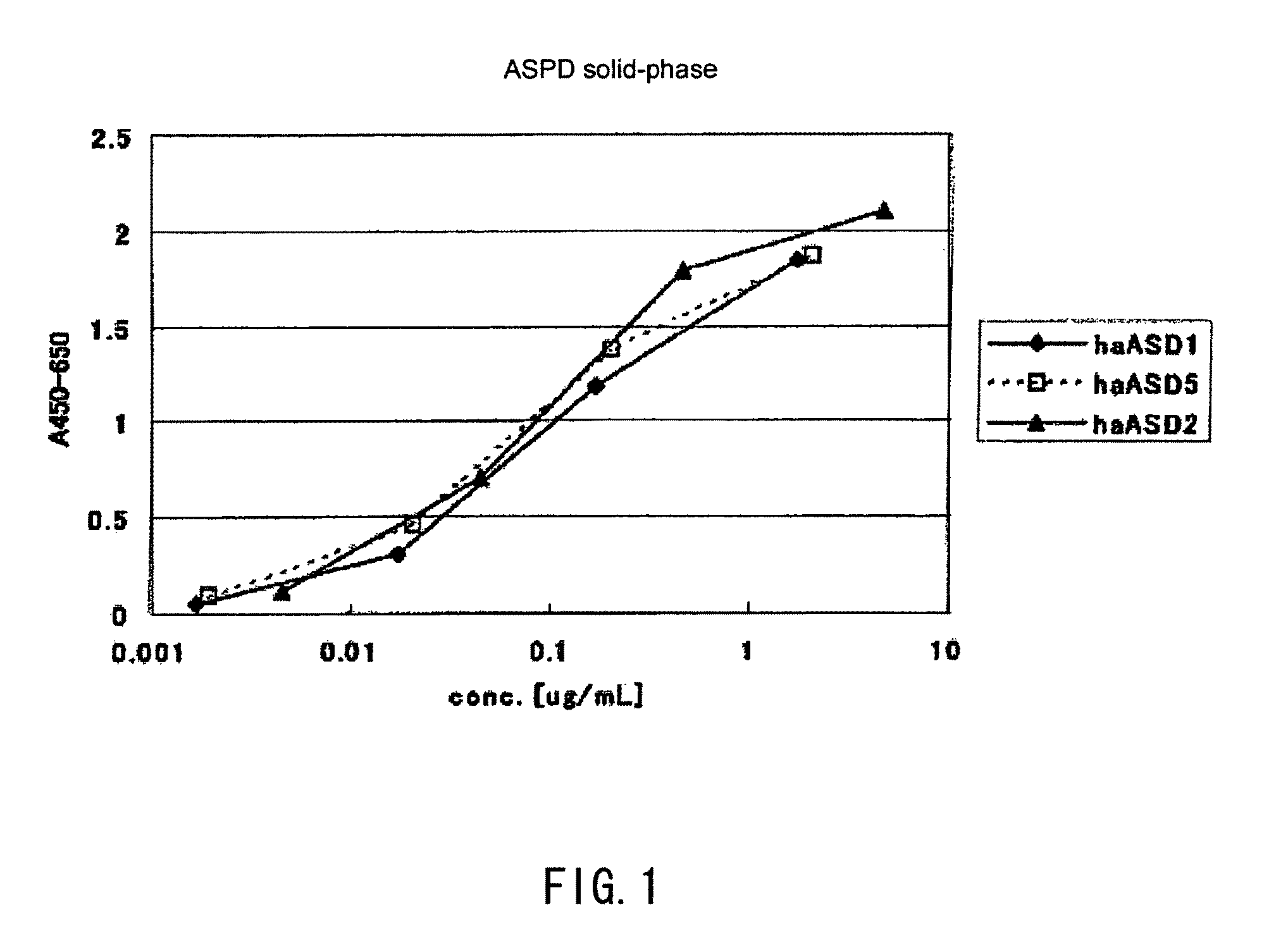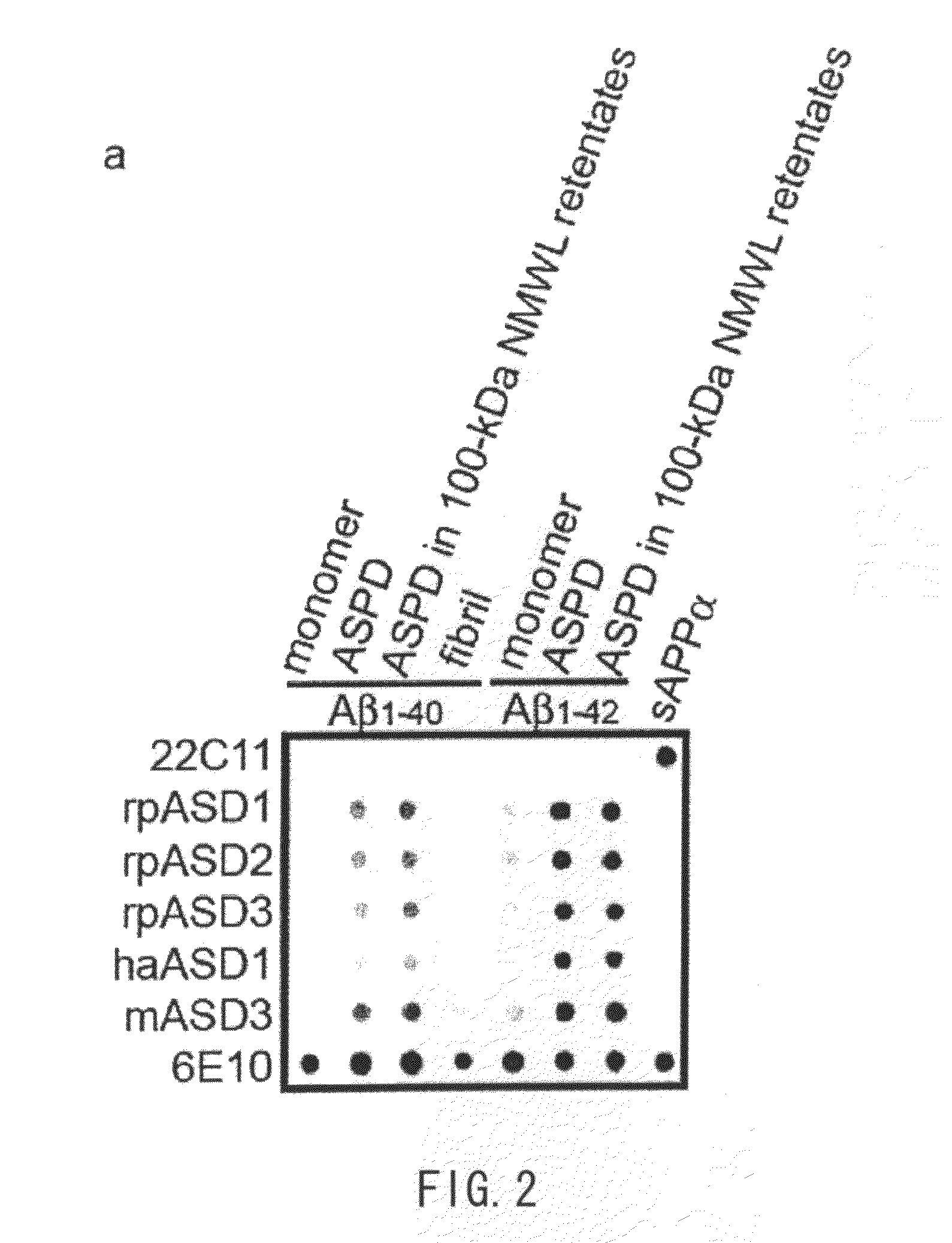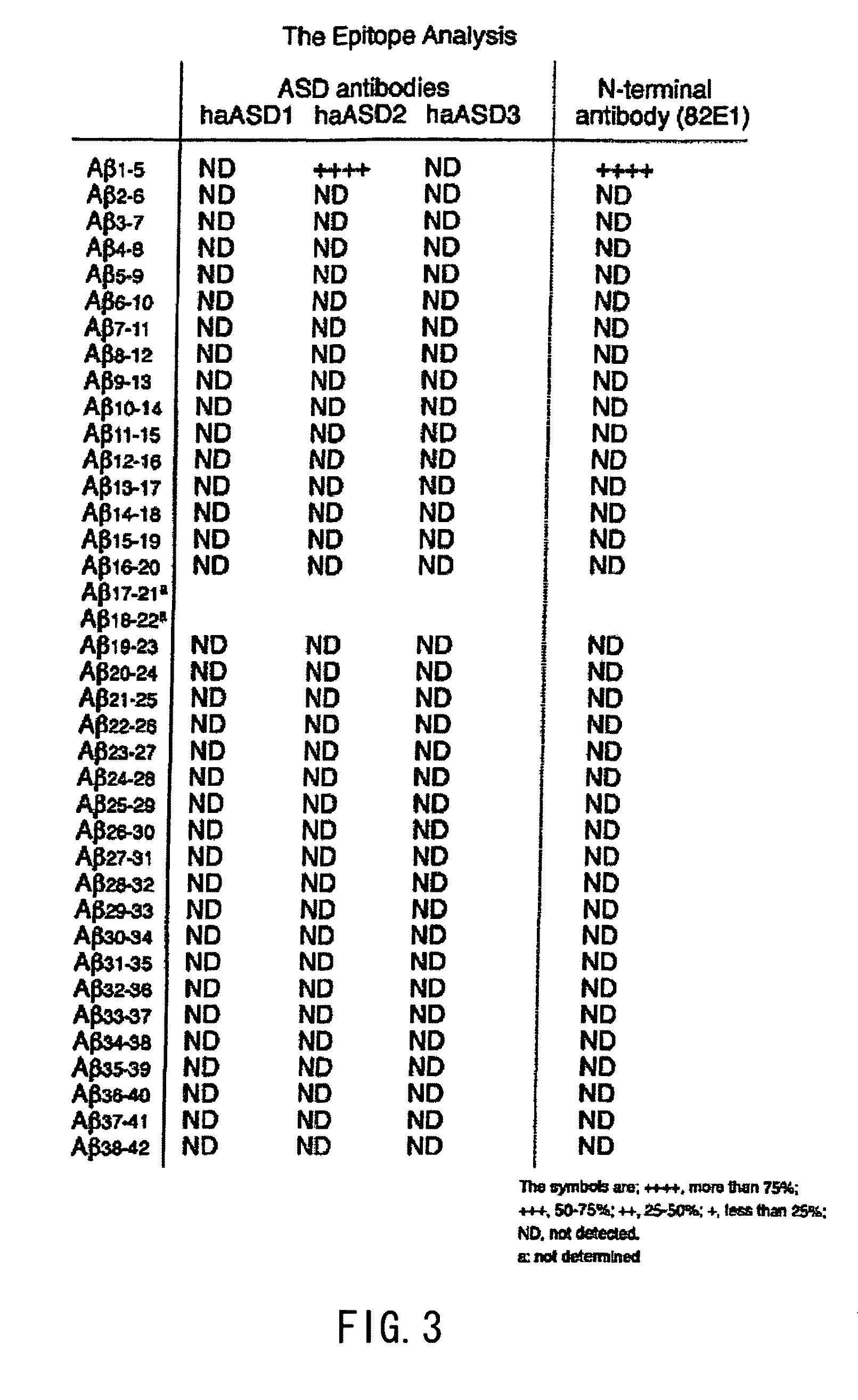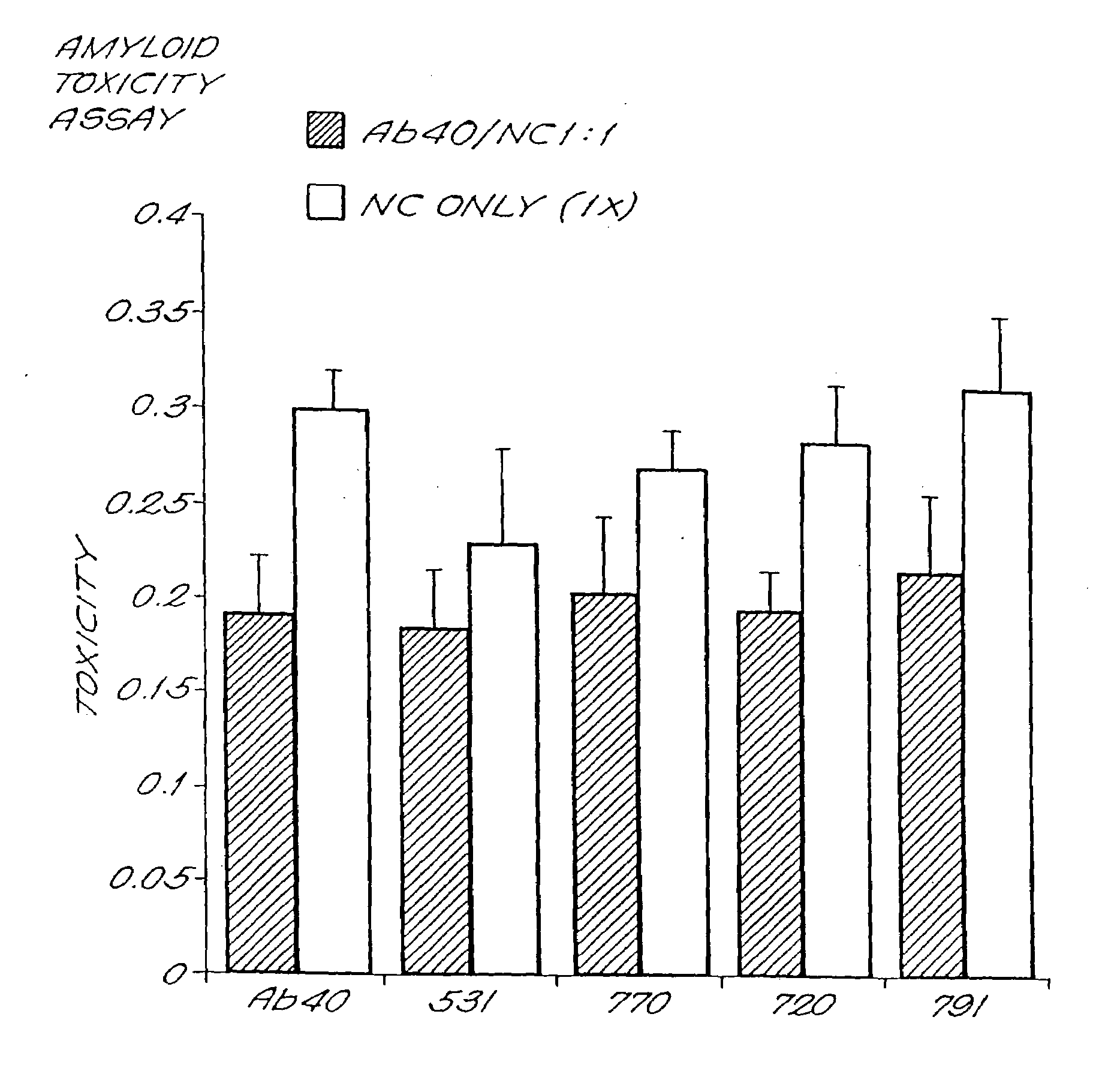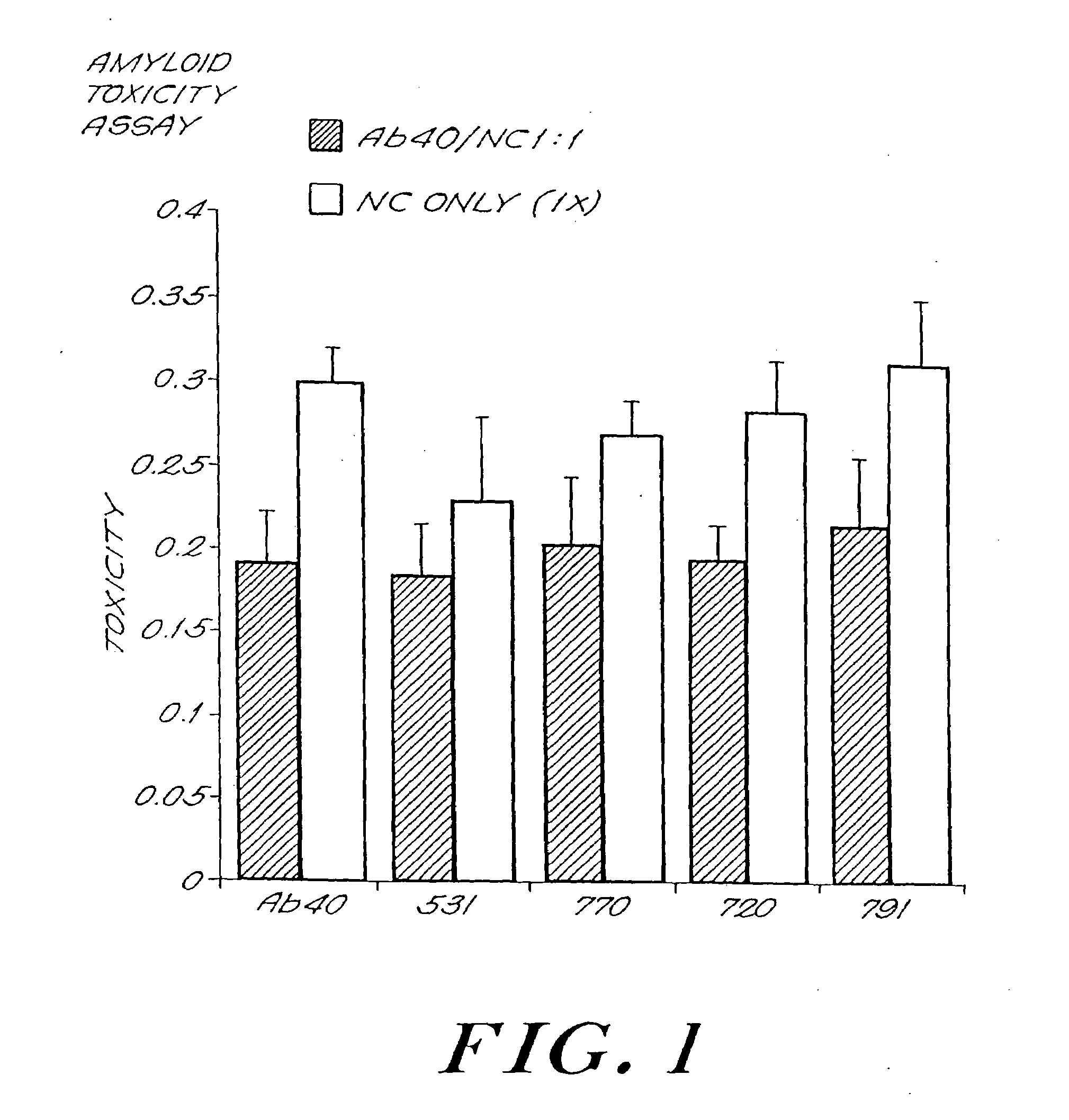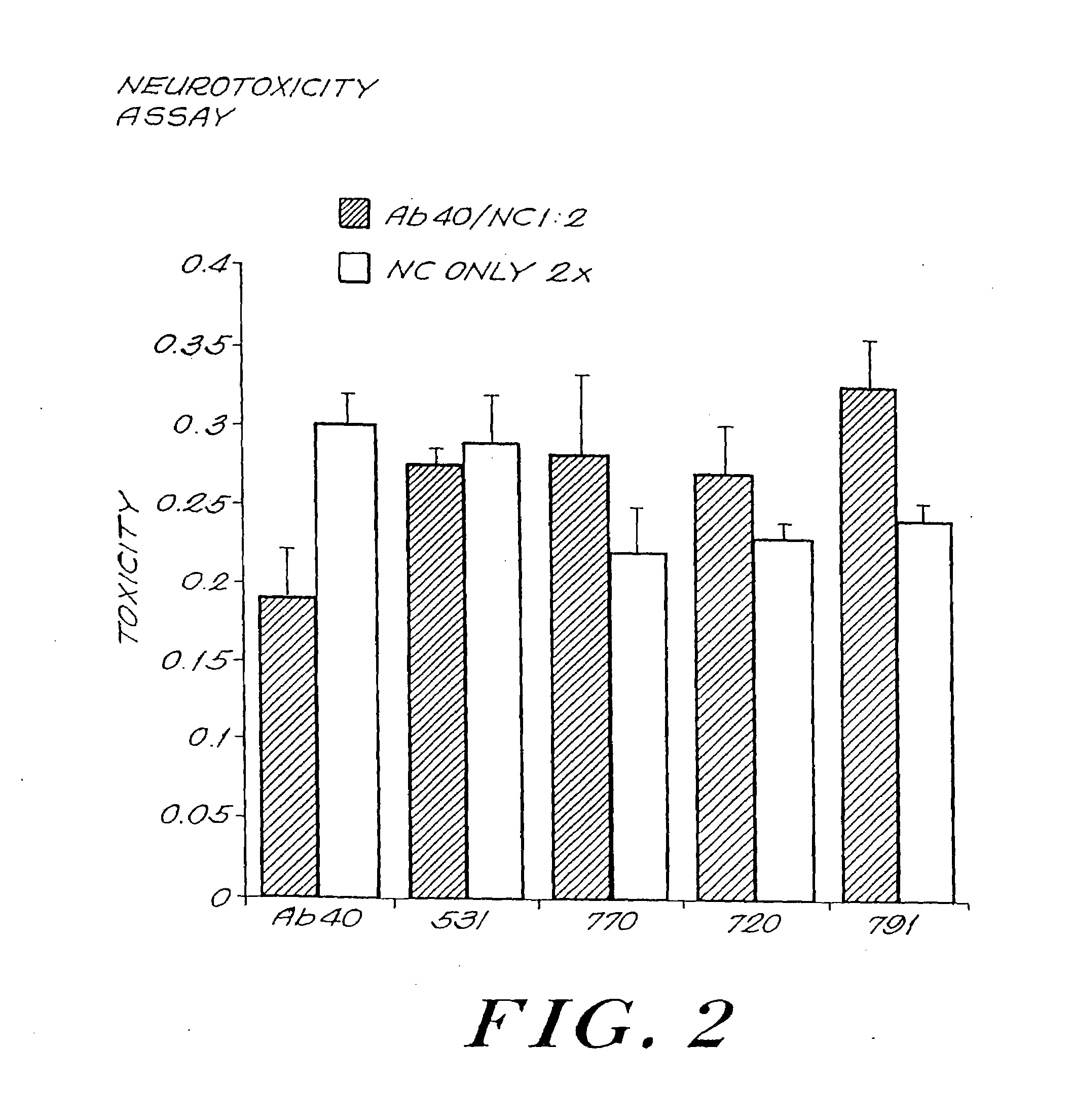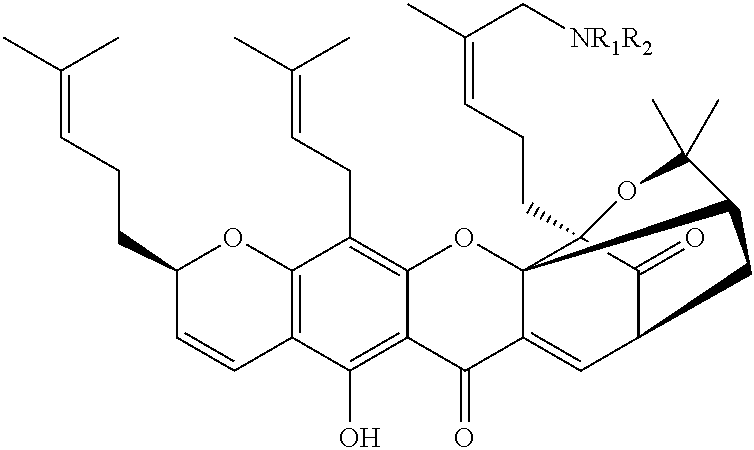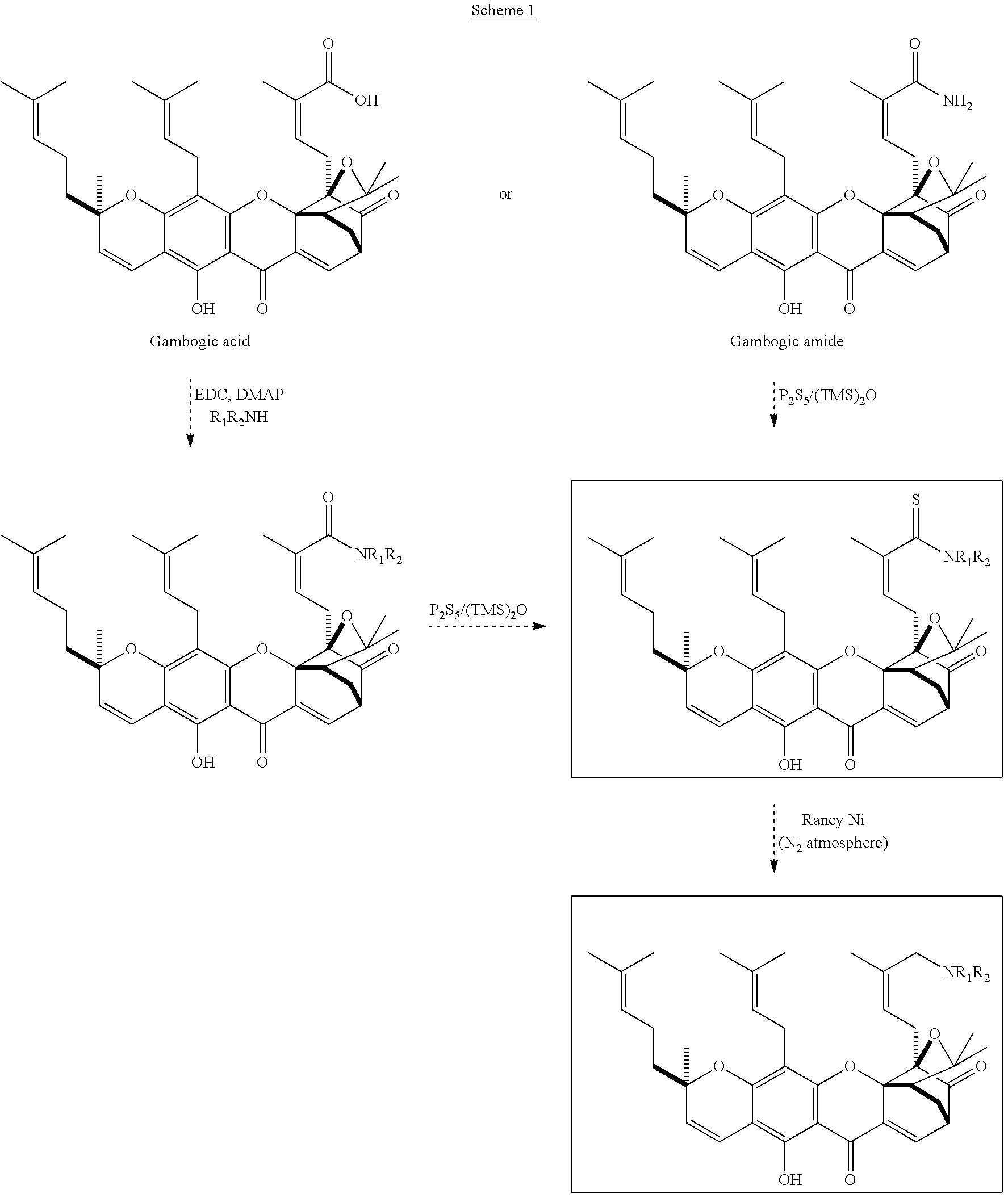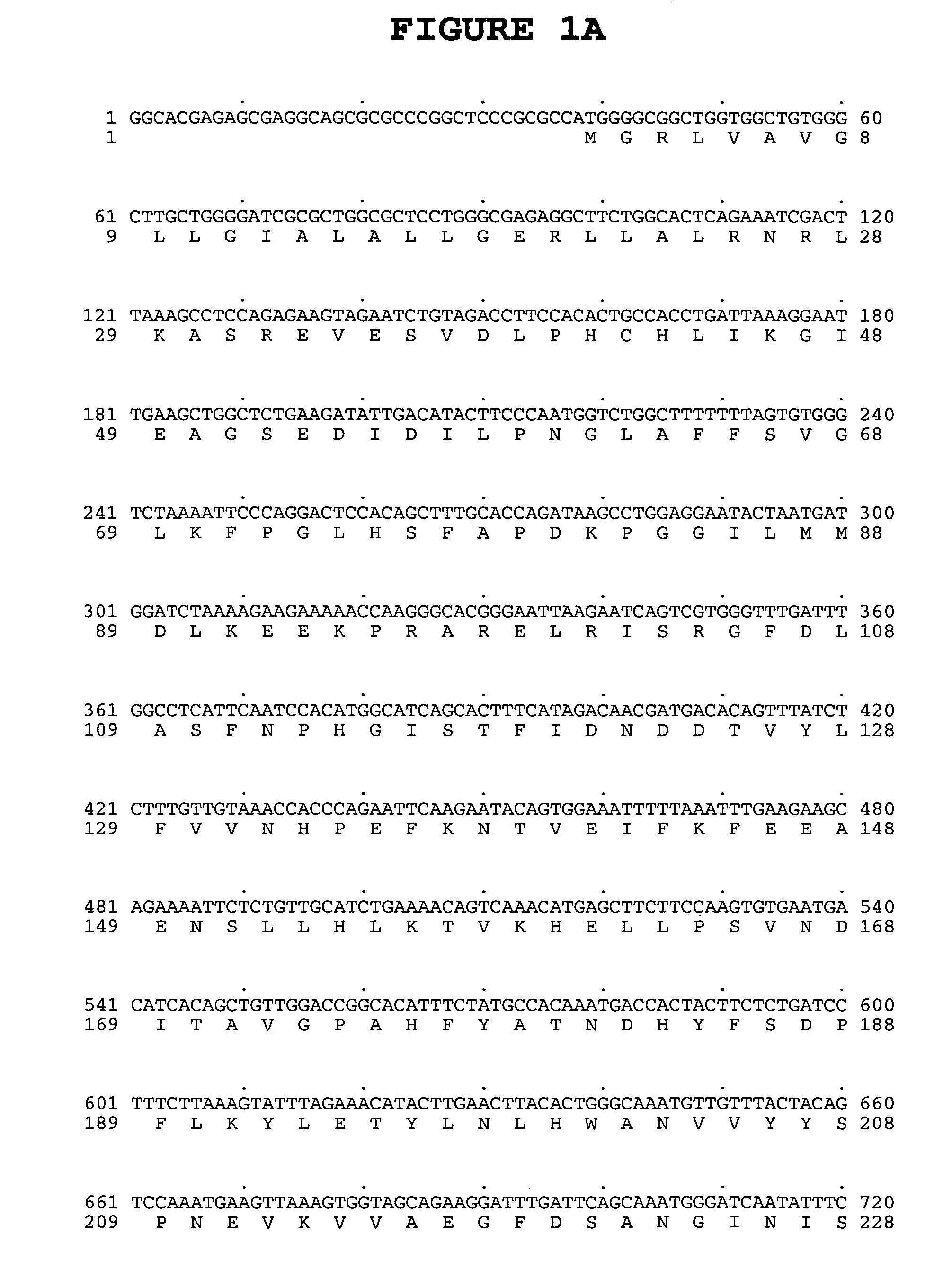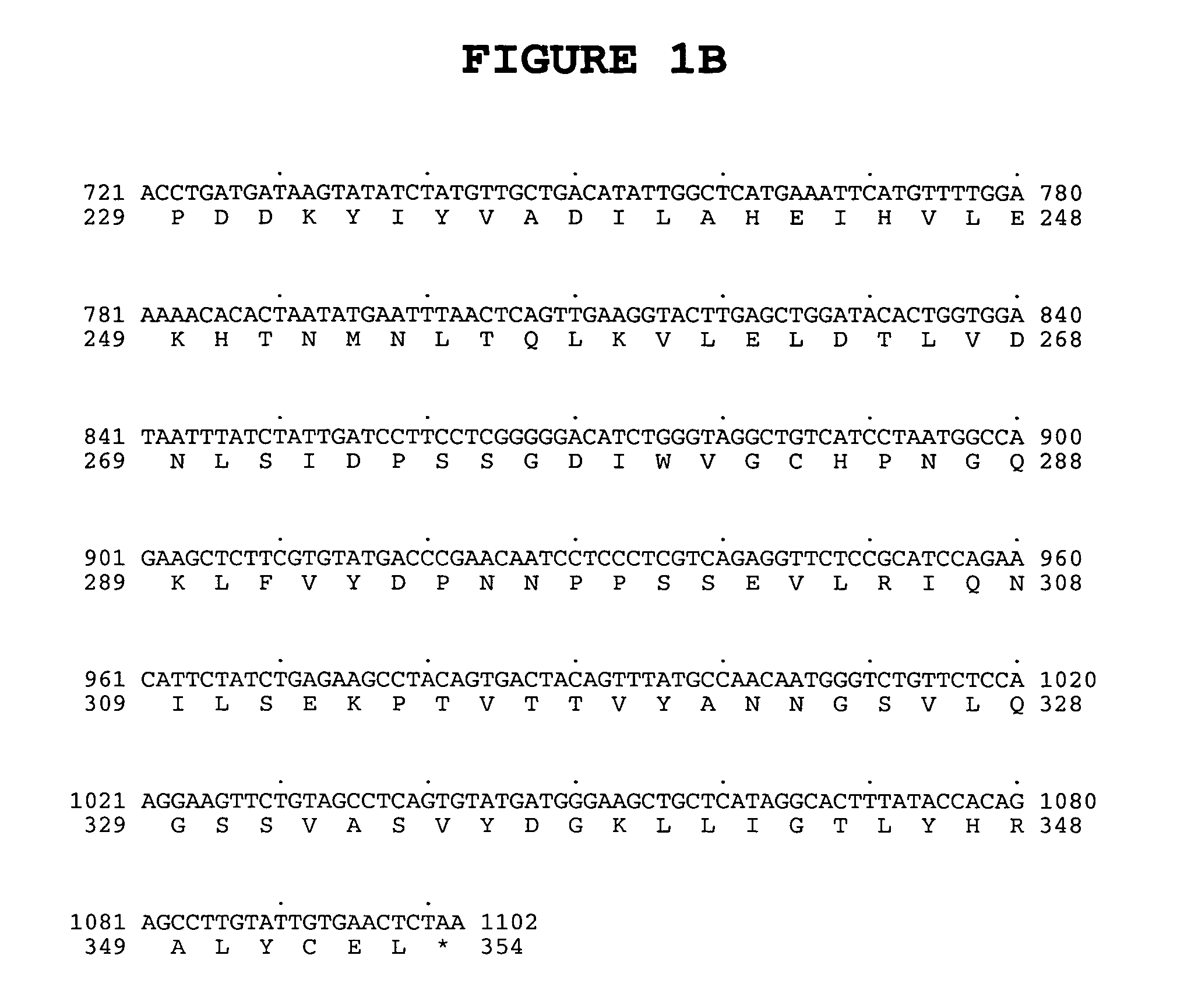Patents
Literature
60 results about "Neuron cell death" patented technology
Efficacy Topic
Property
Owner
Technical Advancement
Application Domain
Technology Topic
Technology Field Word
Patent Country/Region
Patent Type
Patent Status
Application Year
Inventor
Via the process of apoptosis, otherwise known as programmed cell death once a cell is no longer efficient. NEURONAL CELL DEATH: "There is a wide range of possibilities for which could explain neuronal cell death from apoptosis to lack of nutrients.".
Formulations comprising antisense nucleotides to connexins
InactiveUS7098190B1Reducing neuronal cell deathDown-regulated expressionNervous disorderSpecial deliveryNeuron cell deathWound healing
A therapeutic and / or cosmetic formulation comprising at least one anti-sense polynucleotide to a connexin protein together with a pharmaceutically acceptable carrier or vehicle is useful in site specific down regulation of connexin protein expression, particularly in reduction of neuronal cells death, wound healing, reduction of inflammation, decrease of scar formation and skin rejuvenation and thickening.
Owner:COLLEGE LONDON UNIV
Pro-Neurogenic Compounds
This invention relates generally to stimulating neurogenesis (e.g., post-natal neurogenesis, e.g., post-natal hippocampal neurogenesis) and protection from neuron cell death.
Owner:BOARD OF RGT THE UNIV OF TEXAS SYST
Pro-neurogenic compounds
Owner:BOARD OF RGT THE UNIV OF TEXAS SYST
Pro-neurogenic compounds
This invention relates generally to stimulating neurogenesis (e.g., post-natal neurogenesis, e.g., post-natal hippocampal neurogenesis) and protection from neuron cell death.
Owner:BOARD OF RGT THE UNIV OF TEXAS SYST
Method of inducing and maintaining neuronal cells
InactiveUS20080261879A1Avoid deathPrevent degenerationNervous disorderPeptide/protein ingredientsGerm layerNeurulation
The present invention makes available a method for inducing neuronal differentiation and preventing the death or degeneration of neuronal cells both in vitro and in vivo. The subject method stems from the unexpected finding that, contrary to traditional understanding of neural induction, the default fate of ectodermal tissue is neuronal rather than mesodermal and / or epidermal. In particular, it has been discovered that preventing or antagonizing a signaling pathway in a cell for a growth factor of the TGF-β family can result in neuronal differentiation of that cell.
Owner:PRESIDENT & FELLOWS OF HARVARD COLLEGE
Pro-Neurogenic Compounds
InactiveUS20110015217A1Reduce riskShorten the progressBiocideNervous disorderNeuron cell deathMedicine
This invention relates generally to stimulating neurogenesis (e.g., post-natal neurogenesis, e.g., post-natal hippocampal neurogenesis) and protecting from neuron cell death.
Owner:BOARD OF RGT THE UNIV OF TEXAS SYST
Prevention of fetal alcohol syndrome and neuronal cell death with ADNF polypeptides
InactiveUS6933277B2Reducing neuronal cell deathRemissionBiocideNervous disorderFetal alcoholMedicine
This invention relates to a method for reducing a condition associated with fetal alcohol syndrome in a subject who is exposed to alcohol in utero with an ADNF polypeptide. In particular, the present invention relates to a method of reducing a condition associated with fetal alcohol syndrome in a subject who is exposed to alcohol in utero with a combination of ADNF I and ADNF III polypeptides. The present invention further relates to a method for reducing neuronal cell death by contacting neuronal cells with a combination of ADNF I and ADNF III polypeptides. Still further, the present invention relates to a pharmaceutical composition comprising a combination of ADNF I and ADNF III polypeptides.
Owner:DEPT OF HUMAN SERVICES GOVERNMENT OF THE UNITED STATES THE AS REPRESENTED BY THE SEC OF THE +1
Oligodendrocyte-Myelin Glycoprotein Compositions and Methods of Use Thereof
InactiveUS20090175846A1Promoting neuronalPromoting oligodendrocyte survivalOrganic active ingredientsBiocideDiseaseMyelin glycoprotein
The present invention is based on the discovery that oligodendrocyte-myelin glycoprotein (OMgp), which is ex-pressed by oligodendrocytes and CNS myelin, negatively regulates oligodendrocyte and neuronal differentiation and survival. Based on these discoveries, the invention relates generally to methods of promoting neuronal and oligodendrocyte survival and differentiation by administration of an OMgp anatagonist. Additionally, the invention generally relates to methods of treating various diseases, disorders or injuries associated with demyelination, dysmyelination, oligodendrocyte / neuronal cell death, axonal injury and / or differentiation by the administration of an OMgp antagonist.
Owner:BIOGEN IDEC MA INC
Combinatorial methods for inducing cancer cell death
The present invention relates to methods and compositions for inhibiting proliferation and inducing cell death in a population of cancer cells by (i) increasing the amount of the differentiation associated protein MDA-7, and (ii) decreasing RAS activity within the population. It is based, at least in part, on the discovery that decreasing expression of a mutated, activated K-ras gene, together with introducing an expressible mda-7 gene, in pancreatic cancer cells had a synergistic growth-inhibitory and anti-survival effect, and abolished tumorigenicity of the cells in athymic nude mice. The methods of the invention may be directed to the therapy of pancreatic cancer and other malignancies.
Owner:THE TRUSTEES OF COLUMBIA UNIV IN THE CITY OF NEW YORK
Methods of Treating Traumatic Brain Injury Using Pro-Neurogenic Compounds
This invention relates generally to stimulating neurogenesis (e.g., post-natal neurogenesis, e.g., post-natal hippocampal neurogenesis) and protecting from neuron cell death.
Owner:BOARD OF RGT THE UNIV OF TEXAS SYST
Pro-Neurogenic Compounds
This invention relates generally to stimulating neurogenesis (e.g., post-natal neurogenesis, e.g., post-natal hippocampal neurogenesis) and protection from neuron cell death.
Owner:BOARD OF RGT THE UNIV OF TEXAS SYST
Neuronal Cell Death Inhibitor and Screening Method
InactiveUS20090304712A1Evaluating effectNervous disorderMuscular disorderNeuron cell deathScreening method
Owner:NATIONAL UNIVERSITY
Neurothrophic components of the ADNF I complex
InactiveUS7427590B2Inhibitory activityHigh activityNervous disorderPeptide/protein ingredientsNeuron cell deathProteinase activity
This invention relates to Activity Dependent Neurotrophic Factor I complex (ADNF I complex) and polypeptides of this complex, which produce their neurotrophic effects through multiple proteases intrinsic to the ADNF I complex. The invention also relates to pharmaceutical compositions comprising ADNF I complex polypeptides, as well as methods for reducing neuronal cell death in vitro and in vivo, methods for treating oxidative stress in a patient, methods for reducing a condition associated with fetal alcohol syndrome in a subject, and methods of enhancing learning and memory both pre- and post-natally, all of which methods use the ADNF I complex polypeptides of the invention.
Owner:THE GOVERNMENT OF THE UNITED SATES OF AMERICA AS REPRESENTED BY THE SEC OF THE DEPT OF HEALTH & HUMAN SERVICES +1
Therapeutic Agent for Neurodegenerative Diseases
The present invention relates to a pharmaceutical composition for the treatment and / or prevention of a neurodegenerative disease, comprising the following polypeptide shown in any of (a) to (c): (a) a polypeptide comprising the amino acid sequence represented by Ser-Ala-Leu-Leu-Arg-Ser-Ile-Pro-Ala-Pro-Ala-Gly-Ala-Ser-Arg-Leu-Leu-Leu-Leu-Thr-Gly-Glu-Ile-Asp-Leu-Pro (SEQ ID NO: 1); (b) a polypeptide comprising an amino acid sequence having a deletion, substitution, insertion, and / or addition of one or several amino acids in the amino acid sequence consisting of Ser-Ala-Leu-Leu-Arg-Ser-Ile-Pro-Ala-Pro-Ala-Gly-Ala-Ser-Arg-Leu-Leu-Leu-Leu-Thr-Gly-Glu-Ile-Asp-Leu-Pro (SEQ ID NO: 1), and having an activity that inhibits neuronal cell death associated with neurodegenerative disease; and (c) a modified polypeptide from the polypeptide (a) or (b), or a pharmaceutically acceptable salt thereof, as an effective ingredient.
Owner:TOMOHIRO CHIBA +4
8-azaprostaglandin derivatives and medical use thereof
The pharmaceutical composition comprising the compound of the invention having 8-azaprostaglandin skeleton represented by formula (I) (wherein, all the symbols have the same meanings as that of the specification.) a salt thereof, a solvate thereof or a cyclodextrin clathrate thereof, or a prodrug thereof and them as active ingredient have EP4 agonistic action and thus are considered useful for the prevention and / or treatment of immunological diseases, asthma, neuronal cell death, arthritis, lung failure, pulmonary fibrosis, pulmonary emphysema, bronchitis, chronic obstructive pulmonary disease, liver damage, acute hepatitis, nephritis, renal insufficiency, hypertension, myocardial ischemia, systemic inflammatory response syndrome, sepsis, hemophagous syndrome, macrophage activation syndrome, Still's disease, Kawasaki disease, burn, systemic granulomatosis, ulcerative colitis, Crohn's disease, hypercytokinemia at dialysis, multiple organ failure, shock and glaucoma, etc. Furthermore, the compounds also have an action of accelerating bone formation, so it is expected to be useful for the prevention and / or treatment of diseases associated with loss in bone mass, for example, primary osteoporosis, secondary osteoporosis, bone metastasis of cancer, hypercalcemia, Paget's disease, bone loss, osteonecrosis, bone formation after bone operation, alternative treatment for bone grafting.
Owner:ONO PHARMA CO LTD
Therapeutic agent for motor neuron disease
InactiveUS20090075900A1Improve motor functionAvoid deathOrganic active ingredientsFungiSuper oxide dismutaseNeuron cell death
An object of the present invention is to provide an agent effective for the treatment and / or prevention of motor neuron disease such as amyotrophic lateral sclerosis (ALS). The present invention provides a therapeutic and / or preventive agent for motor neuron disease comprising the following oligopeptide shown in any of (a) to (c) or a pharmaceutically acceptable salt thereof as an active ingredient: (a) an oligopeptide consisting of the amino acid sequence represented by Ser-Ala-Leu-Leu-Arg-Ser-Ile-Pro-Ala (SEQ ID NO: 1); (b) an oligopeptide consisting of an amino acid sequence having a deletion, substitution, insertion, or addition of one or several amino acids in Ser-Ala-Leu-Leu-Arg-Ser-Ile-Pro-Ala (SEQ ID NO: 1), and having an activity that inhibits neuronal cell death caused by a mutant superoxide dismutase-1 gene; and (c) a modified oligopeptide from the oligopeptide (a) or (b).
Owner:NOEVIR CO LTD +2
Treatment of parkinsons disease with glycolipids
InactiveUS20140187507A1Reduced activityIncrease RET activityBiocideSugar derivativesNeuron cell deathMedicine
This invention provides compounds, compositions, and methods for treating Parkinson's disease. In particular, there is provided GM1 ganglioside analogs that are capable of penetrating the blood brain barrier and entering the cytoplasm of neurons. Endogenous GM1 interacts with the with GFRα1 / RET, the GDNF receptor complex involved in GDNF signaling which is essential for neuron survival. In neurons that are deficient in endogenous GM1, the GM1 analog compounds of the invention are capable of restoring GDNF signaling thereby preventing neuron cell death.
Owner:RUTGERS THE STATE UNIV
Antibody and utilization of the same
InactiveCN101080421AImprove responseSuppress deathNervous disorderImmunoglobulins against animals/humansNeuron cell deathAmyloid
It is intended to provide antibodies having a higher reactivity with amylospheroid than a reactivity with amyloid ss-fiber and so on. Some of these antibodies have an activity of inhibiting amylospheroid formation or an activity of inhibiting the induction of nerve cell death by amylospheroid. Such antibodies are usable in remedies / preventives for Alzheimer's disease, screening these drugs, detecting an individual suffering from Alzheimer's disease, reagents and so on.
Owner:MITSUBISHI CHEM CORP +1
Neuroprotective Compounds and Use Thereof
InactiveUS20160272619A1Enhance net magnitudeEffective treatmentNervous disorderOrganic chemistryNeuron cell deathDisease
Provided herein are compositions and methods for reducing one or both of axonal degeneration and neuronal cell death associated with a disease or traumatic brain injury. An aminopropyl carbazole agent with potent neuroprotective properties is described. Specifically, (−)-(S)—N-(3-(3,6-dibromo-9H-carbazol-9-yl)-2-fluoropropyl)-6-methoxypyridin-2-amine, is proposed as a new pharmacological agent for protecting patients against axonal degeneration and chronic consequences of TBI.
Owner:UNIV OF IOWA RES FOUND +1
Antibody and utilization of the same
The present invention is directed to providing an antibody having greater reactivity with amylospheroid than with amyloid β fibers, and the like. The aforementioned antibody includes an antibody having activity of inhibiting amylospheroid formation or activity of inhibiting neuronal cell death induced by amylospheroid. The antibody can be used for a therapeutic and / or preventive agent for Alzheimer's disease, or a screening thereof, a method and reagent for detecting individuals with Alzheimer's disease, and the like.
Owner:FOUND FOR BIOMEDICAL RES & INNOVATION +1
RNAi induced huntingtin gene suppression
The present invention provides for a double stranded RNA comprising a first RNA sequence and a second RNA sequence wherein the first and second RNA sequence are substantially complementary, wherein the first RNA sequence has a sequence length of at least 19 nucleotides and is substantially complementary to SEQ ID NO. 1. Said double stranded RNA is for use in inducing RNAi against Huntingtin exon 1sequences. The double stranded RNA of to the invention was capable of reducing neuronal cell death and huntingtin aggregates in an animal model.
Owner:尤尼克尔生物制药股份有限公司
4-Pyrimidinamine derivatives, pharmaceutical compositions and related methods
InactiveUS20050203092A1Reducing ischemic deathReducing neuronal cell deathOrganic active ingredientsOrganic chemistryNeuron cell deathNeuron
This invention provides novel neuroprotective 4-pyrimidineamine derivatives and neuroprotective pharmaceutical compositions comprising 4-pyrimidinamines. This invention also provides methods of using these compositions to prevent ischemic cell death, particularly neuronal cell death, and reduce the likelihood of neuronal cell death in a subject due to a traumatic event. Finally, this invention provides an apparatus for administering to a subject the instant pharmaceutical compositions.
Owner:BENJAMIN ELFRIDA R +6
Development of Improved Cell-Permeable (iCP) Parkin Recombinant Protein as a Protein-Based Anti-Neurodegenerative Agent for the Treatment of Parkinson's Disease-Associated Phenotypes by Utilizing BBB-Penetrating Protein Delivery System MITT, Enabled by Advanced Macromolecule Transduction Domain (aMTD)
InactiveUS20170029798A1Improve solubilityHigh yieldPolypeptide with localisation/targeting motifNervous disorderNeuron cell deathSolubility
Macromolecule intracellular transduction technology based on improved cell-permeable Parkin recombinant protein (iCP-Parkin) has been developed as a protein-based anti-neurodegenerative agent for efficient BBB-penetration to effectively deliver the recombinant protein into the brain. Parkin protein, a dopaminergic neuronal cell death inhibitor, has been fused with a newly developed advanced macromolecule transduction domain (aMTD) and solubilization domain (SD) to increase the solubility / yield and cell- / tissue-permeability of the recombinant protein. In addition, our newly developed aMTD / SD-fused recombinant iCP-Parkin protein has shown BBB-permeability. Both in vitro and in vivo, our iCP-Parkin recombinant protein improved motor skills, a typical phenotype of Parkinson's disease, by increasing dopamine level in the brain by suppressing apoptosis of dopaminergic neuron cells. In conclusion, iCP-Parkin could be applicable in clinical studies as a protein-based anti-neurodegenerative agent to treat Parkinson's disease by protecting dopaminergic neuron cells and regulating the secretion of dopamine.
Owner:JO DAEWOONG +1
Application of miR-214 to preparation of product for preventing or treating alzheimer disease
InactiveCN103028122AReduce mortalityNervous disorderGenetic material ingredientsNeuron cell deathMedicine
The invention discloses an application of miR-214 (microRNA) to preparation of a product for preventing or treating an alzheimer disease, and provides an application of the miR-214 to preparation of 1) a product for preventing and / or treating the alzheimer disease, and / or 2) a product for reducing the neuron cell death quantity of the alzheimer disease. A nucleotide sequence of the miR-214 is Sequence 1 as shown in a sequence table. An experiment of the application proves that neurodegenerative diseases, such as the alzheimer disease, can be prevented and / or treated through improving substances expressed by the miR-214. In clinical diagnosis at an earlier stage, the miR-214 can also serve as a biological index for diagnosing the neurodegenerative diseases, and a doctor can perform early diagnosis of the neurodegenerative diseases timely on a patient through detecting an miR-214 level in the patient and combining with other effective indexes, and further effectively controls the neurodegenerative diseases and the loss of a cognition level.
Owner:PEKING UNIV
Methods of and compositions for reducing neuronal cell death
InactiveUS20060258622A1Conducive to survivalImprove viabilityBiocideNervous disorderNeuron cell deathHuman animal
Methods and compositions involving a class of boron-protected phenylphosphine agents having increased cell permeability and having improved chemical stability for treating or for preventing neuronal cell death-related diseases or conditions in a human or a non-human animal.
Owner:WISCONSIN ALUMNI RES FOUND
Methods and compositions for screening for modulators of neuronal cell death in Parkinson's disease
InactiveUS20060174356A1Enhancing the Parkinson's disease phenotypeSuppressing the Parkinson's disease phenotypeGenetic engineeringMaterial analysisNeuron cell deathMammal
Methods and compositions for identifying an agent (e.g., a gene product or small molecule compound that modulates neuronal cell death in a Parkinson's disease animal model are provided. In practicing the subject methods, a non-mammalian animal model, such as Drosophila melanogaster, that includes a mutant parkin gene and at least one other mutant gene are evaluated for neuronal cell death. Also provided are kits and systems for practicing the subject methods, as well as methods of use of agents identified in the screening method of the invention.
Owner:ELAN PHARM INC +1
Antibody and use thereof
ActiveUS8445649B2Avoid deathReduced responseBioreactor/fermenter combinationsNervous disorderAmyloid betaAmyloid precursor protein secretase
An antibody provided by the present invention has a low reactivity with amyloid precursor proteins, and has a higher reactivity with amylospheroids than with amyloid β fibrils or monomeric amyloid β-proteins. According to the present invention, an antibody is provided that has a higher reactivity with amylospheroids than with amyloid precursor proteins, and has any one or more of the following properties: (i) a higher activity with amylospheroids than with amyloid β fibrils; (ii) a higher reactivity with amylospheroids than with monomeric amyloid β-proteins; and (iii) an activity of inhibiting neuronal cell death induced by amylospheroids.
Owner:FOUND FOR BIOMEDICAL RES & INNOVATION
Methods for modulating neuronal cell death
InactiveUS20080249184A1Avoid deathPrevent the triggering of neuronal cell apoptosisBiocideNervous disorderNeuron cell deathNeuron
The invention provides methods of inhibiting Aβ-induced neuronal cell death. The invention further provides methods of providing neuroprotection to a subject and methods of treating a disease state characterized by Aβ-induced neuronal cell death in a subject. Methods of inhibiting p75 receptor mediated neuronal cell death, as well as methods of treating a disease state in a subject characterized by p75 receptor mediated neuronal cell death are provided.
Owner:BHI
GAMBOGIC AMINE, A SELECTIVE TrkA AGONIST WITH NEUROPROTECTIVE ACTIVITY
InactiveUS20110077293A1Reduced infarct volumePotent neurotrophic activityBiocideNervous disorderNeuron cell deathGambogic acid
Small molecule agonists, partial agonists, and antagonists for the TrkA receptor are described. The compounds are gambogic amines, where the carboxylic acid group of gambogic acid (CO2H) has been replaced by an amine group (CH2NR1R2). In some embodiments, the compounds selectively bind to TrkA but not TrkB or C, robustly induce its tyrosine phosphorylation and downstream signaling activation including Akt and MAP kinases. Further, they can strongly prevent glutamate-induced neuronal cell death and provoke prominent neurite outgrowth in PC12 cells. Gambogic amines specifically interact with the cytoplasmic juxtamembrane domain of TrkA receptor and trigger its dimerization. Administration of these compounds in can substantially diminishes Kainic acid-triggered neuronal cell death and decrease infarct volume in transient middle cerebral artery occlusion (MCAO) model of stroke. Thus, these compounds can provide effective treatments for debilitating neurodegenerative diseases and provide neuroprotection from patients suffering from stroke or other ischemic events.
Owner:EMORY UNIVERSITY
Serum paraoxonase
Human serum paraoxonase enzyme and DNA (RNA) encoding such serum paraoxonase enzymes are disclosed. Also provided is the procedure for producing such polypeptides by recombinant techniques. Uses of such polypeptides include their use as an antidote for organophosphate poisoning and to prevent neuronal cell death.
Owner:HUMAN GENOME SCI INC
Features
- R&D
- Intellectual Property
- Life Sciences
- Materials
- Tech Scout
Why Patsnap Eureka
- Unparalleled Data Quality
- Higher Quality Content
- 60% Fewer Hallucinations
Social media
Patsnap Eureka Blog
Learn More Browse by: Latest US Patents, China's latest patents, Technical Efficacy Thesaurus, Application Domain, Technology Topic, Popular Technical Reports.
© 2025 PatSnap. All rights reserved.Legal|Privacy policy|Modern Slavery Act Transparency Statement|Sitemap|About US| Contact US: help@patsnap.com
